
Above: The logo of Swiss Federal Railways – the national railway company of Switzerland
The train lurches with a sudden screeech, the hum of forward motion swallowed by the high eee of braking and the collective gasp of surprised passengers clutching at poles and seats.
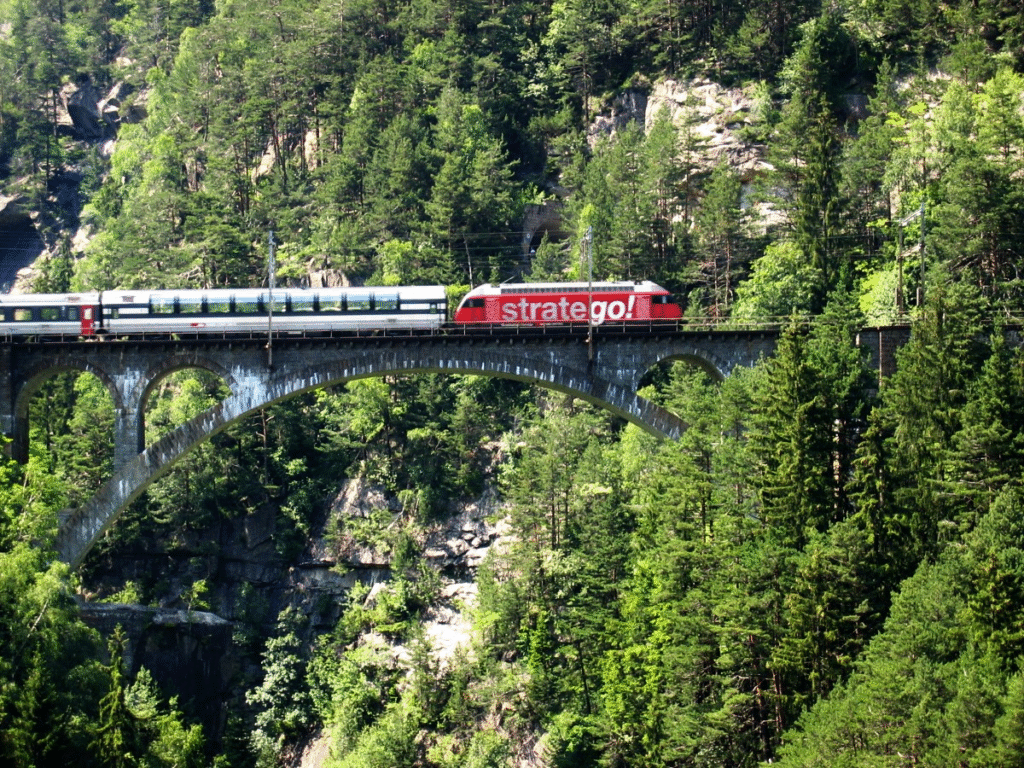
The train halts between Egnach and Arbon, a silent pause in motion.
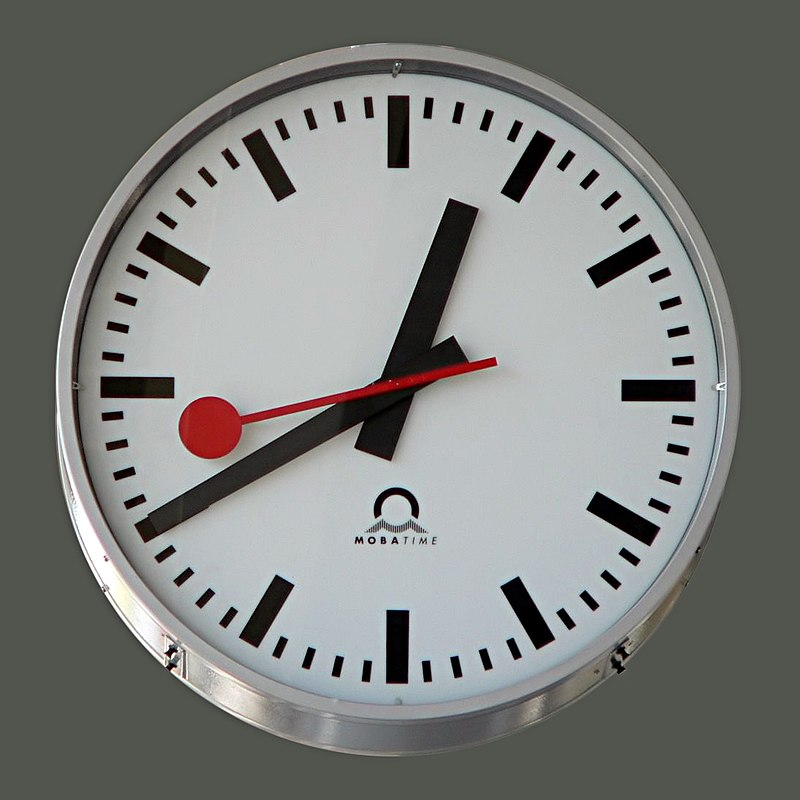
Private Lukas Astapovo’s mind wanders.

The courtroom gasps.
“Objection, Your Honour!”
Astapova slams the binder down on the desk, the screech of the chair behind him echoing through the chamber as he turns to the stunned jury.
“I have the DNA results — and they prove my client’s innocence!”
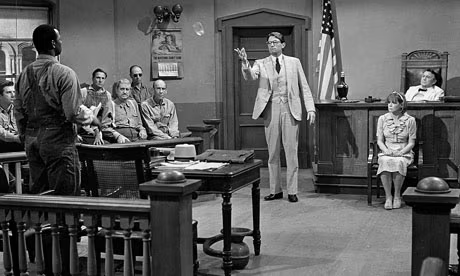
Above: Atticus Finch (Gregory Peck), To Kill a Mockingbird (1962)
Another scene dances around his thoughts.
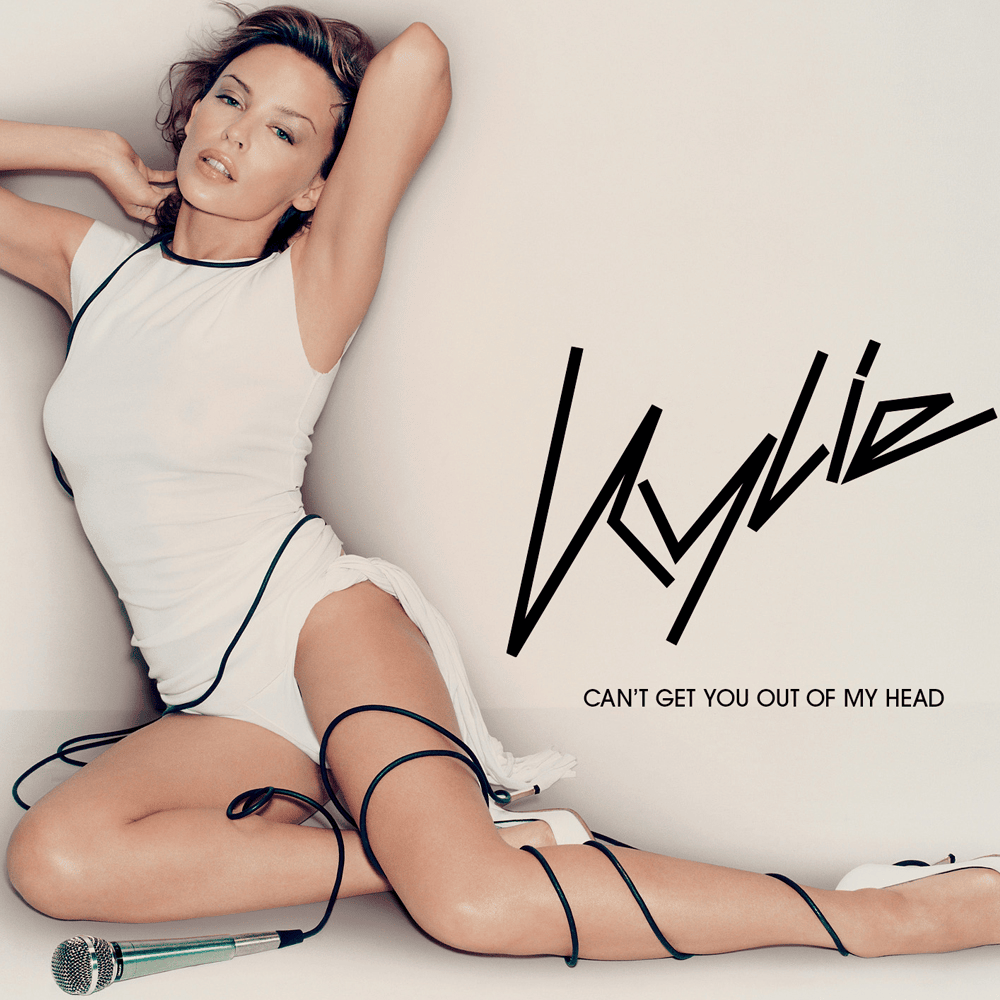
The lab is too quiet.
Too clean.
Suddenly, the siren shrieks — eeeeeeee — contaminant detected.
Astapova whips off his gloves.
“Initiate Protocol 9”, he says grimly, knowing full well he will have to go in.
Alone.
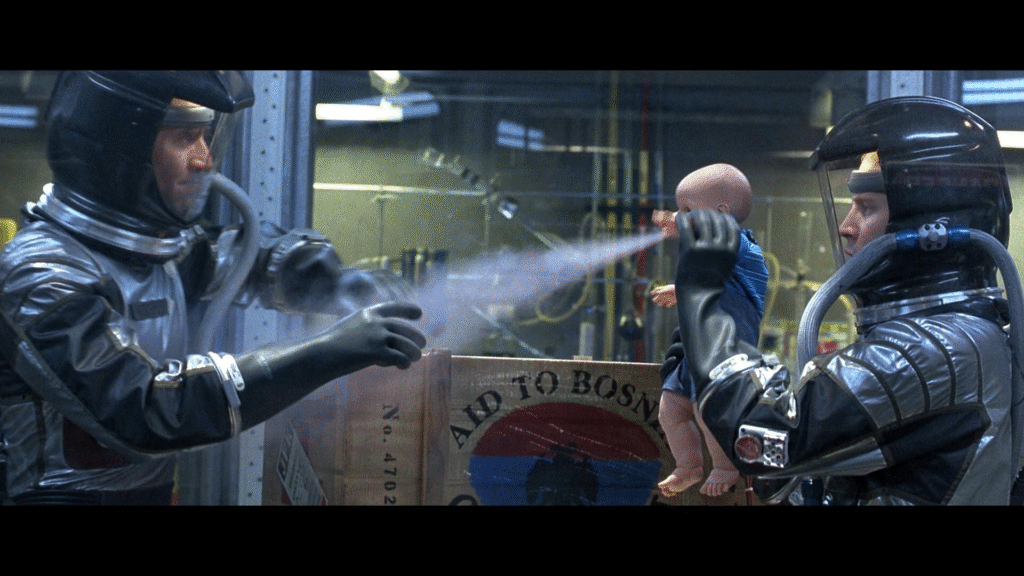
Above: Scene from The Rock (1986)
Lukas smiled at his private thoughts.
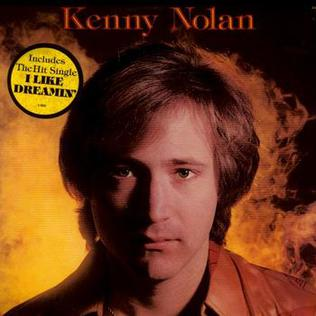
“Meine Damen und Herren, es wird eine leichte Verzögerung geben, da wir technische Schwierigkeiten haben.“
(“Ladies and gentlemen, there will be a slight delay as we are experiencing technical difficulties.“)
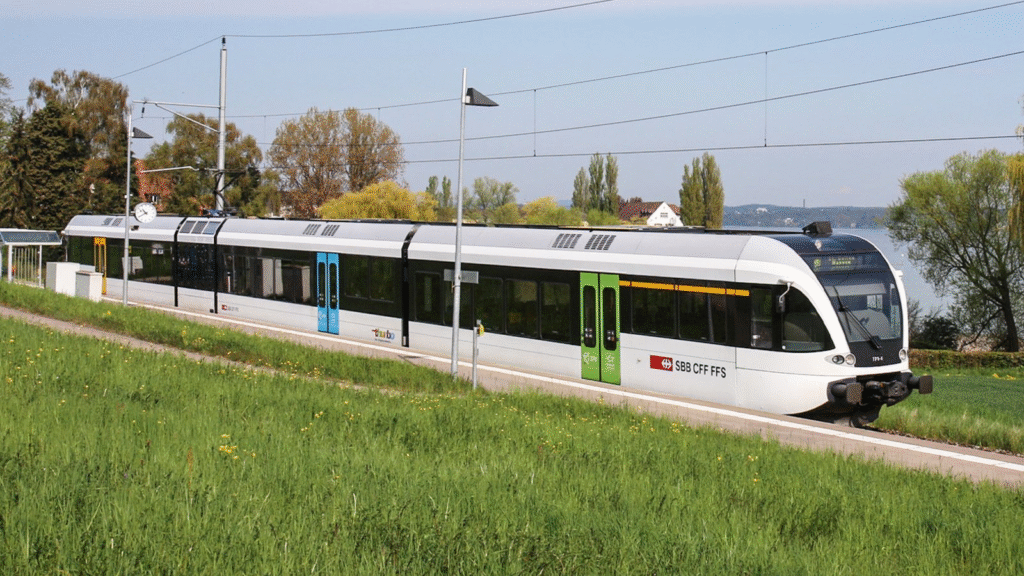
His father, an engineer, had once explained to Lukas as a boy, when a family outing aboard a train had similarly been delayed, why a train suddenly stops.
There are a variety of technical problems that could cause such an interruption.
The train could be stopped due to a signal failure ahead, which is a common cause of delays in train services.
A problem with the electrical system of the train — such as a broken overhead wire, or an issue with the engines’ power supply — could cause disruption.
A brake system failure could stop a train suddenly.
There could have been a safety protocol triggered — perhaps an emergency stop due to something not immediately visible to the passengers.
The train could be suffering from a mechanical issue like an overheated engine or a malfunctioning component that requires a brief pause for repairs.
As the overhead lights in the wagon had gone dark, Lukas guessed that there was a problem with the overhead wire (such as a power outage or disconnection), or an issue with the train’s engine power supply.
He listens for that faint electrical urge as power is fed into the motor.
He doesn’t hear the crucial Zap that signals the surge.
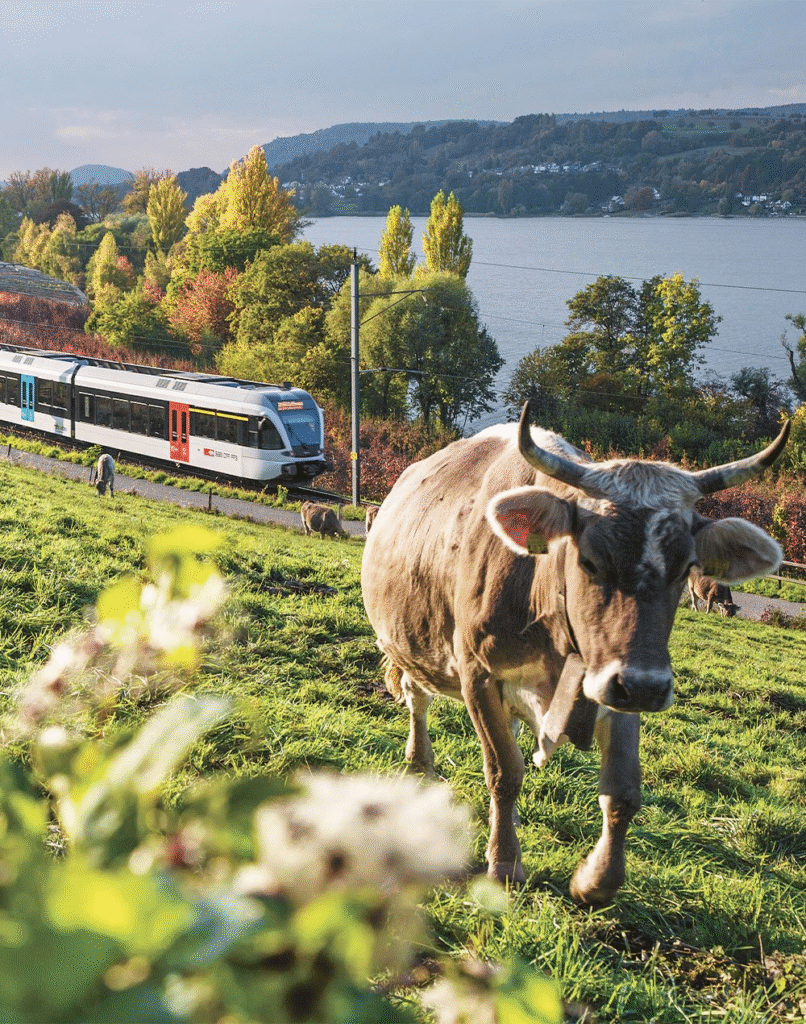
Zap.
The courtroom has vanished.
The hum of the train has gone.
He stands in a silver jumpsuit beneath the domed roof of ZapCon Delta-7, the last remaining base on Europa.
“Commander Astapovo!” shouts the technician, her voice crisp over the intercom.
“The fusion core is failing — we’ve got about seven minutes before the whole facility blows sky-high!“
Zap.
The lights above flickers.
Once, twice.
Then hold steady.
Lukas reaches for his multi-spanner.
“Reroute power from the auxiliary grid to the plasma dampeners,” he barks.
“And someone get me a fresh cup of synthetic coffee!“
Zap.
The floor trembles as the Core gave off another warning jolt.
Red lights spin like deranged disco balls.
An alien — tall, gelatinous, vaguely offended — slithers up beside him.
“Commander, the treaty with the Zaparians is clear.
If you do not stabilize the core, your species will face…
Deletion.“
Lukas frowns.
“Tell the Zaparian Ambassador he can zap off.“
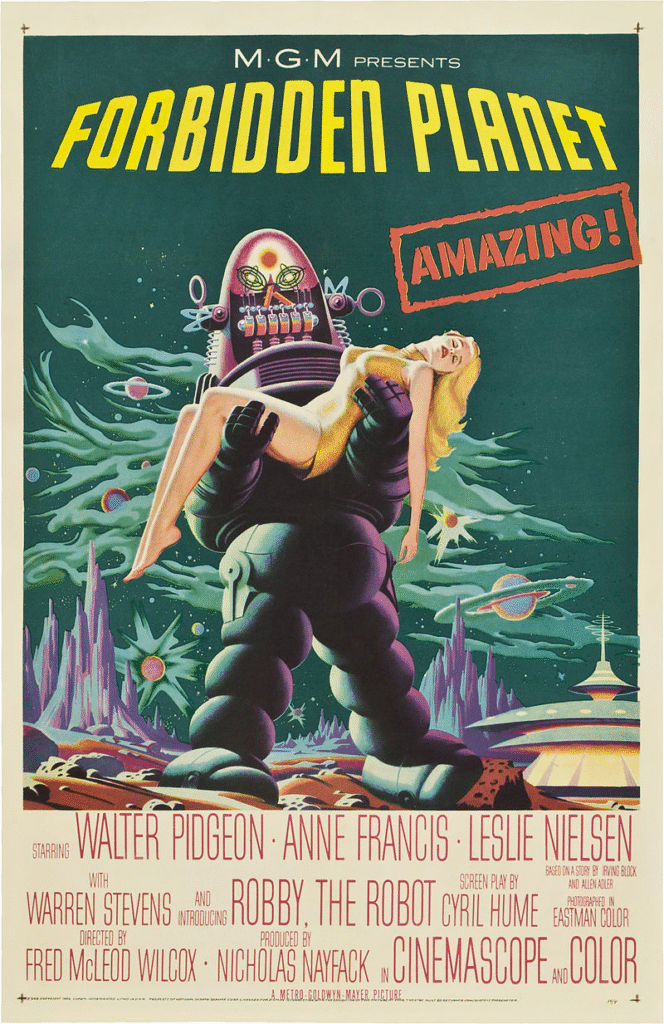
Zap.
And suddenly, just as the tension reaches maximum absurdity, the scene fades.
He is back on the train.
Sounds from the other wagon.
A baby cries.
A man coughs.
Someone rustles a newspaper like it is a declaration of war.
Still no sound from the motor.
Still no zap.
Lukas sighs.
Just another train ride.
Just another day.
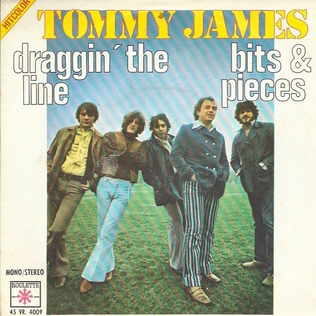
Lukas looks out the window, watching as the sun begins its inevitable descent beyond the horizon.
The delicate blue forget-me-not blooms along the gravel banks, adding a vibrant touch to the shoreline.

The spring gentian, dazzling as the sky, have opened, carpeting the reed meadows and creating a striking azure contrast against the green of early spring.

Siberian irises danced in the breeze, reminding him again of his father.
A colorful character who danced with life, delighting in all of existence’s nuances.
Lukas missed his father.

Tufted ducks still linger on the lake.

Pochards, what his mother calls “diving ducks“, cheekily bare-bottomed, exhibit themselves unabashedly.

Great crested grebes, with their elegant plumage, gracefully glide across the lake’s surface.

Beneath the surface, Lukas knew from experience, life abounds – brown trout, common rudd, barbel and European carp, and Heaven only knows how many more different fish species, stir invisibly below the façade of the lake.

Above: Brown trout
The setting sun, the gentle lapping of the lake’s waves, and the rich tapestry of flora and fauna is a scene of serenity and contemplation.
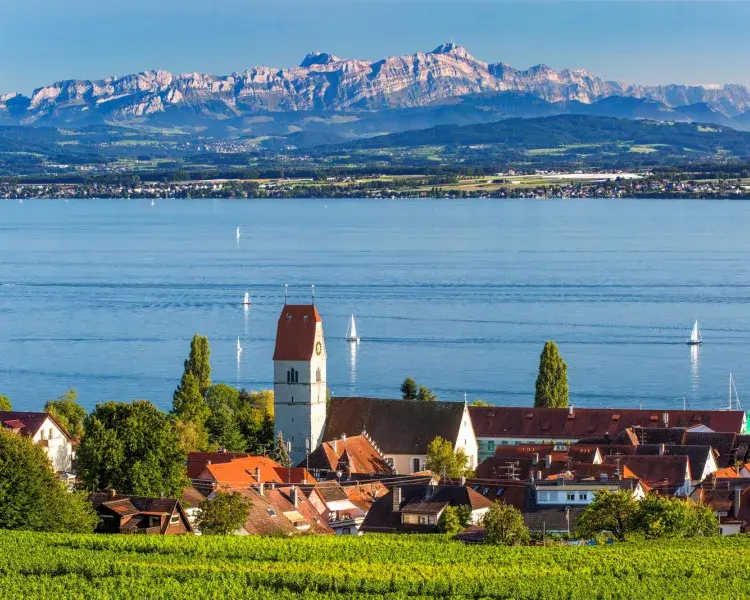
But nonetheless Lukas feels tense.
He gazes at his reflection.
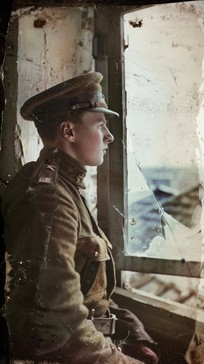
Lukas is in his mid-20s, with striking features that blend his Russian and Swiss Germanic heritage in an intriguing way.
His face is angular, with high proud cheekbones and a square jawline that hints at a quiet strength.
His skin is pale with a hint of olive, giving him a somewhat rugged, almost aristocratic look.
His dark brown hair, thick and slightly wavy, is tousled, as if he has just come in from the wind.
A slight wave in his hair adds a touch of unpredictability to his otherwise composed appearance.
His eyes are a deep, steely blue, framed by dark brows that slant slightly, giving him an air of mystery and quiet intensity.
His build is lean but athletic, with broad shoulders and a natural grace to his movements.
There’s a certain tension in the way he carries himself, like someone always caught between worlds.
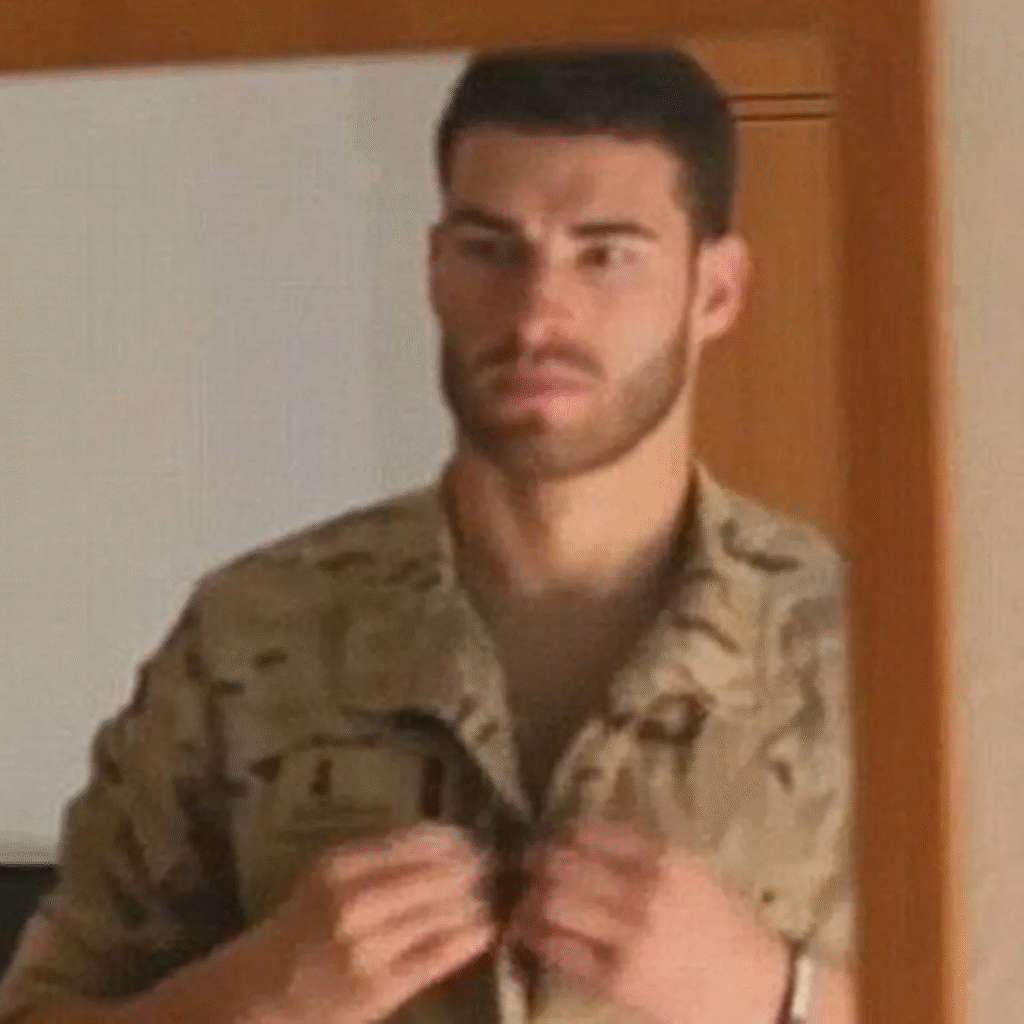
His uniform is a muted olive-green, with a digitized camouflage pattern of green, brown and charcoal grey.
The cut is functional, utilitarian.
The jacket is boxy, high-collared, with velcro flaps.
The pants are cargo-style with deep pockets for everything from gloves to rations.
He sports a small Swiss flag patch on his upper arm.
His rank and last name are shown on a sewn tag above his chest pocket.
The uniform feels stiff — not scratchy exactly, but not cozy either.
It rustles when he shifts in his seat.
The uniform feels warm, even on cool spring mornings like this morning when he boarded a train from Zürich to Romanshorn.
The layers build heat fast.
The uniform resists breathability.
The uniform constrains his posture.
He sits straighter, the jacket reminding him that he is not on campus anymore.
He feels a slight itch of sweat upon his neck, where the collar of the jacket touches his skin.
Wearing a uniform in a civilian setting gives him a sense of being watched, even though he knows he is not.
He is viewed, not in suspicion, but with curiosity or memory —people recognizing the symbol he now wears.
On his feet are heavy, high-laced black combat boots — blister-makers until they are broken in – boots that demand a certain gait, making civilians slouch awkwardly.
A rolled-up soft field cap sits uneasily on his head.
Beside him on the seat next to the aisle is a large, almost comically overloaded military rucksack in olive canvas, with bedrolls and mess kit strapped to the outside.
A smaller day bag – normally slung over one shoulder but now on the seat between his body and his rucksack — holds psychology and history texts and notebooks inside, tokens from his “other life”.
His hand, once ink-stained and caffeine-shaky from cramming for exams, is now wrapped around a rifle’s grip.
There is a quiet split within him:
One part of him is analyzing others on the train (What does that man’s paper choice say about him?), while the other rehearses drills and military protocols.
The uniform says,
“I serve.“
But the young man wonders:
“Who am I serving?
My country, or my transformation?”
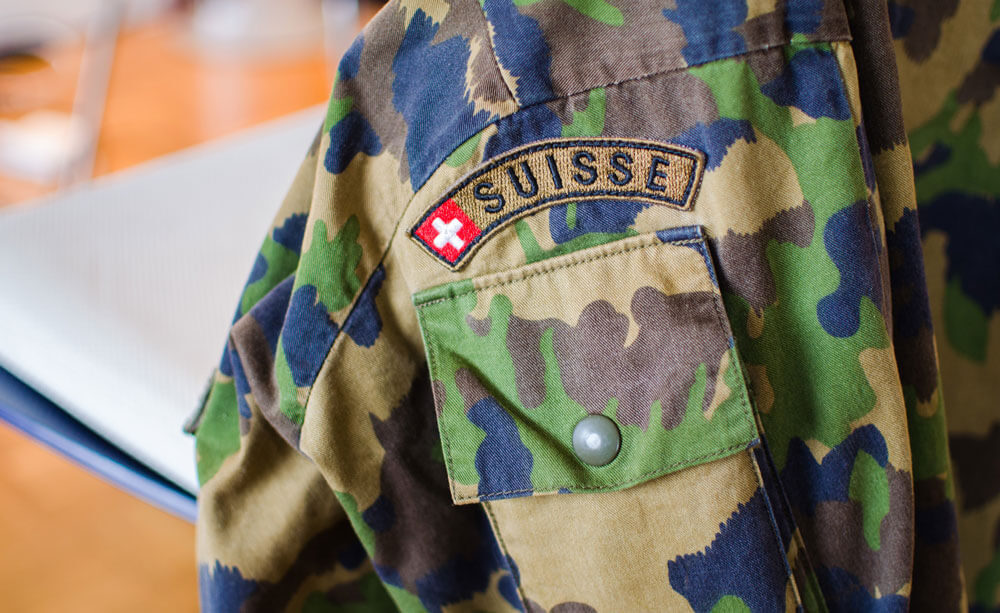
His eyes catch a reflection — not of himself, but of the soldier-student hybrid he is becoming.
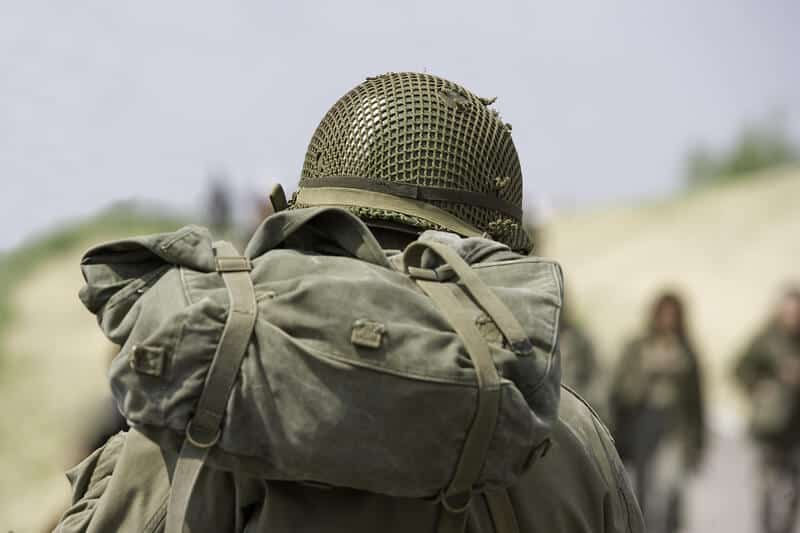
His hand unconsciously brushes against the books in his bag, still carrying notes about the divided self — Freud, Jung and the idea that we wear masks depending on the role required.
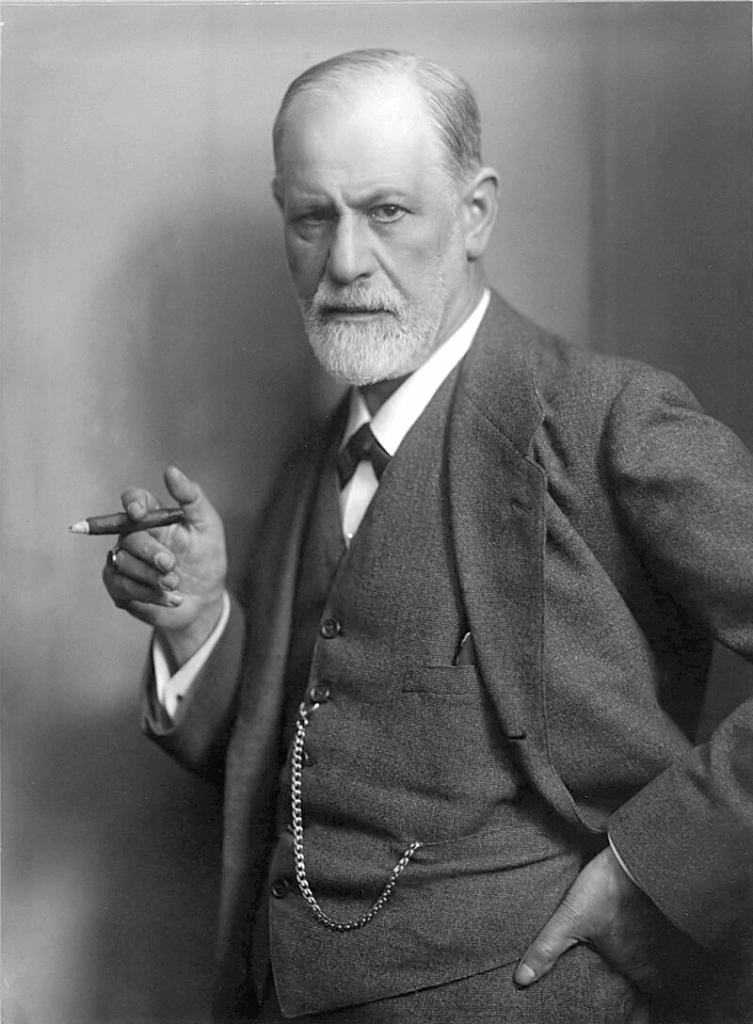
Above: Austrian psychoanalyst Sigmund Freud (1856 – 1939)
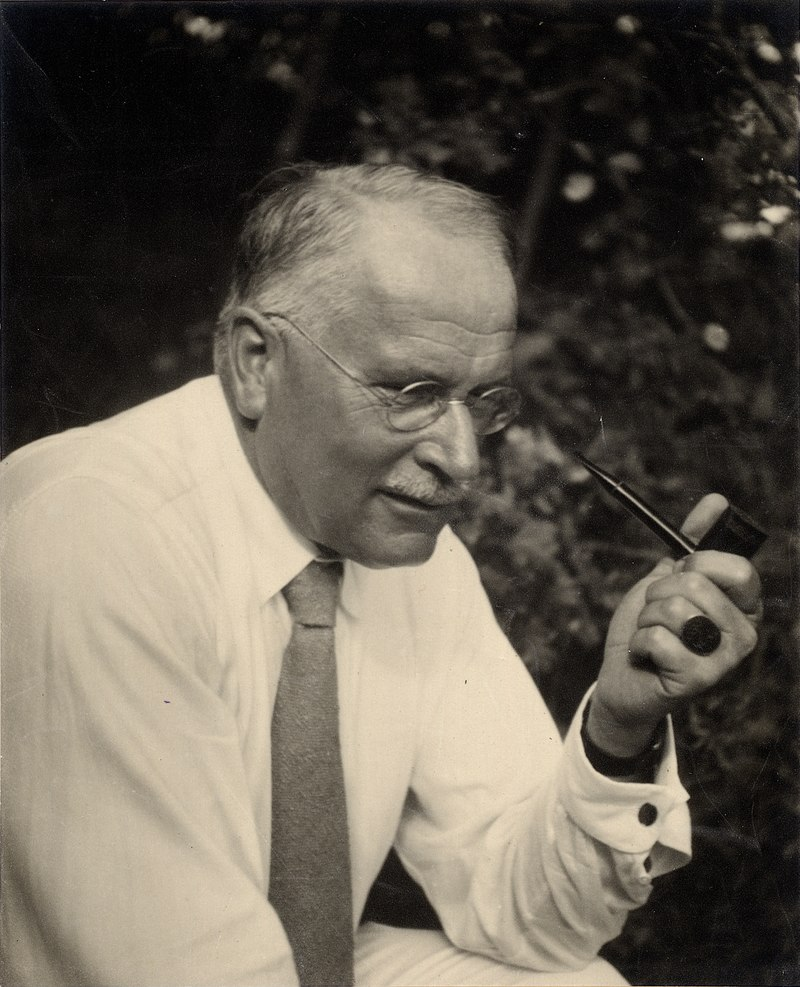
Above: Swiss psychiatrist Carl Jung (1875 – 1961)
Lukas wonders which is the mask:
The uniform on base or the hoodie he normally wears on campus?
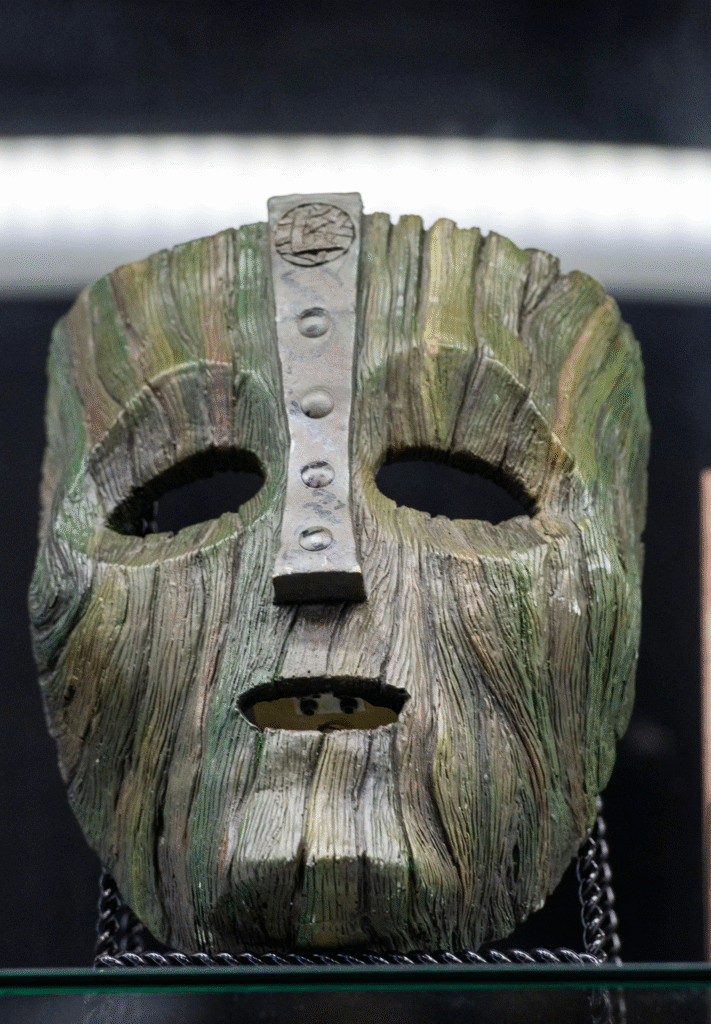
In the past year, his first year of University, he has learned so much.
He was introduced to the foundations of psychology.
The big names:
Freud, Jung, Skinner, Piaget, Rogers.
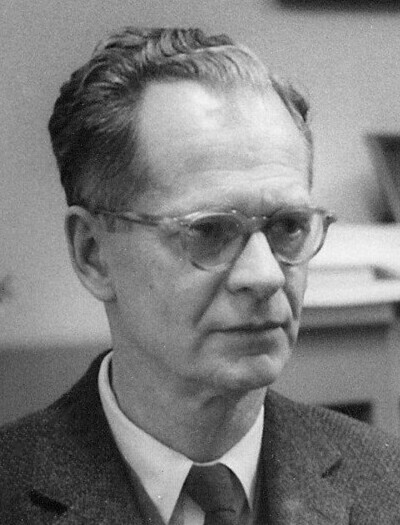
Above: American psychologist B. F. Skinner (1904 – 1990)
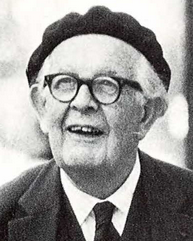
Above: Swiss psychologist Jean Piaget (1896 – 1980)
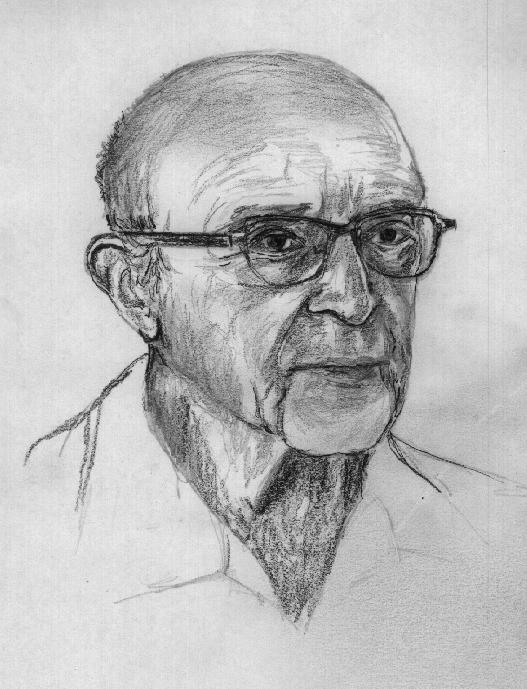
Above: American psychologist Carl Rogers (1902 – 1987)
Lukas learned to see minds as both machines and mysteries.
He was introduced to the biopsychosocial model:
How brain chemistry, environment and personal history interact.
He has become intrigued by human motivation and emotional regulation.
He remembers the short paper he wrote:
“The Mask and the Mirror: Self-Image in Transitional Youth”.
Boring academic psychobabble, but yet he had enjoyed the task.
He has learned about biological psychology and neuroscience, about the limbic system, the prefrontal cortex and neurotransmitters —dopamine, serotonin, the machinery of the mind.
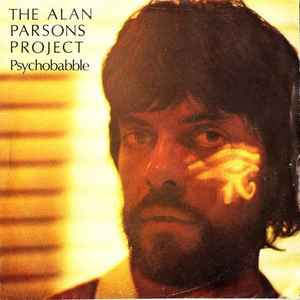
Tell you ’bout a dream that I have every night
Tell you ’bout a dream that I have every night
It ain’t Kodachrome and it isn’t black and white
Take me for a fool if you feel that’s right
Well, I’m never on my own, but there’s nobody in sight
I don’t know if I’m scared of the lightning
Trying to reach me
I can’t turn to the left or the right
I’m too scared to run and I’m too weak to fight
But I don’t care, it’s all psychobabble rap to me
Tell you ’bout a dream that I have every night
It’s in Dolby stereo, but I never hear it right
Take me for a fool, well, that’s alright
Well, I see the way to go, but there isn’t any light
I don’t know why I’m scared of the lightning
Trying to reach me
Help me to find what I don’t want to know
You’re taking me there, but I don’t want to go
I don’t care, it’s all psychobabble rap to me
Psychobabble, all psychobabble
Psychobabble, all psychobabble
I don’t care, it’s all psychobabble rap to me
You’re readin’ my mind, you won’t look in my eyes
You say I do things that I don’t realize
But I don’t care it’s all psychobabble rap to me
Psychobabble, all psychobabble
Psychobabble, all psychobabble
You’re lighting a scene that’s faded to black
I threw it away, cause I don’t want it back
But I don’t care, it’s all psychobabble rap
Lukas reflects on the contrast between military hierarchy and individual brain autonomy, finding it quietly fascinating.
Since his studies began, he has carried around a small notepad, sketching out observations of his own and others’ behavior.
He has learned about developmental psychology, from infancy to adulthood, how identity is formed, shaped and tested.
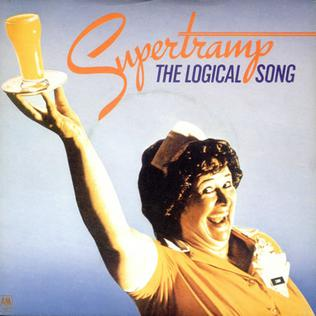
When I was young, it seemed that life was so wonderful
A miracle, oh, it was beautiful, magical
And all the birds in the trees, well, they’d be singing so happily
Oh, joyfully, oh, playfully watching me
But then they sent me away to teach me how to be sensible
Logical, oh, responsible, practical
And then they showed me a world where I could be so dependable
Oh, clinical, oh, intellectual, cynical
There are times when all the world’s asleep
The questions run too deep
For such a simple man
Won’t you please, please tell me what we’ve learned?
I know it sounds absurd
Please tell me who I am
I said, now, watch what you say, they’ll be calling you a radical
A liberal, oh, fanatical, criminal
Oh, won’t you sign up your name? We’d like to feel you’re acceptable
Respectable, oh, presentable, a vegetable
Oh, take, take, take it, yeah
But at night, when all the world’s asleep
The questions run so deep
For such a simple man
Won’t you please (oh, won’t you tell me)
Please tell me what we’ve learned? (Can you hear me?)
I know it sounds absurd (oh, won’t you tell me)
Please tell me who I am
Who I am, who I am, who I am
Ooh
Hey
‘Cause I was feeling so logical
Yeah
D-D-D-D-D-D-D-Digital
Yeah, one, two, three, five
Oh, oh, oh, oh, yeah
Ooh, it’s getting unbelievable
Yeah
Getting, getting, yeah, yeah
Uh, uh, uh, uh
Lukas begins thinking about his own journey:
When did he stop being a boy?
Has military service made him a man?
He is drawn to Erik Erikson’s “identity vs. role confusion” stage.
How fitting.
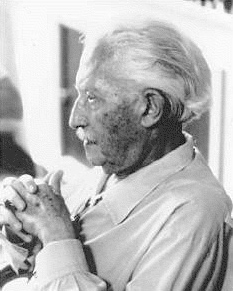
Above: German psychoanalyst Erik Erikson (1902 – 1994)
Lukas reflects on what he has learned about research methods and statistics – dreaded at first, but he has come to appreciate the order in data, the clarity of patterns.
The coldness of spreadsheets is a balm against emotional chaos —
Back in Zürich he had joked that regression analysis gives more closure than love ever has.
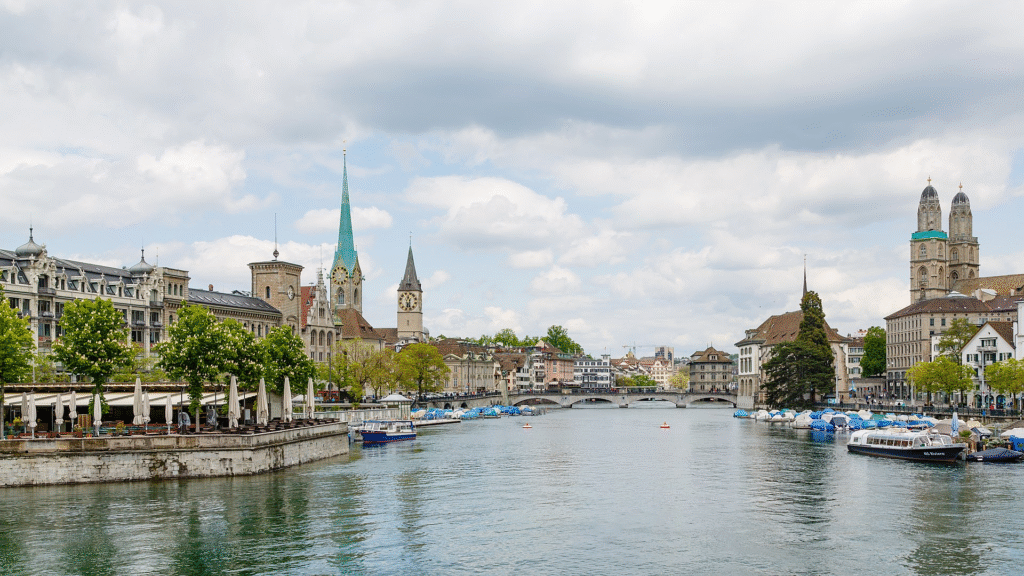
Above: Zürich, Canton Zürich, Schweiz (Switzerland)
Lukas thinks about his history minor.
He has learned about the Federal Charter of 1291, neutrality, the myth of Wilhelm Tell, and Switzerland in WWII.
He has studied how the country stayed armed, now a neutral mirror of himself, wearing a uniform, not yet called to battle.
He considers a future paper topic:
“The Soldier of Peace: Swiss Identity in the 20th Century”.
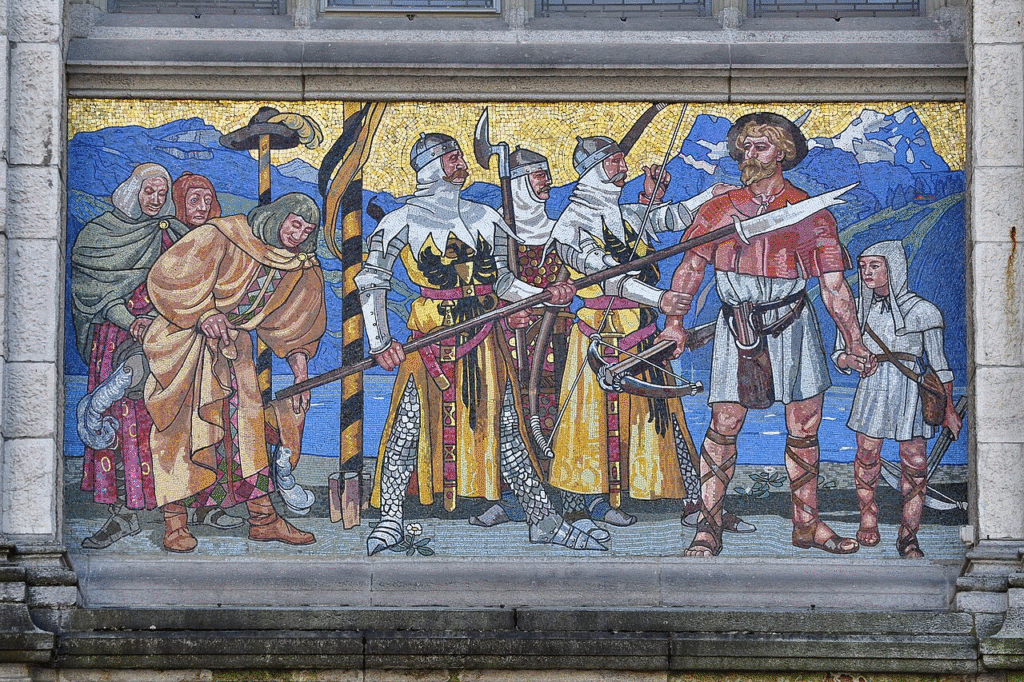
Above: William Tell being arrested by three men-at-arms for not saluting Gessler’s hat in Altdorf. Mosaic, Landesmuseum, Zürich
Lukas has learned of European revolutions and enlightenment thought, exploring Voltaire and Rousseau and Kant, who wrestled with reason against emotion, who sought freedom amidst order.
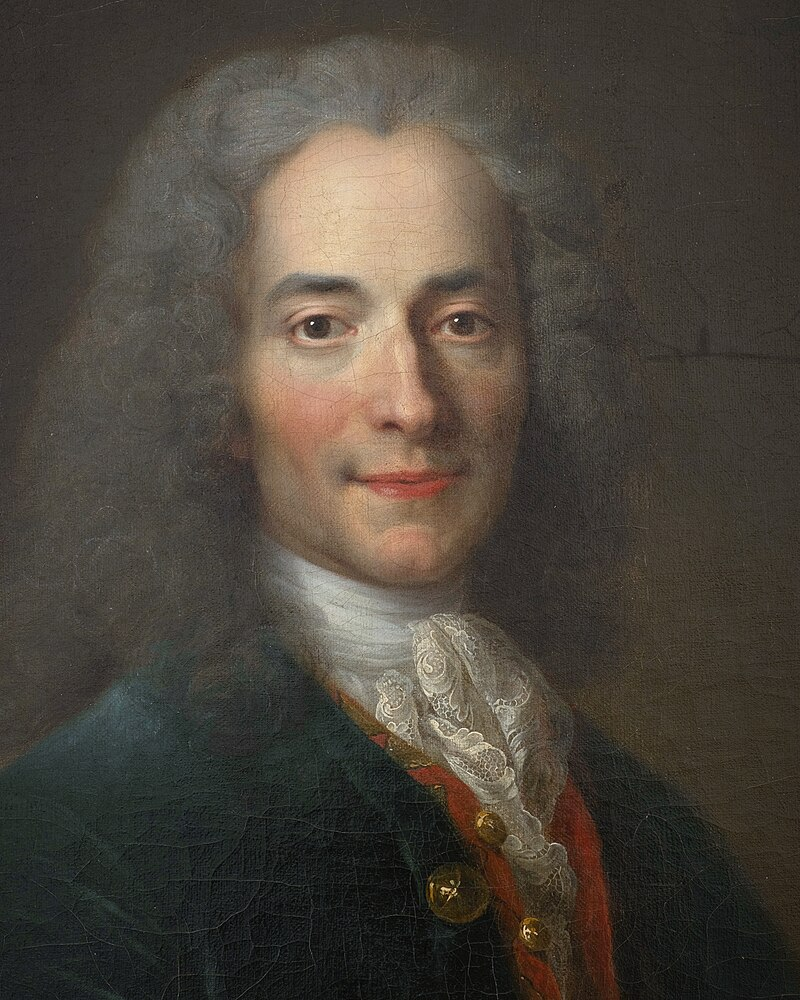
Above: French writer/philosopher François-Marie Arouet (aka Voltaire)(1694 – 1778)
These thinkers have bled into his psychology essays.
The interdisciplinarity has begun to shape him.
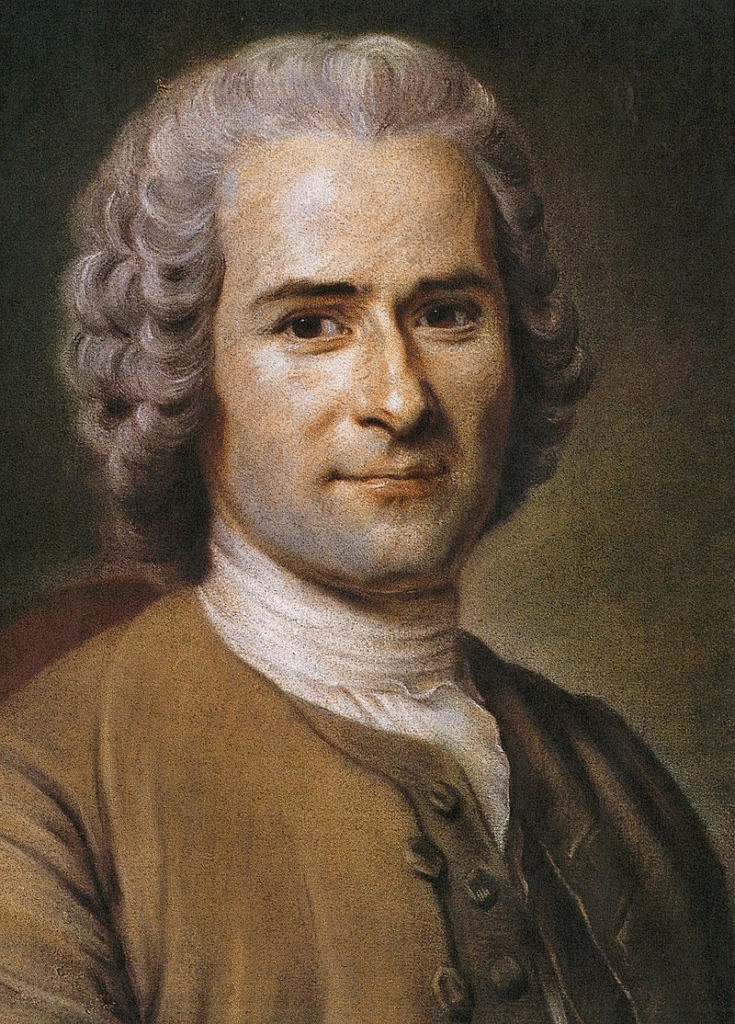
Above: Swiss philosopher/writer Jean-Jacques Rousseau (1712 – 1778)
He has learned history is crafted, not just recorded.
Bias, narrative voice, selection of sources, everything is a choice.
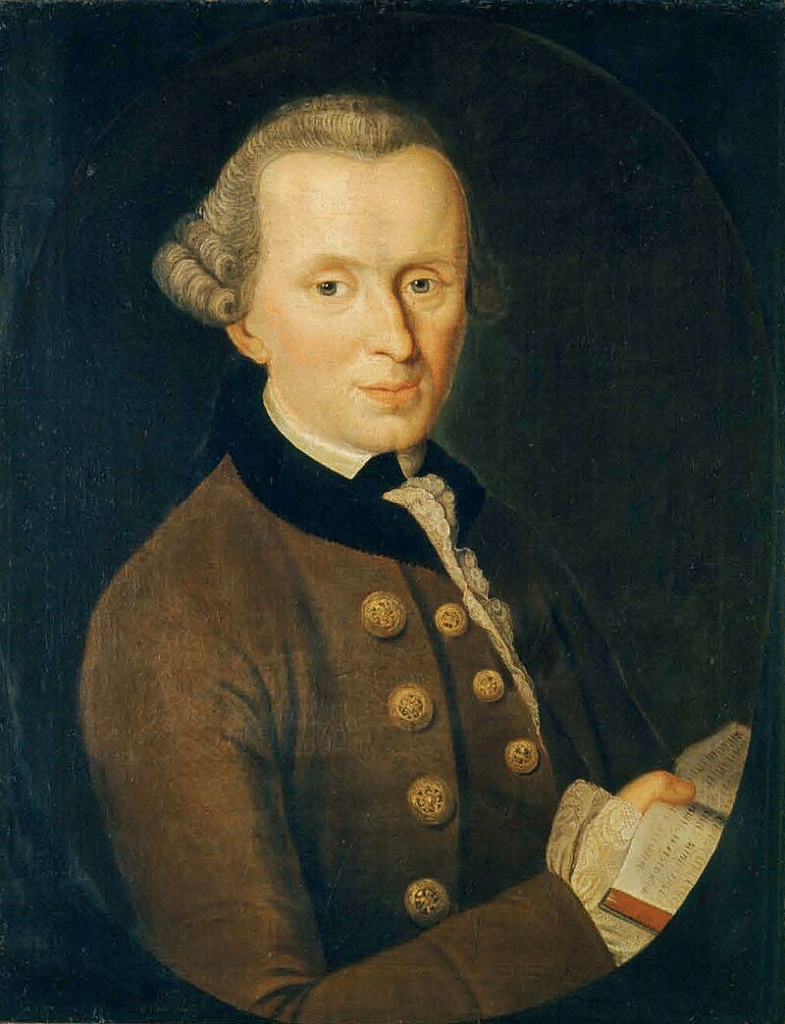
Above: German philosopher Immanuel Kant (1724 – 1804)
This has awakened something deeper.
He has started journaling, wondering whose version of his own story he will believe.
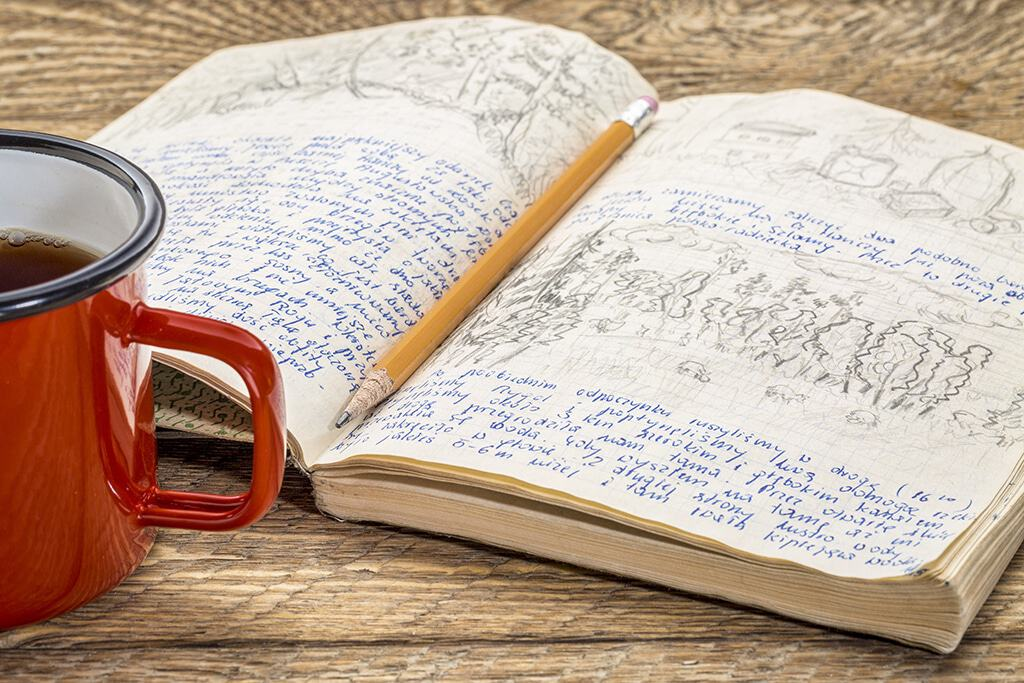
And what life lessons has he learned from his military service?
In Switzerland’s case, the military isn’t about foreign wars or battlefield trauma.
It’s more about structure, civic identity, endurance, and a coming-of-age rooted in discipline and communal obligation.

Above: Flag of Switzerland
The paradox hits hard in the early weeks of Rekrutenschule (basic training):
You are ordered to wake, eat, march, clean, repeat — but out of this rigid repetition, something grows.
You realize that personal freedom means nothing if you can’t control your own impulses, body and schedule.
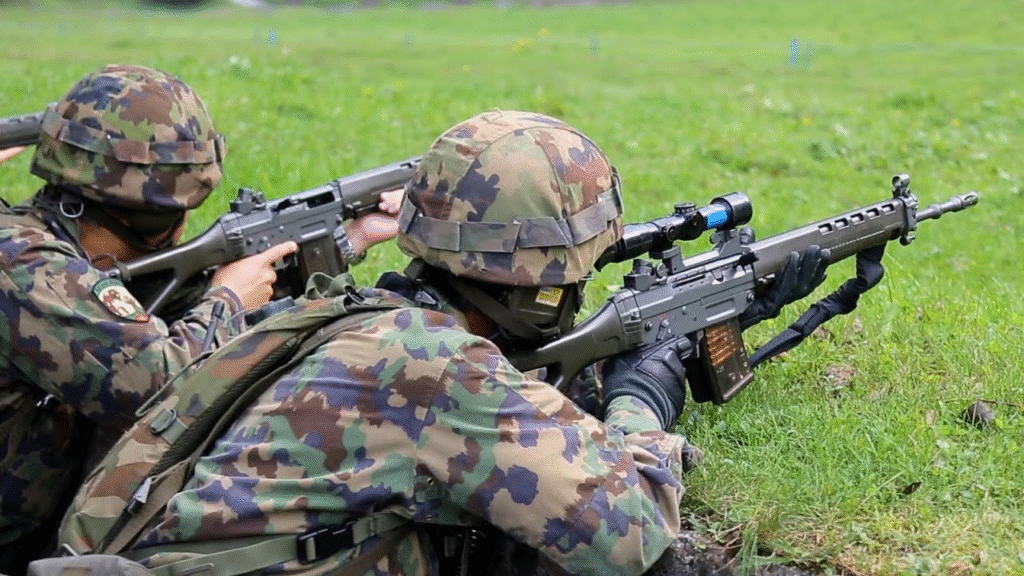
He recalls what one of his trainers said:
“Before I could lead my own life, I had to prove I could follow.“

Grueling marches, endless drills, and cold mornings teach resilience— not just physical but mental.
Many soldiers discover that exhaustion isn’t a wall — it’s a door.
The muscles scream, but they don’t give up.
Somewhere the soldier finds the man he can be.
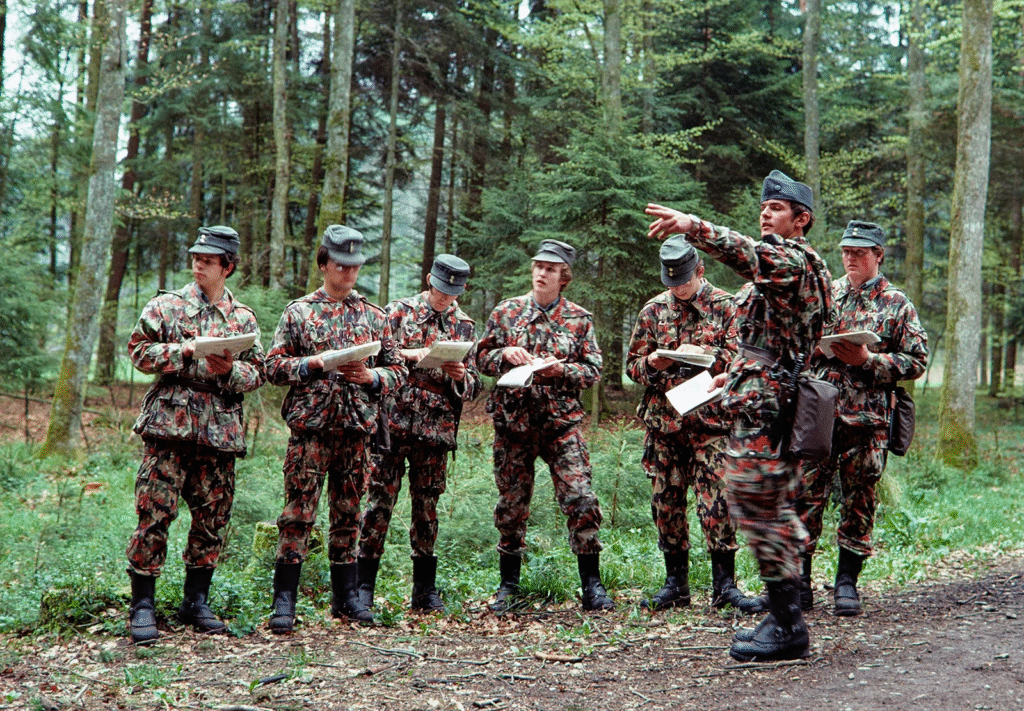
Swiss military units mix men from all regions — French, German, Italian speakers.
Farm boys bunk beside city kids.
Muslims beside Catholics beside atheists.
You learn to rely on others and be relied upon.
Prejudices crack under shared hardship.
Brotherhood transcends background.
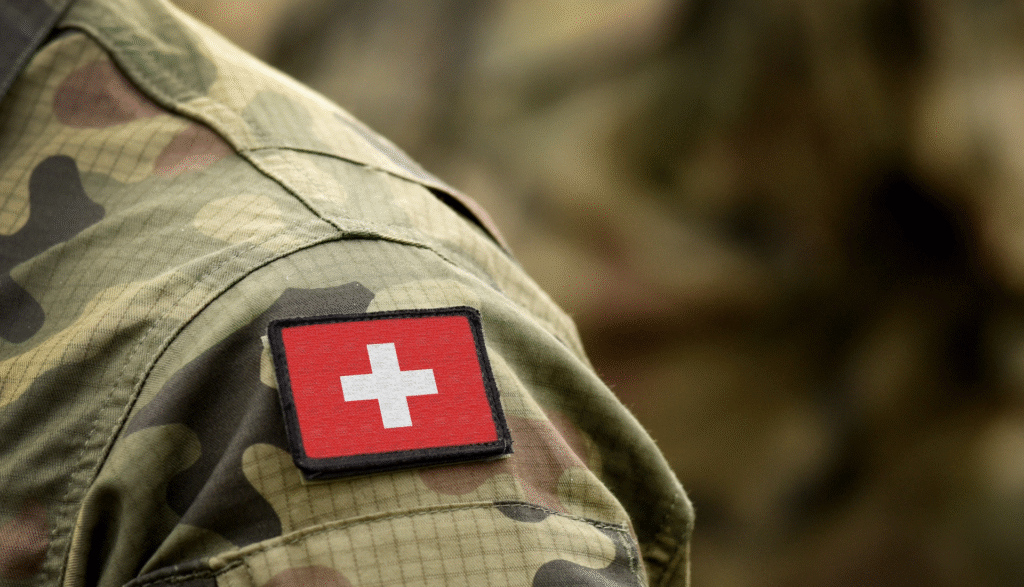
In Switzerland, everything is engineered, timed and exact — and so is the Army.
Folding a blanket properly, aligning your boots, or showing up five minutes early isn’t about blind obedience — it is about respecting those around you.
Orders often feel arbitrary — until they save someone pain or prevent disaster.
You start to recognize the wisdom in waiting, in patience, in not knowing everything now.
The military doesn’t define you, but it imprints something:
A way of walking, noticing, standing straighter.
It becomes a hidden part of your story — silent but steady.
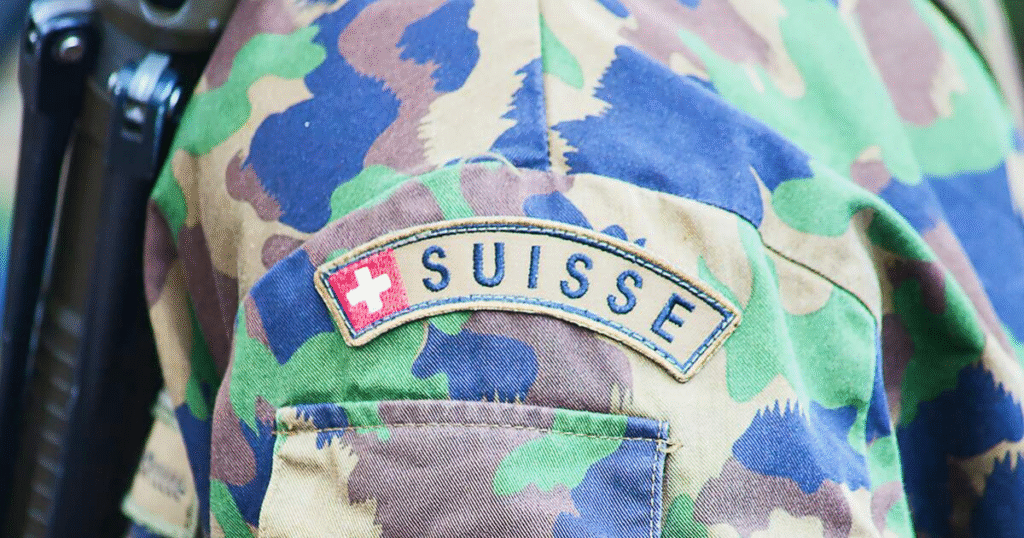
As Lukas reflects on his basic training and the return to military service that is his journey’s end, he thinks:
“No one on this train knows I can shoot a rifle, sew a wound, and iron a shirt in the dark.
That’s fine.
I know.“
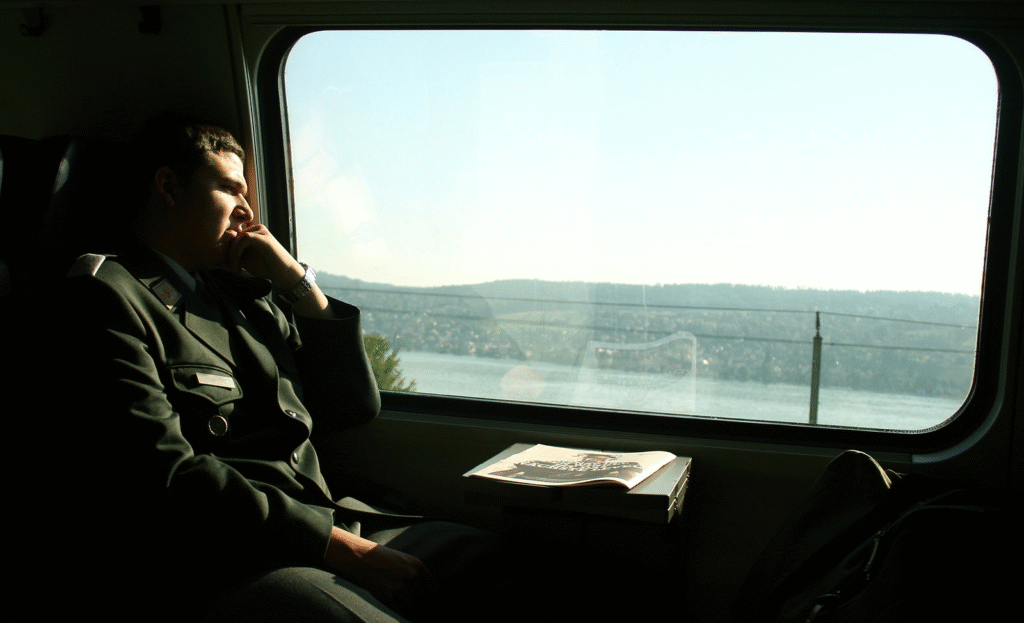
The Swiss are proud of their neutrality, but they don’t take it for granted.
Military service instills an understanding that peace requires vigilance, humility and readiness, not complacency.
Again, the voice of his training officer speaks in his mind:
“We train not to fight but to remember why we don’t.“
He touches the smooth edge of his wristwatch, recalling roll calls.
He remembers lining up for rations.
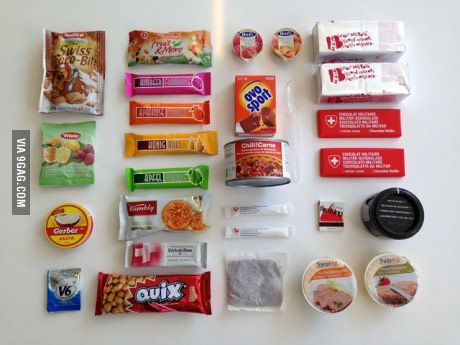
St. Margrethen Base sits not far from the calm serenity of the Bodensee (Lake Constance), yet within its walls, the rhythms are rigid:
Whistles, boots on gravel, barked commands, and the metallic clank of rifles being dismantled and reassembled.
Surrounded by farmland and tidy Swiss town life, it stands as a quiet contradiction:
Order amidst pastoral peace.
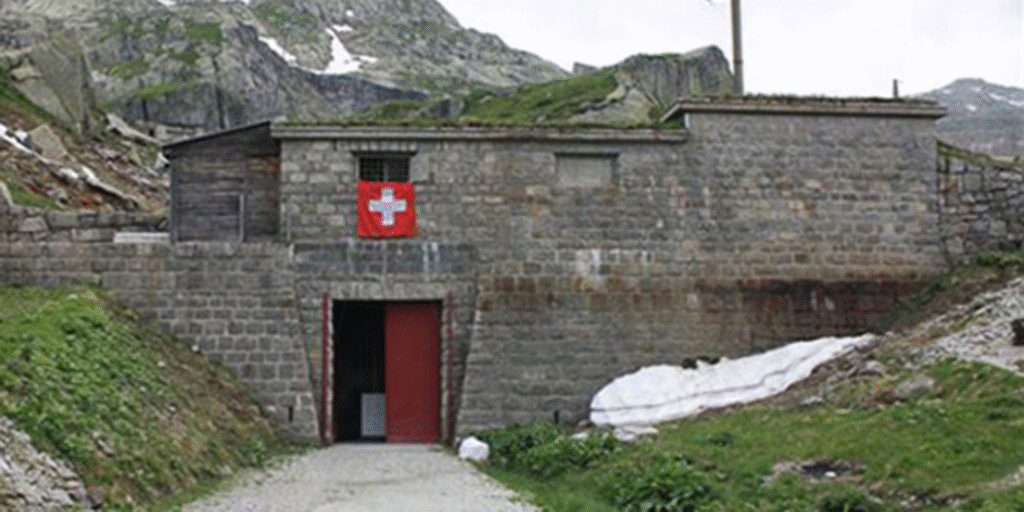
You can hear the echo of commands in Swiss German, intermixed with French and Italian accents — an auditory map of the nation’s multilingual character.
The smell of oil, wool uniforms, leather and institutional soap lingers in the air.
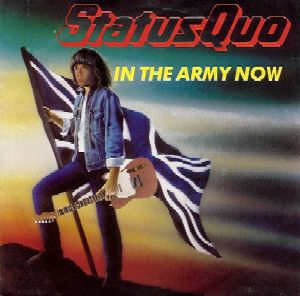
A vacation in a foreign land, Uncle Sam does the best he can
You′re in the Army now, oh-oo-oh, you’re in the Army, now
Now you remember what the draft man said,
Nothing to do all day but stay in bed
You′re in the Army now,
Oh-oo-oh, you’re in the Army, now
You’ll be the hero of the neighbourhood,
Nobody knows that you′ve left for good
You′re in the Army now,
Oh-oo-oh, you’re in the Army, now
Smiling faces as you wait to land,
But once you get there, no one gives a damn
You′re in the Army now,
Oh-oo-oh, you’re in the Army, now
Hand grenades flying over your head
Missiles flying over your head,
If you want to survive get out of bed
You′re in the Army now,
Oh-oo-oh, you’re in the Army, now
Shots ring out in the dead of night,
The sergeant calls ′Stand up and fight!‘
You’re in the Army now,
Oh-oo-oh, you′re in the Army, now
You′ve got your orders, better shoot on sight,
Your finger’s on the trigger, but it don′t seem right
You’re in the Army now,
Oh-oo-oh, you′re in the Army, now
You’re in the Army now,
Oh-oo-oh, you′re in the Army now
Night is falling and you just can’t see, is this illusion or reality?
You’re in the Army now,
Oh-oo-oh, you′re in the Army, in the Army, now
You′re in the Army now,
Oh-oo-oh, you’re in the Army, now
Oh-oo-oh, you′re in the Army, in the Army, now
Oh-oo-oh, you’re in the Army, in the Army, now
Oh-oo-oh, you′re in the Army, in the Army, now
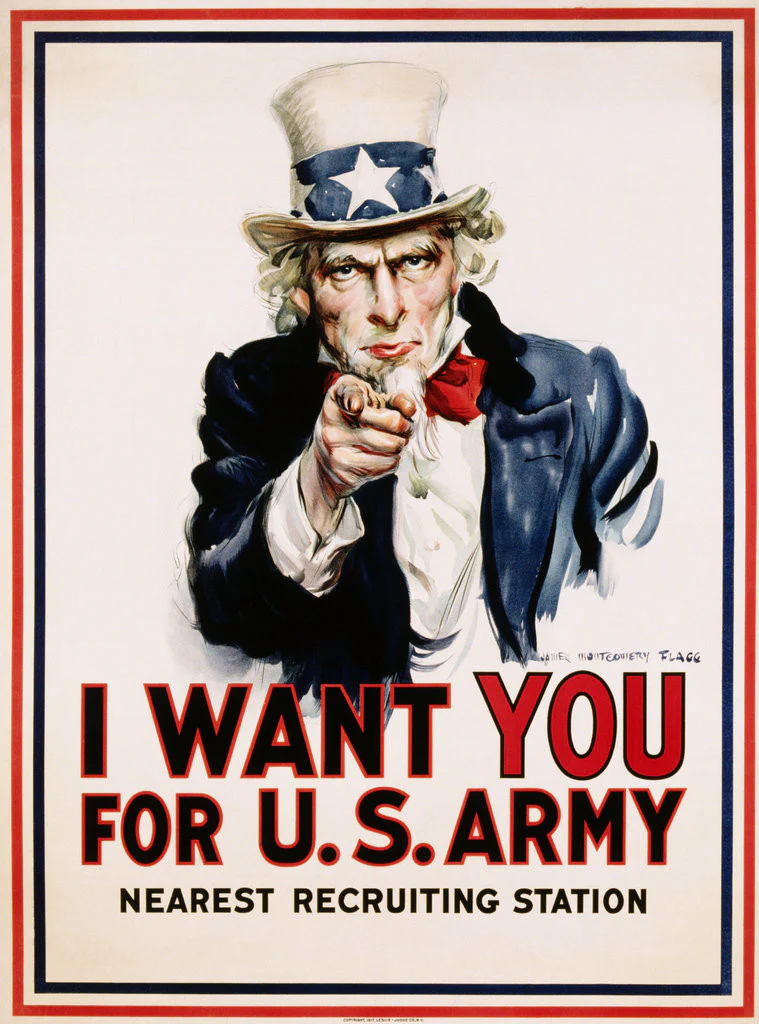
St. Margrethen is not a dramatic fortress, but a rite of passage, where Swiss boys are shaken out of comfort and shaped into Swiss men —not through violence or war, but through routine, camaraderie and endurance.
He remembers his first time disembarking in St. Margrethen, snow crunching underfoot, duffel bag heavy, unsure whether he was stepping forward into duty or away from freedom.
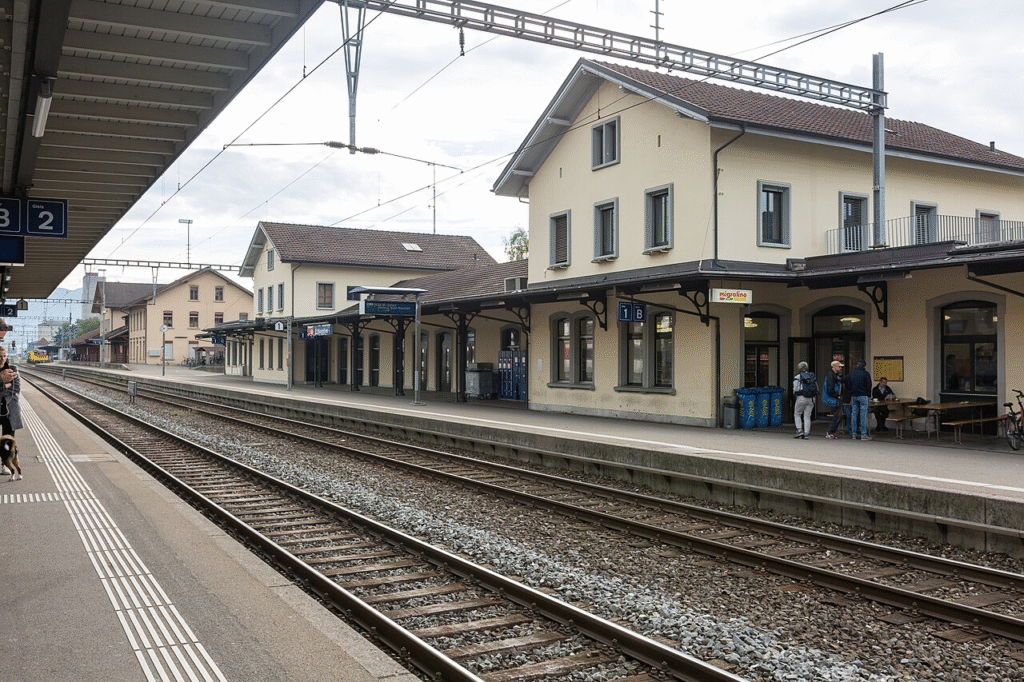
Above: St. Margrethen Bahnhof (railway station), Canton St. Gallen, Schweiz
He passed a bakery and smelt fresh Zopf.

He then turned a corner and saw a barbed wire fence — not ominous, just…
Symbolic.
The curtain falling on youth.
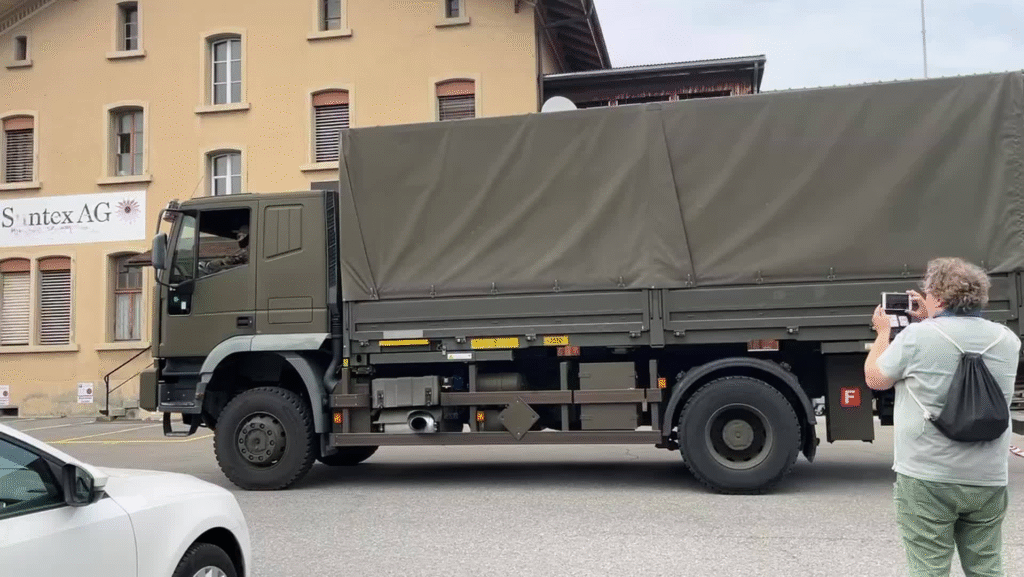
Swiss men are recalled periodically for refresher courses (Wiederholungskurse – WK), usually two to three weeks long, until around age 34 (depending on rank and branch).
Service totals around 245 days, though it is spread out over years.
Civilian Service (Zivildienst) is an option for conscientious objectors, requiring more total time (doing such things as hospital work, elder care, environmental projects, and so on).
Women can volunteer, but are not conscripted.
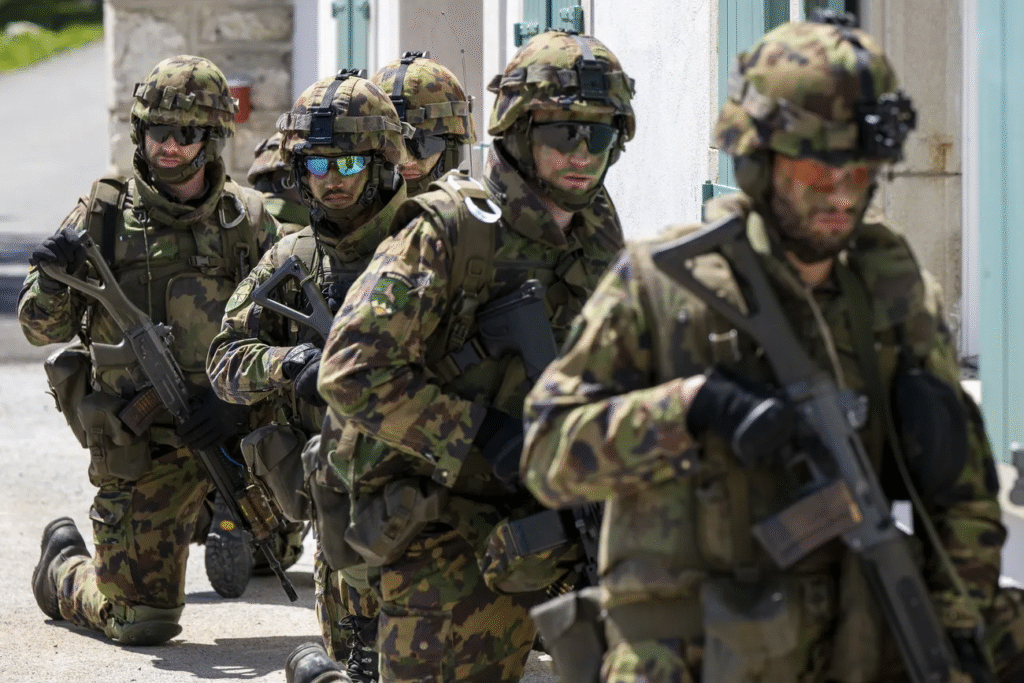
Many Swiss view military service as a national bonding experience, while others critique its outdatedness.
There is often a certain stoic resignation among young men — some eager, many indifferent.
Train rides to base are often charged with quiet anxiety, a mix of pride, dread and becoming.
But becoming what, he wonders.
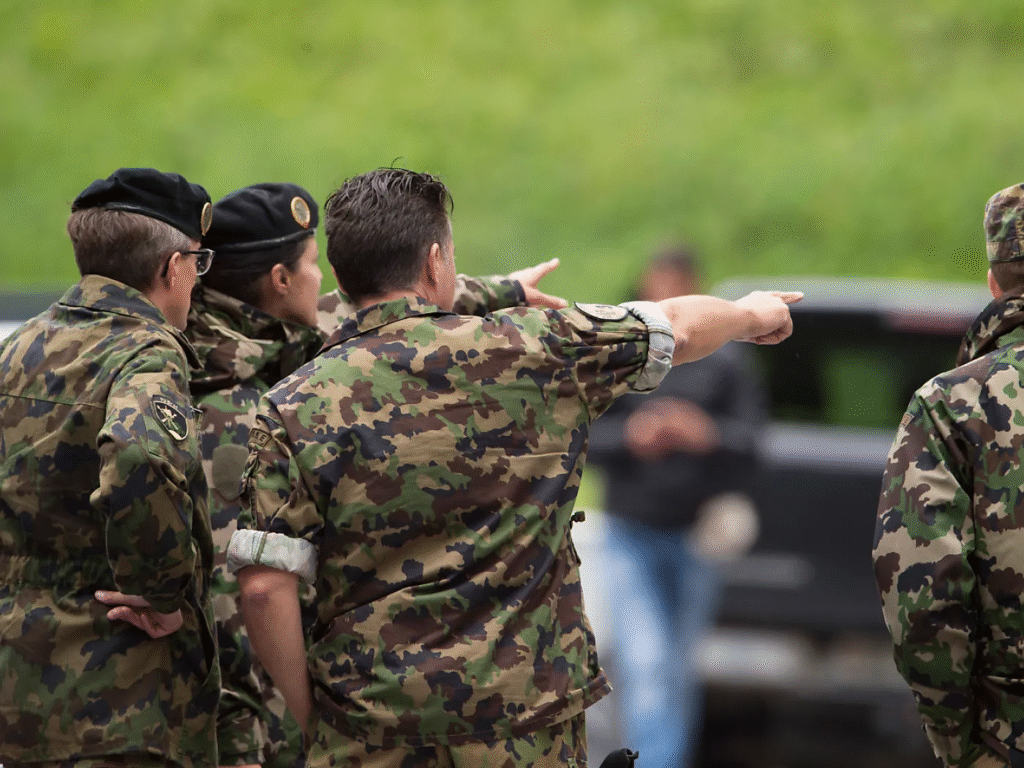
The light of the setting sun casts long shadows across the empty carriage.
The air that remains within the wagon, is still fresh from the spring evening.
It carries the promise of summer yet to come.
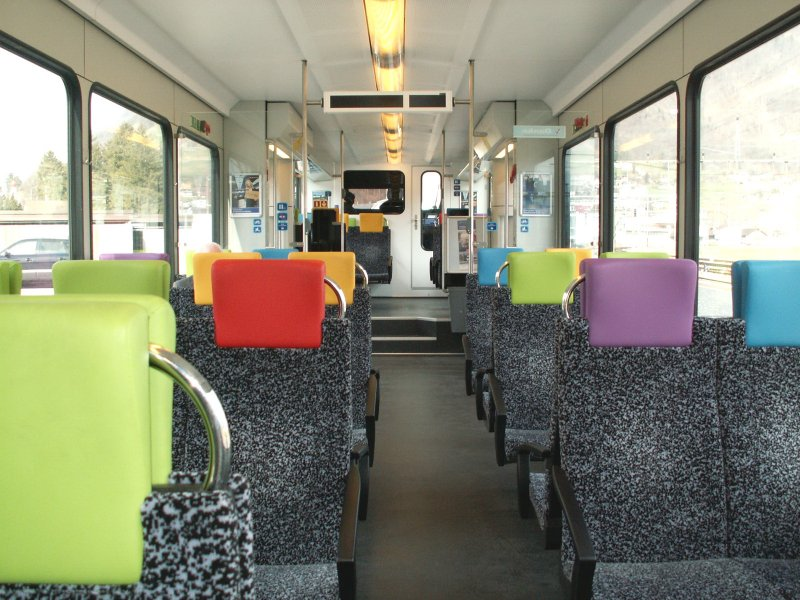
Back in Romanshorn, she had entered the wagon.
Despite the emptiness of the wagon, she chose a seat across from Lukas, and though there was no obvious reason for this choice, it feels somehow inevitable — almost as if their destinies are quietly colliding in this fleeting moment.
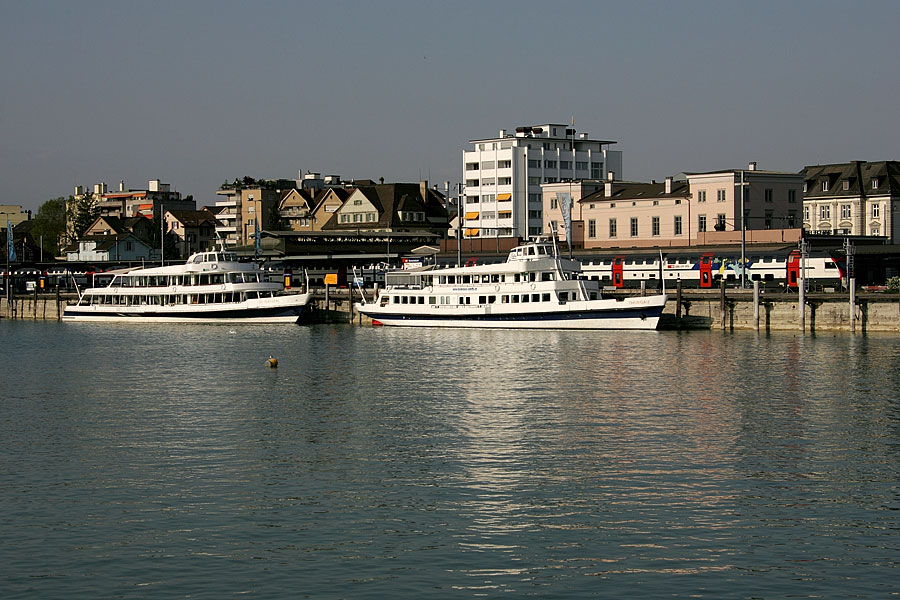
Above: Romanshorn Bahnhof, Canton Thurgau, Schweiz
From the corner of his eye, Lukas studies her.
Her outfit is stylish, but casual enough for a night out, yet effortless enough to suggest that she is not trying too hard.
She wears a fitted jacket, a muted charcoal grey – like the floor of the wagon or the seats with their individually bold purple, blue, green, red, orange or yellow headrests – elegant yet unpretentious.
Beneath the jacket, a simple but flattering top, a slight sheen — just enough to hint at the night ahead.
Her jeans are well-fitted, slightly faded from wear.
Her shoes, though comfortable for the train journey, have a sense of sophistication, low-heeled ankle boots.
Her makeup is subtle yet impeccable:
A slightly darker shade of lipstick to complement the evening, her eyes lined delicately to accentuate their natural shape, but not overly dramatic.
Her hair, loosely tied back, exudes a natural elegance, indicating she put some thought into her appearance but didn’t want to appear too “done up”.
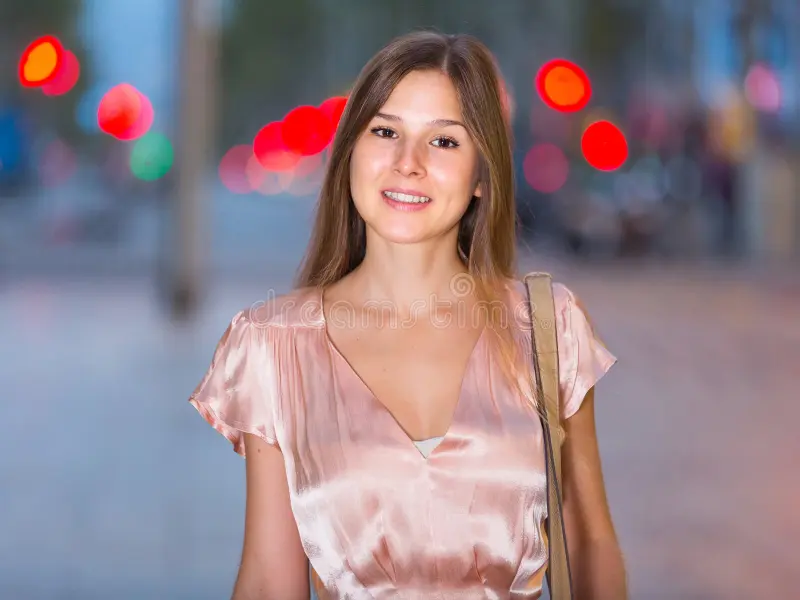
Her face is soft yet defined.
Full lips that hold a subtle warmth and a sharp nose that suggests Italian roots.
Her olive skin has a warm, sun-kissed glow that speaks of a life spent outdoors.
Her long, dark brown hair is thick and straight, cascading down her back in soft waves, shifting with every movement.
Her eyes are a striking green, with a depth that hints at an unspoken story, fringed by long lashes.
Her eyebrows are arched, giving her face an expressive quality.
Her frame is slender and graceful, her movements fluid, with the quiet elegance of someone comfortable in her own skin.
She dresses with a mixture of boldness and practicality — clean lines, vibrant colors, and sophisticated accessories, but always with a touch of effortlessness.
There is a warmth in her presence, a passionate spirit and a calm resilience.

Her choice to sit near Lukas sparks a subtle, unspoken curiosity within him.
She appears confident.
He wonders if she, too, might be curious about him — perhaps she is drawn to his calm demeanor or his quiet focus on writing.
Perhaps, In a world that often prizes extroversion and noise, Lukas represents something else:
A reflective, introspective space that contrasts with the outward rush of her social plans.
But, then again, she might not be aware of her attraction to him —perhaps she simply wanted a seat where she could relax, and this unintentional connection forms in his mind in the process.
The young woman occasionally glances up from her phone, her eyes meeting Lukas’s for a fraction of a second before she quickly looks away.
It is not flirtation, but a brief acknowledgment of shared space.
She is conscious of him, just as he is of her, but both are too absorbed in their own worlds to bridge the gap.

The way she looks suggests to Lukas a movement toward a place of comfort, fun and emotional release.
He imagines her as someone who enjoys living in the moment, on a night out – a way of reconciling the parts of herself that feel constrained by responsibilities, expectations, and perhaps the quiet loneliness that can come with adulthood.
This is a way to reconnect with her youth, her friends and the lighter parts of herself that often get buried under the weight of daily life.
The lake, the train ride, the quiet space between them — everything speaks of the internal and external movement of people trying to connect while remaining separate.
Perhaps as much as Lukas wrestles with his thoughts, she, too, is navigating her own internal terrain.
Or perhaps her choice to sit across from Lukas, to quietly observe and engage in her own world, might reflect a desire for connection while maintaining distance.
She might be someone who seeks out companionship but is cautious about whom she lets in, just as Lukas hesitates to speak to her.
There’s beauty in this mutual quiet, a shared solitude that isn’t about loneliness but about the complexity of human interaction.

We are modern individuals, both deeply connected to others through technology and yet isolated in an increasingly impersonal world.
This is the heart of what it means to be human:
Wanting a connection, yet holding back, unsure of how to make it happen.
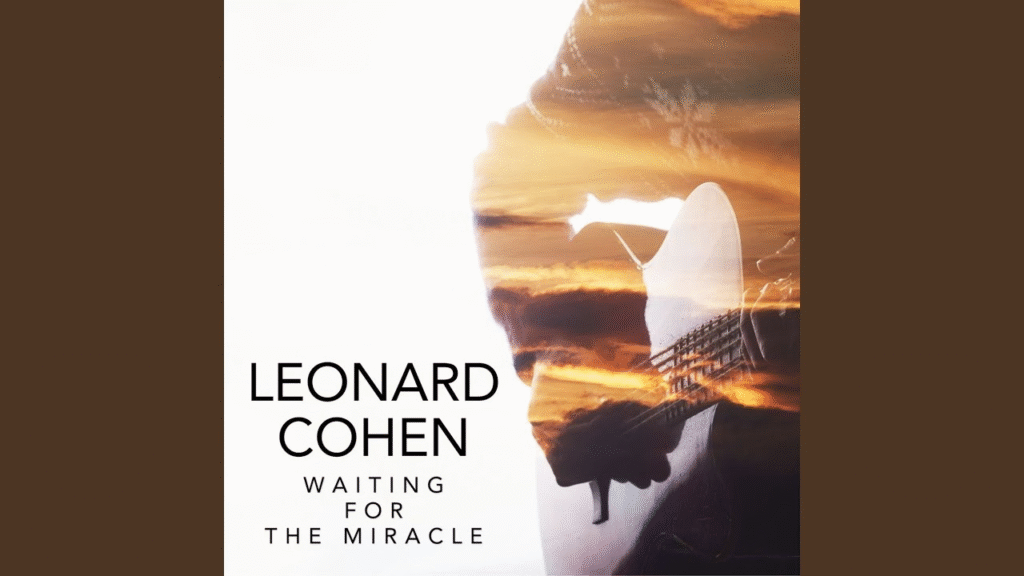
Baby, I’ve been waiting
I’ve been waiting night and day
I didn’t see the time
I waited half my life away
There were lots of invitations
And I know you sent me some
But I was waiting
For the miracle, for the miracle to come
I know you really loved me
But, you see, my hands were tied
I know it must have hurt you
It must have hurt your pride
To have to stand beneath my window
With your bugle and your drum
And me, I’m up there waiting
For the miracle, for the miracle to come
Ah, I don’t believe you’d like it
You wouldn’t like it here
There ain’t no entertainment
And the judgments are severe
The Maestro says it’s Mozart
But it sounds like bubble gum
When you’re waiting
For the miracle, for the miracle to come
Waiting for the miracle
There’s nothing left to do
I haven’t been this happy
since the end of World War II
Nothing left to do
When you know that you’ve been taken
Nothing left to do
When you’re begging for a crumb
Nothing left to do
When you’ve got to go on waiting
Waiting for the miracle to come
I dreamed about you, baby
It was just the other night
Most of you was naked
Ah, but some of you was light
The sands of time were falling
From your fingers and your thumb
And you were waiting
For the miracle, for the miracle to come
Ah baby, let’s get married
We’ve been alone too long
Let’s be alone together
Let’s see if we’re that strong
Yeah, let’s do something crazy
Something absolutely wrong
While we’re waiting
For the miracle, for the miracle to come
Nothing left to do
When you know that you’ve been taken
Nothing left to do
When you’re begging for a crumb
Nothing left to do
When you’ve got to go on waiting
Waiting for the miracle to come
When you’ve fallen on the highway
And you’re lying in the rain
And they ask you how you’re doing
Of course you’ll say you can’t complain
If you’re squeezed for information
That’s when you’ve got to play it dumb
You just say you’re out there waiting
For the miracle, for the miracle to come
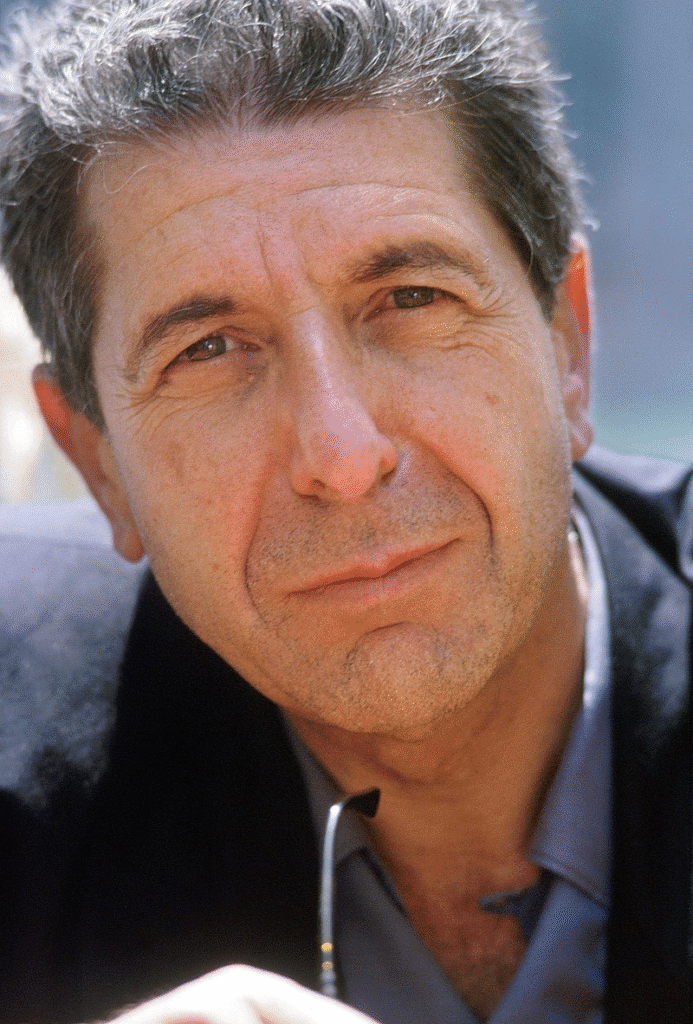
Above: Canadian musician/poet Leonard Cohen (1934 – 2016)
She is a woman – seeking to embody both allure and autonomy.
Her attire is both revealing and empowering, sending a message that she is confident in her own skin, but also asserting her control over her appearance and identity.
While she might appear eye-catching to Lukas, her attire is a statement of her independence, her comfort with her body, and her own personal style choices.
There is agency behind her clothing choices.
She is not trying to draw attention, but rather she is representing herself in the world.
The way she carries herself, her posture as she sits across from Lukas, the way she occasionally adjusts her phone or glances out the window….
Is she aloof or self-assured?
Is she more interested in the destination ahead than in the fleeting connections that might happen along the way?
Her self-contained demeanor suggests that she is someone who is used to being noticed but chooses when and where to engage.
The fact that she chooses to sit across from him despite the empty seats suggests that, on some level, she is aware of his presence and might be quietly curious about him, but it is not overt and thus not obvious to Lukas.
She expresses confidence, individuality and readiness for the night ahead.
Upon her face the interplay of desire, independence and self-expression are balanced.
She is an individual woman, neither simple nor stereotypical.
She is not defined solely by her outward appearance, but by how she moves through the world, how she chooses to present herself, and the subtle signals she gives off.
Signals, despite the male gaze, men have rarely learned to read.
Perhaps she often makes the mistake of thinking that something that is obvious to women is just as obvious to men.
No wonder men disappoint her.

“Nächster Halt auf Verlangen: Egnach“
(“Next stop upon request: Egnach“)
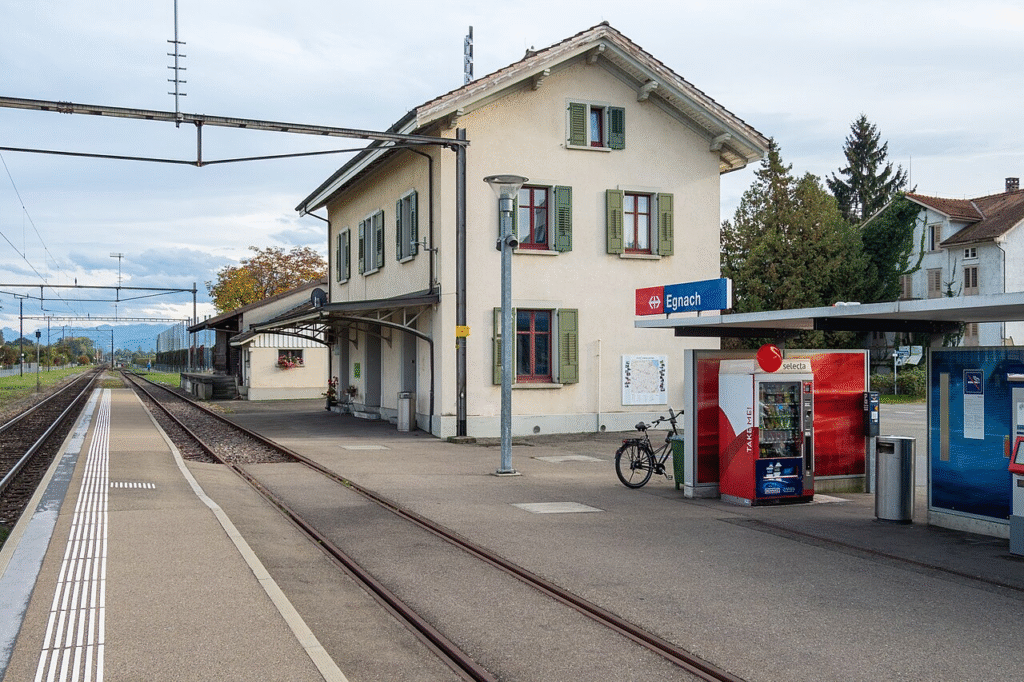
Above: Egnach Bahnhof, Canton Thurgau, Schweiz
In the breathlessly brief three-minute ride from Romanshorn to Egnach, she looks at her phone.
It rings and she answers.
Her voice, clear and confident, captures a sense of anticipation —she is looking forward to the night ahead.
There is an undercurrent of relief as she prepares to momentarily escape the grind of daily life.
The casual tone of the conversation, the banter with her friend, offers a glimpse into her life:
A young woman who, despite the weight of the world, knows how to seek joy in the company of others.

“Ich bi’s.
D’Alessandra.
Hoi, hey, ich bi jetzt im Zügli, bi grad bei Romanshorn verbii.
So in etwa zehn Minute bin ich in Horn.
Ich chume eifach grad i de Bahnhof, lueg, dass ich euch finde.
Ich ha den schwarze Jäckli a — ja, du weisch, das!
Ich halte au glich öppis ausschti.“
(“It’s me.
Alessandra.
Hey, babe!
Yeah, I’m on the train now, just left Romanshorn.
Should be in Horn in, like, ten minutes.
I’ll meet you guys there, don’t worry.
I’ll be wearing the black jacket, yeah, you know the one!
I’ll keep an eye out for you.“)
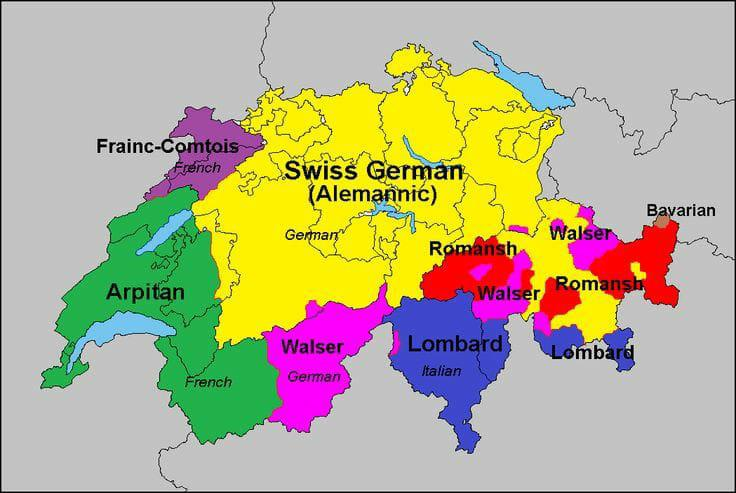
She pauses, listening, her expression warm and amused.
“Klar, mir gönd nach St. Galle, oder?
Was sött mer sonst mache?
Es isch lang her, dass mir wieder so e richtige Mädels-Nacht gha händ. Ich freu mi scho so uf das, echt!
Die Clubs da sind echt perfekt für das, was mir jetzt brauchen —nicht z’ verrückt, aber trotzdem cool.“
(“Well, obviously we’re going to St. Gallen, right?
What else would we do?
It’s been ages since we had a real girls’ night out.
Oh, I’m so ready for this.
The clubs there are perfect for what I’m in the mood for — nice and fun but not too crazy.“)
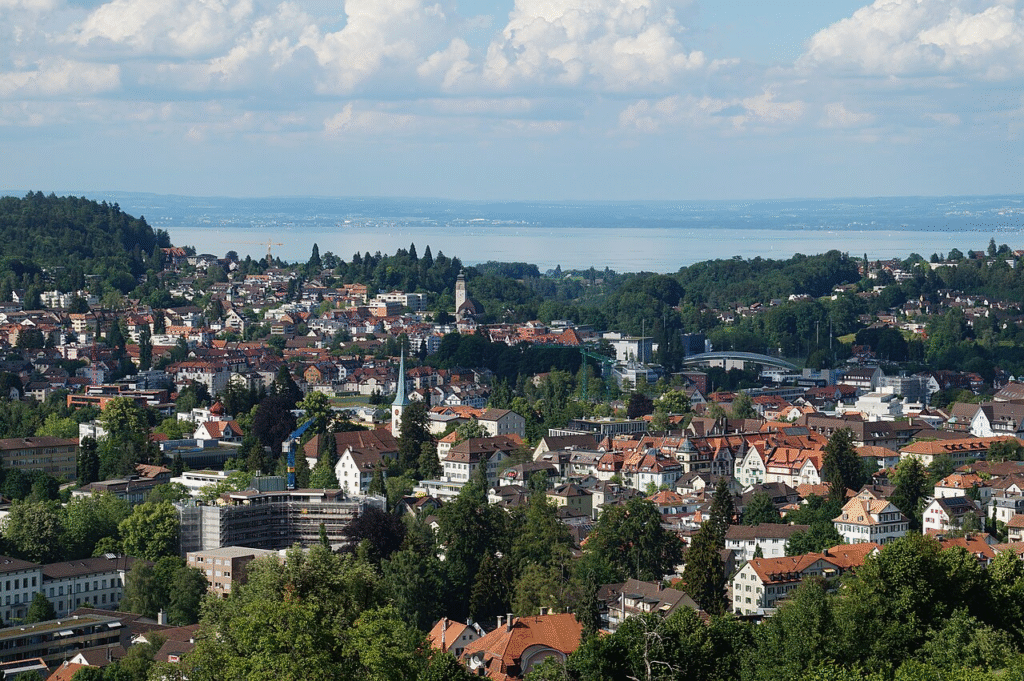
Above: St. Gallen, Canton St. Gallen, Schweiz
Another pause, this time a little longer as she checks her surroundings, then a chuckle.
“Haha, ja, ich weiss, was du meinisch.
Ich glaub nöd, dass ich bis am Morge dürf mache, wie ich mich grad fühle.
Aber gniess, mit ein paar Getränken, guete Muisig und euch – was brauch ich noch mehr?“
(“I know, right?
I’m honestly not sure how I’ll make it through the night with the way I feel.
But don’t worry, I’ll be okay.
I mean, a couple drinks, good music, and you guys, what more do I need?“)
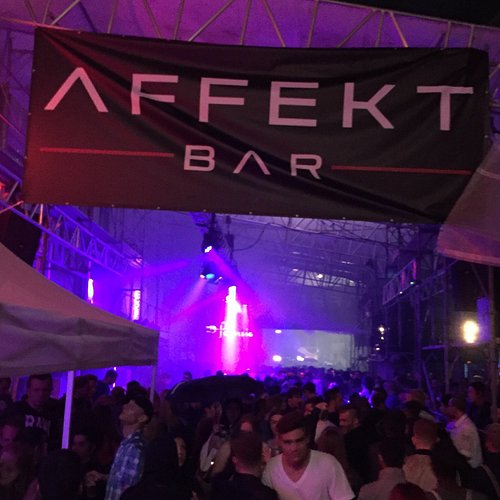
She sighs playfully.
“Okay, okay, ich werds versueche, es ruhig z’ mache.
Aber du weisch, ich brauche manchmal e paar Frittier-Momente.
Arbeit isch grad… uhh.
Drum wird das perfekt!
Bist du immer no mit dem Typ vom Büro da?
Ich muss den endlich mal treff, der tönt wie en richtige Luschtvogel.“
(“Okay, yeah, I will try to keep it low-key.
I’m not planning to get totally wild, promise.
But you know me, I just need a little bit of recharge.
Work has been…ugh.
So, this will be perfect.
Are you still bringing that one guy from your office?
I swear, I need to meet him — he sounds like a laugh.“)

She listens again, nodding as she glances outside, the golden evening light reflecting on the lake.
“Jo, i gseh di bald.
Bin in fünf Minuten da.
Mir hend es superi Znacht, versprochen.
Bis gloufe!“
(“Alright, I’ll see you soon then.
I’ll be there in, like, five.
We’ll have such a blast tonight.
Can’t wait!
Bye, love!“)
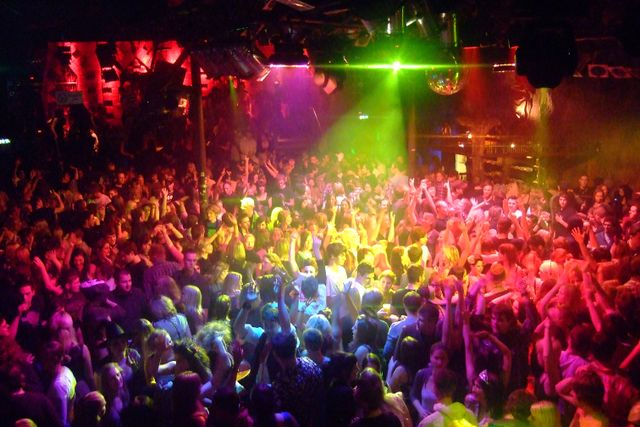
As the train sits still, the waning daylight of springtime at sunset creates an intimate atmosphere inside the wagon.
With the electrical systems down, and no ceiling lighting to break the growing darkness, the natural light outside becomes the main source of illumination.
The train’s left side faces the lake.
The sun casts soft golden light through the windows, flooding the space with a warm, fading glow.
The light is low, oblique and rich in tone, stretching long across the interior.
Together, Alessandra and Lukas are bathed in dimming sunlight, refracted through the glass, creating an interplay of light and shadow across their faces, their hands, their bodies.
They sit in a pool of warm sunlight, their bodies half-shadowed, while shadows lengthen as the sun sinks lower.
The slanted beams of light cause irregular patterns to form on the walls and floor, creating a dappled effect as the train, though stationary, continues to vibrate slightly, shifting the light and casting it in transient shapes.
The outlines of seats and armrests stretch long against the darkening interior, elongating with the angle of the fading sun.
As the train’s windows reflect the light, they could see the play of warm hues shifting across their environment, the golden light casting faintly glowing reflections, while deepening shadows gather around the edges, absorbing the color.
As the sunset continues, the golden light fades into softer pinks and purples, with the deep blue of twilight beginning to creep across the lake outside.
The shadows inside deepen, slowly overtaking the soft light.
The wagon has become an intimate, dimly lit space, the sounds of the outside world muffled and distant.
The broken electrical system and absence of overhead lights force passengers to rely on the natural world for visibility, contributing to a sense of isolation and a feeling of being disconnected from modern comforts.
The sunset is the heartbeat of the environment, a delicate interplay of light and shadow.
No announcement has followed, only the faintest sigh of brakes and the hum of systems not quite alive.
Outside, the dusk is stitched with fog, pale threads winding around low hills and skeletal trees.

Within the car, the light has faltered — to a flicker, then a retreat into greyness, as though the light had grown uncertain of its purpose.
He feels alone, his coat folded over his lap, one hand resting atop it as if it were a sleeping animal.
The window before him has turned to a mirror, and in it he sees not a man but a pale shadow of one — his eyes swallowed by hollows, his mouth a faint scar.
The silence between them, interrupted only by the occasional ticking of unseen mechanisms, presses in like water filling a vessel.
He does not fear the delay.
In fact, he welcomes it.
Movement demanded intention, destination, decision.
Stillness allowed him the comfort of none of these.
He thinks about the woman.
He watches her as she reads her phone, her fingers playing unconsciously across the touchpad.
When she smiles — though never in his direction — it is the sort of smile that seems to summon memory from the bone.
He does not know her.
He would not know her.
And yet, her presence has begun to unpick something in him, to disturb the careful isolation he has cultivated like a private garden.

Now, in this stalled half-light, he wonders —
“What if I stood up?
What if I walked the narrow corridor and passed her with the faintest nod?
What might such a movement cost me?
What might be the result?“
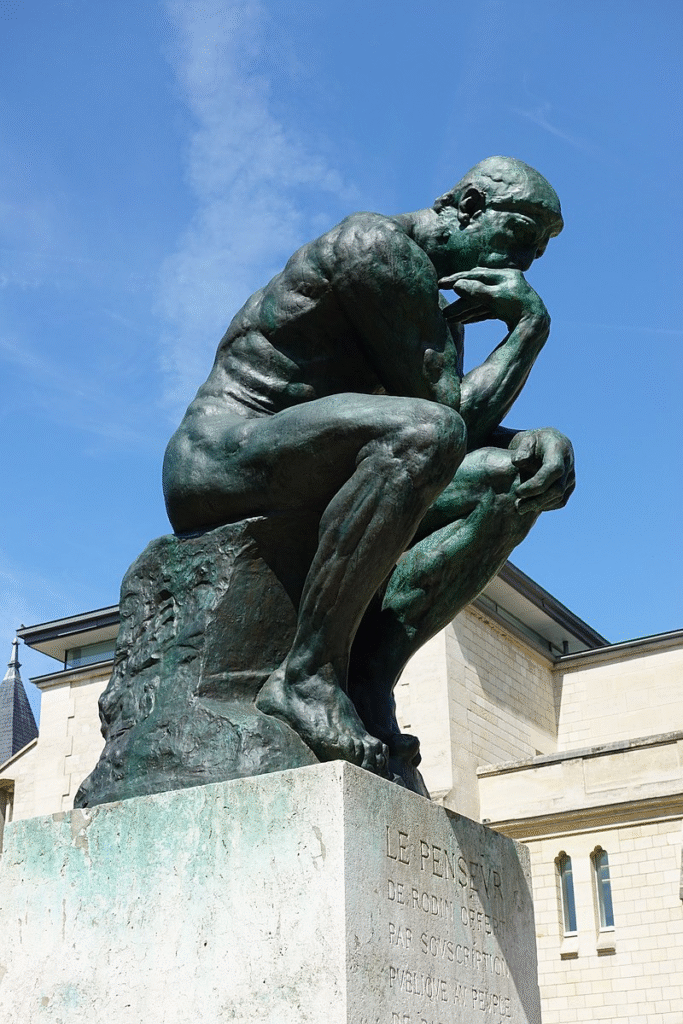
Above: The Thinker, Auguste Rodin (1904)
But he remains seated, his breath fogging the window only faintly.
He watches it clear, then fog again.
The train does not move.
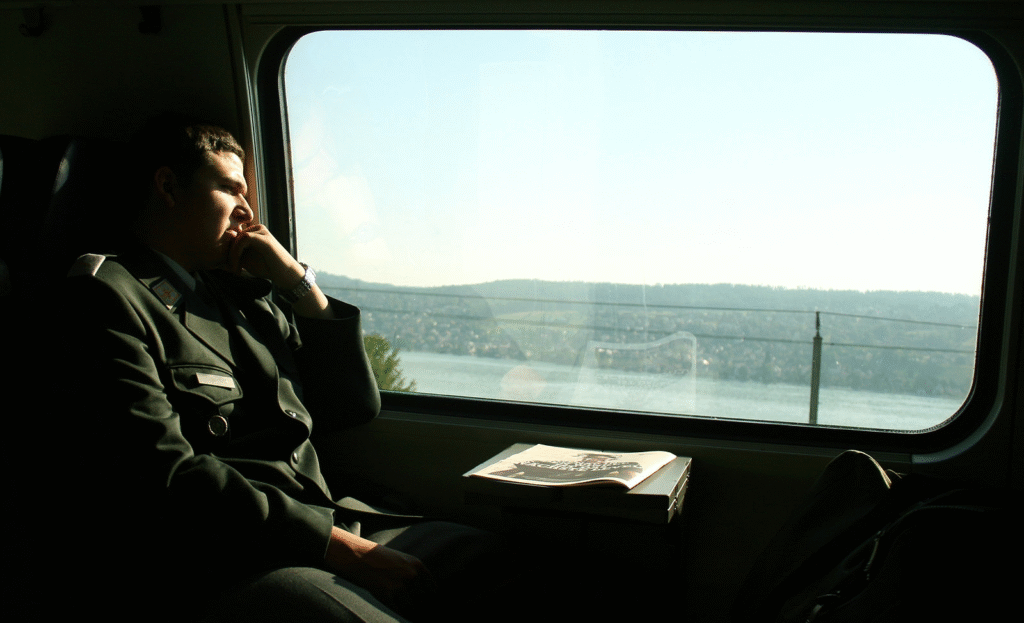
An announcement causes both of them to raise their heads and exchange a glance at one another.
“Wir entschuldigen uns für die Verspätung aufgrund technischer Probleme.
Nächster Halt auf Verlangen: Arbon Seemoosriet.“
(“We apologize for the delay due to technical problems.
Next stop upon request: Arbon Seemoosriet.”)
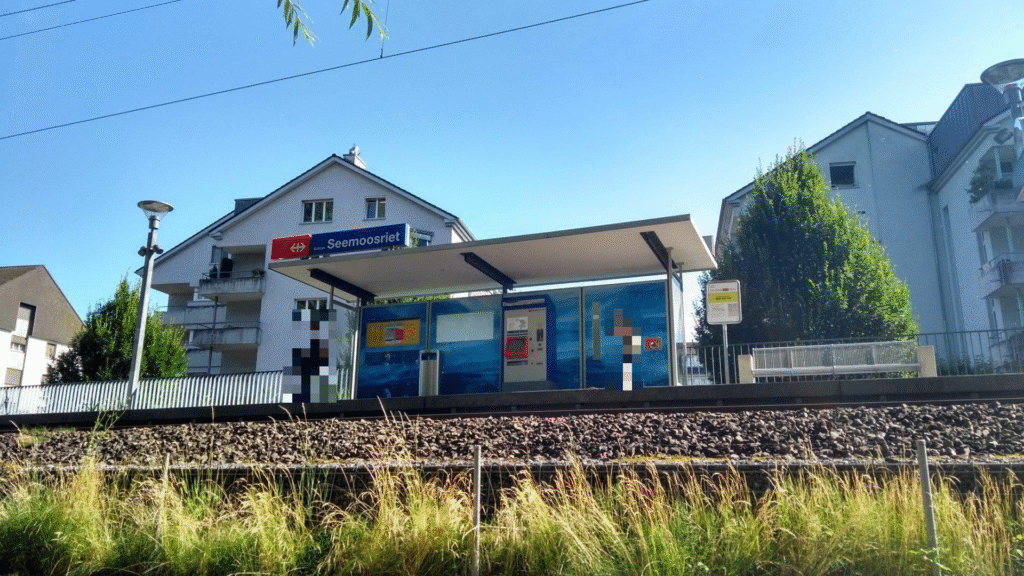
Lukas has travelled from Zürich Hauptbahnhof to Romanshorn, from Canton Zürich to Canton Thurgau.
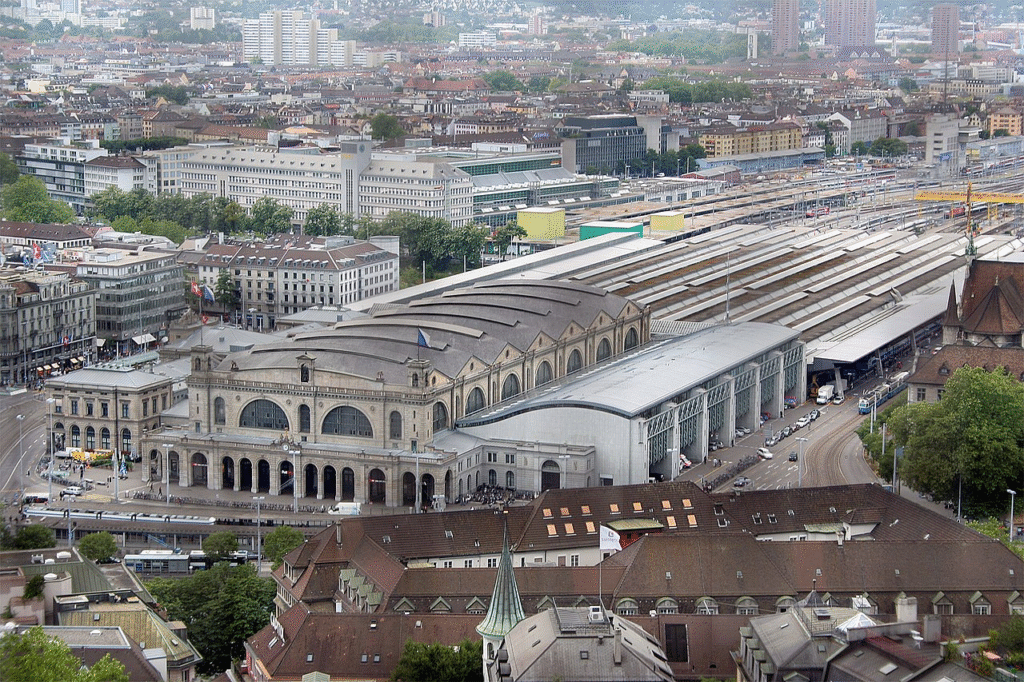
Above: Zürich Hauptbahnhof (Main Station)
Canton Zürich is a blank in his mind.

Above: Flag of Canton Zürich, Schweiz
There are only images of libraries and classrooms, his dorm desk and conversations in cafés and pubs close to campus.

But Thurgau, his home canton, resonates deeply within him.
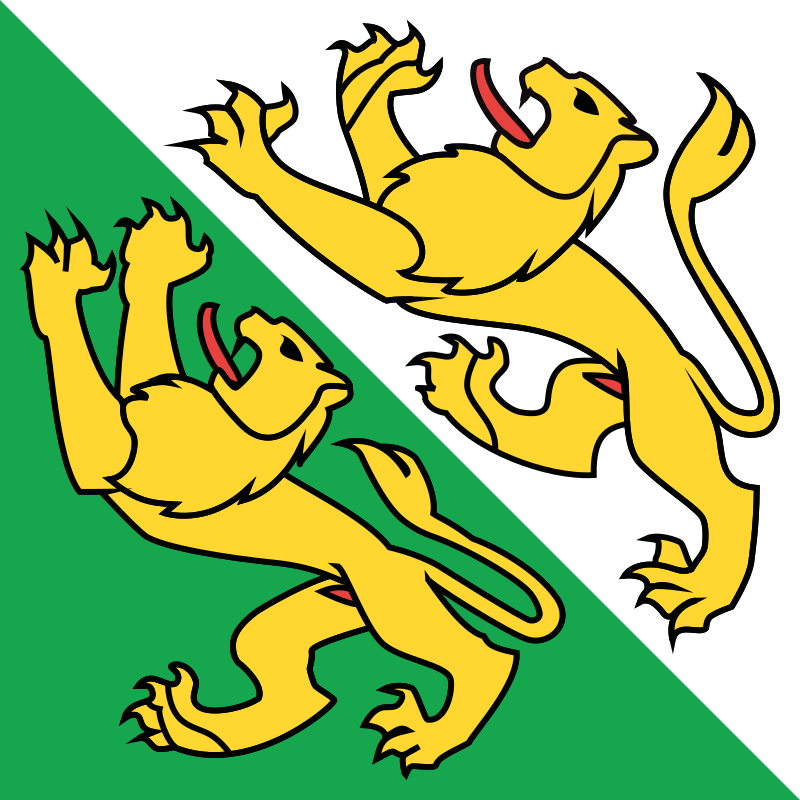
Above: Flag of Canton Thurgau, Schweiz
His home is west of Romanshorn in the wee village of Schönenbaumgarten, on a rise above the town of Landschlacht, 15 kilometres east of the city of Kreuzlingen.
He won’t visit until after his military service for this year is over.
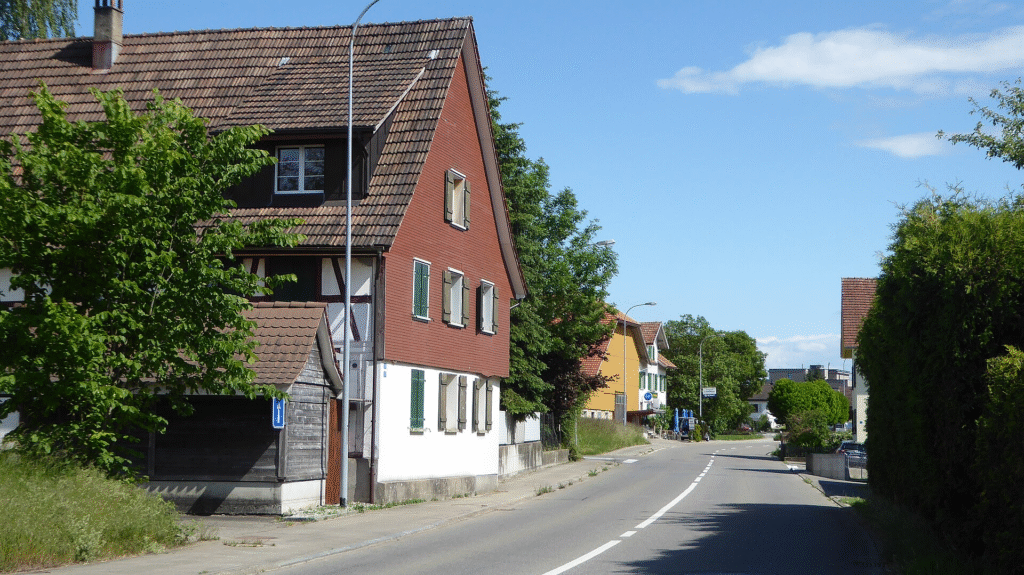
Above: Schönenbaumgarten, Canton Thurgau, Schweiz
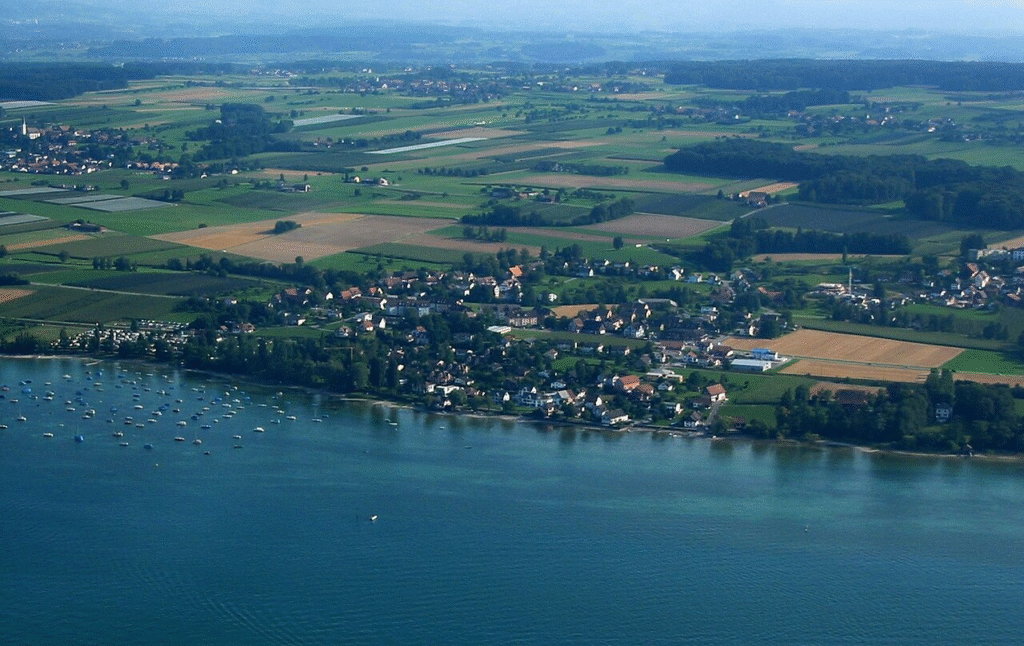
Above: Landschlacht, Canton Thurgau, Schweiz
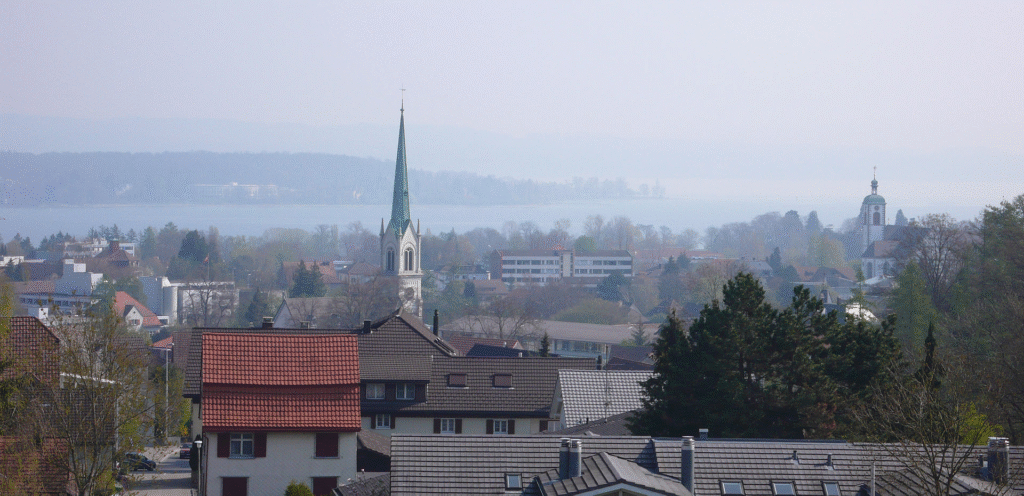
Above: Kreuzlingen, Canton Thurgau, Schweiz
“Nächster Halt auf Verlangen: Arbon“
(“Next stop upon request: Arbon“)

Above: Arbon, Canton Thurgau, Schweiz
Ah, Canton Thurgau!
Thurgau feels intimate, tranquil and rural, with a softness in its demeanor.
It has often described as the “garden of the German-speaking part of Switzerland” because of its fertile fields, apple orchards and vineyards.
There is a sense of warmth here, a pastoral calm that invokes a slower pace of life.
Its people are more reserved, yet there is a rooted, humble pride in their land.
Thurgau’s proximity to the German border means there is also an undercurrent of connection to Germany, which influences its cultural flavor — especially in the way people interact with each other.
Germany and Switzerland are (mostly) friendly neighbors, but neither neighbor desires to copy the other.
Thurgau is more of a soft hum, like the whisper of wind through orchard leaves.
The land feels gentle, the mood contemplative.
Walking through it, there is a sense of quiet reflection, as though the pace of life hasn’t changed much over the centuries.
Its charm lies in its serenity, offering solace to those seeking respite from the busier, more urbanized areas of Switzerland.
The landscape, dotted with small towns and villages, seems to invite stillness.
Boring for some, life-nurturing for others.
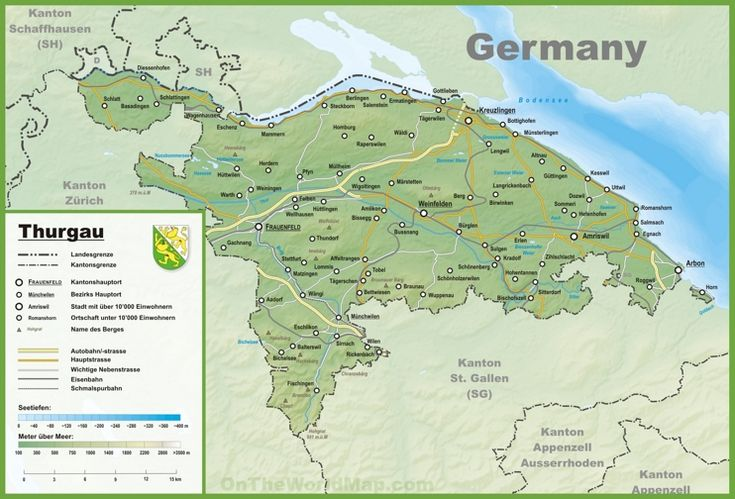
“Nächster Halt auf Verlangen: Steinach“
(“Next stop upon request: Steinach“)
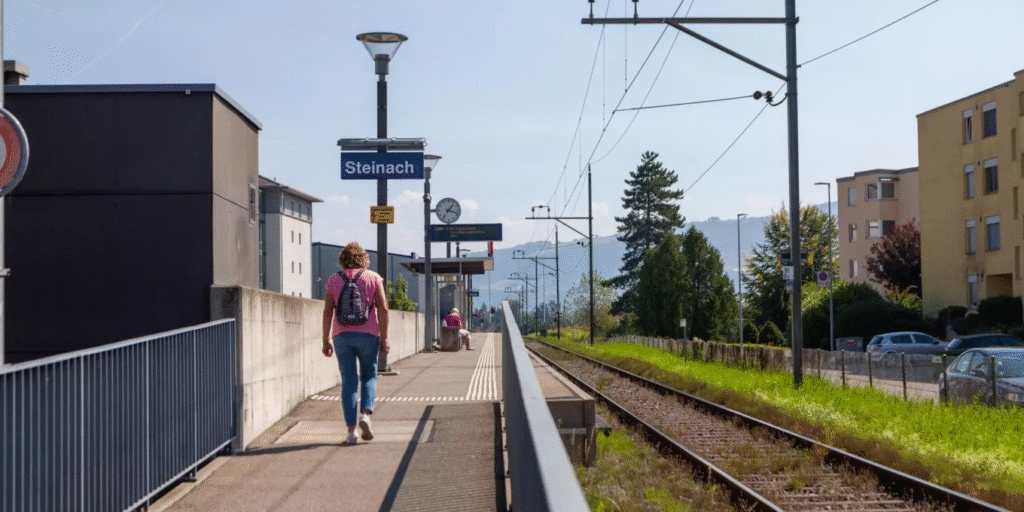
Steinach is located on predominantly flat terrain on Lake Constance.
The village center is near the mouth of the Steinach River.

South of the center lies the somewhat isolated district of Obersteinach.
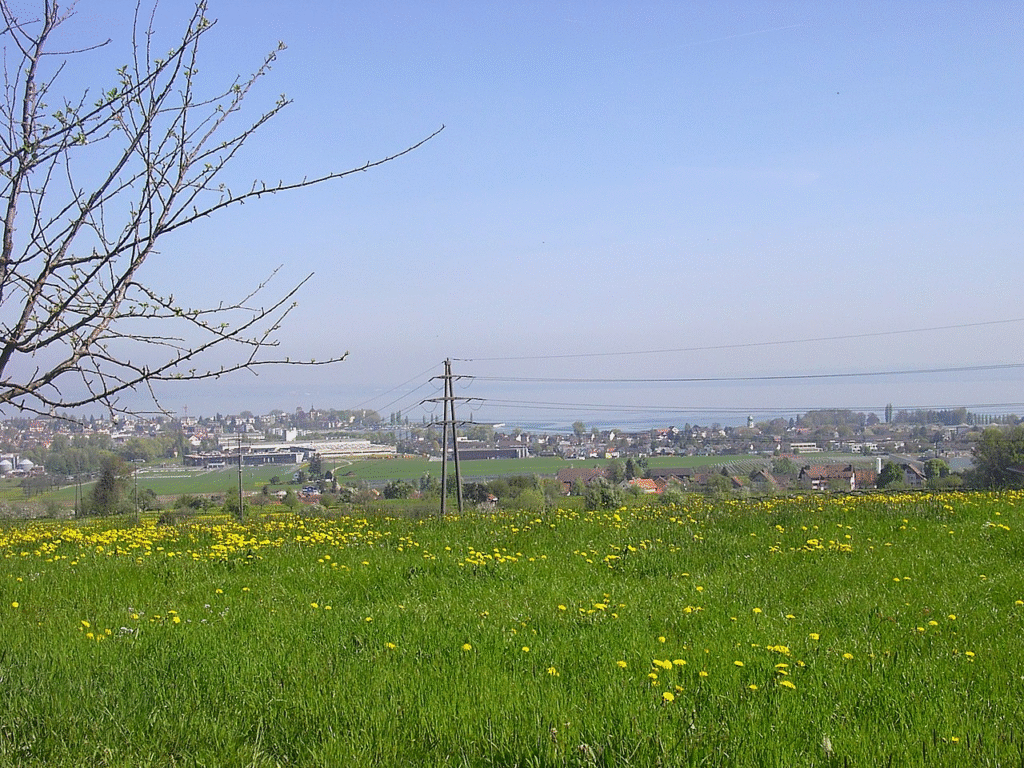
Above: In front Obersteinach, behind Steinach am Bodensee, Canton St. Gallen, Schweiz
Further south the terrain rises towards St. Gallen.
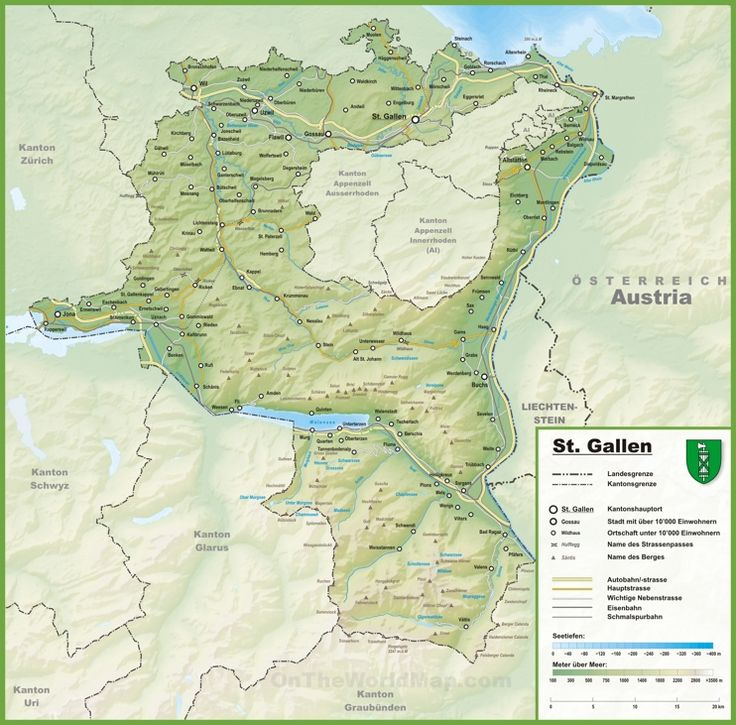
This leads to Steinerburg Castle, which stands near the highest point in the municipality (487 m above sea level).
The castle has fallen into ruin.
Three surrounding walls of the main building remain, but the east wall is missing.
The walls contain Gothic window frames.
Next to Steinerburg Castle, the terrain drops steeply to the deeply cut riverbed of the Steinach.

Above: Steinerburg
The train has crossed into Canton St. Gallen.
Canton St. Gallen is a loud, boisterous echo of history and ambition.
It carries a robust, multifaceted energy.
It is a place where the old and new intermingle with a palpable vibrancy.

Above: Flag of Canton St. Gallen
Historically, St. Gallen was known for its Abbey and its role in education.
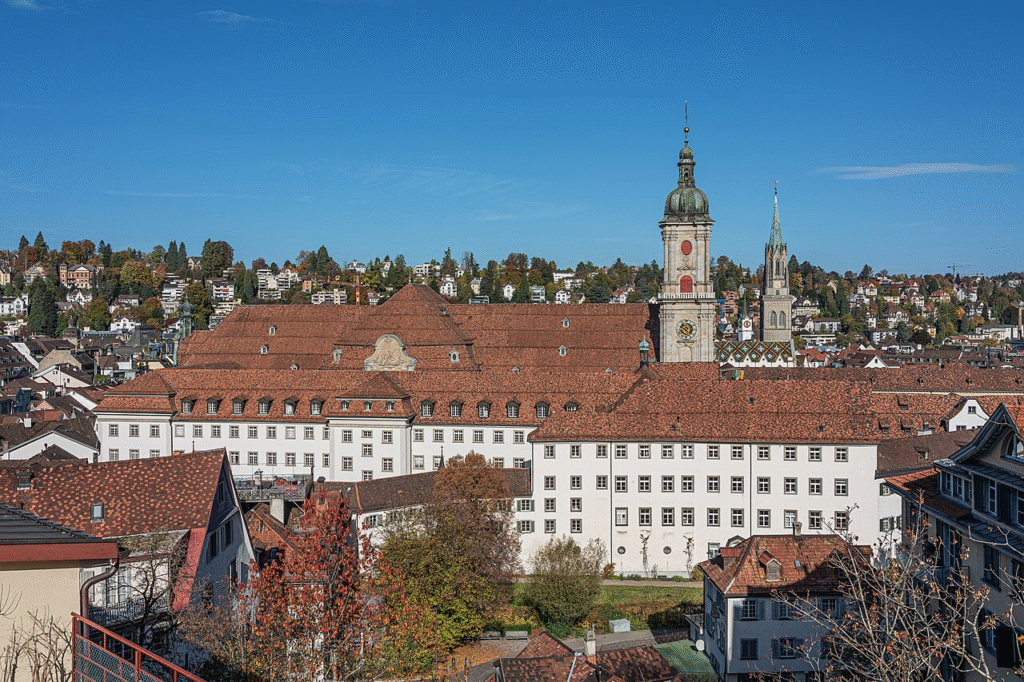
Above: Abbey of St. Gallen

Today the Canton is still home to a City (also named St. Gallen) that combines its monastic heritage with a modern, thriving cultural and economic scene.
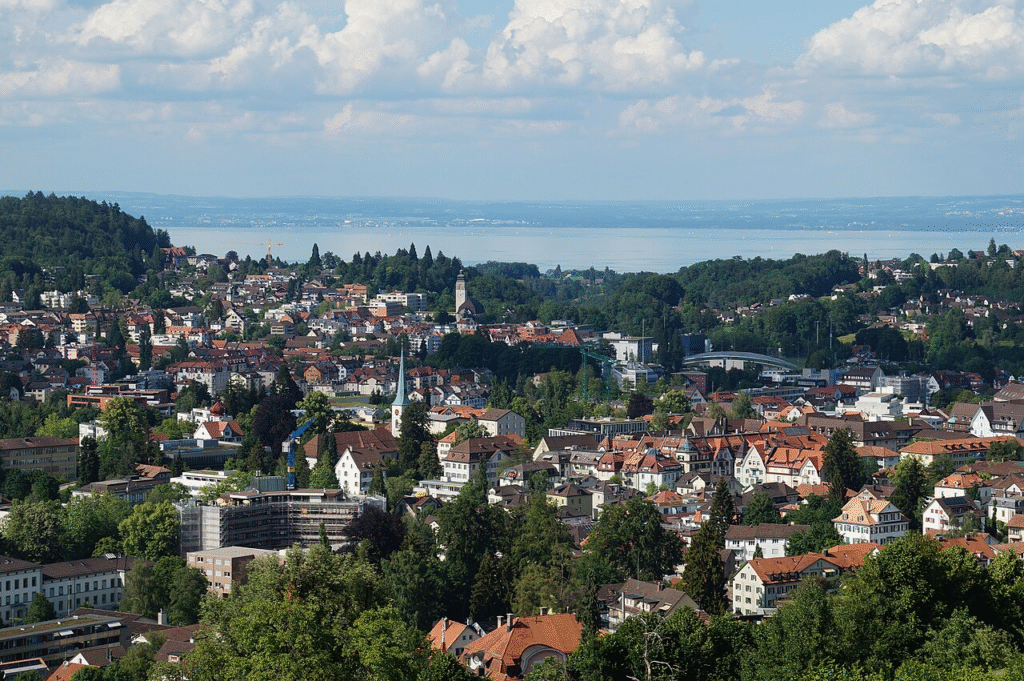
Above: St. Gallen, Canton St. Gallen, Schweiz
The land itself is a mix of dramatic mountains, alpine meadows and deep valleys, offering both isolation and connection to the rest of Switzerland.
The people here might be seen as more open, ambitious, and driven, with a deep sense of pride in their historical roots — yet still forward-looking in their aspirations.
The canton’s proximity to Lake Constance adds a cosmopolitan flavor, with international influences from the nearby German and Austrian borders.
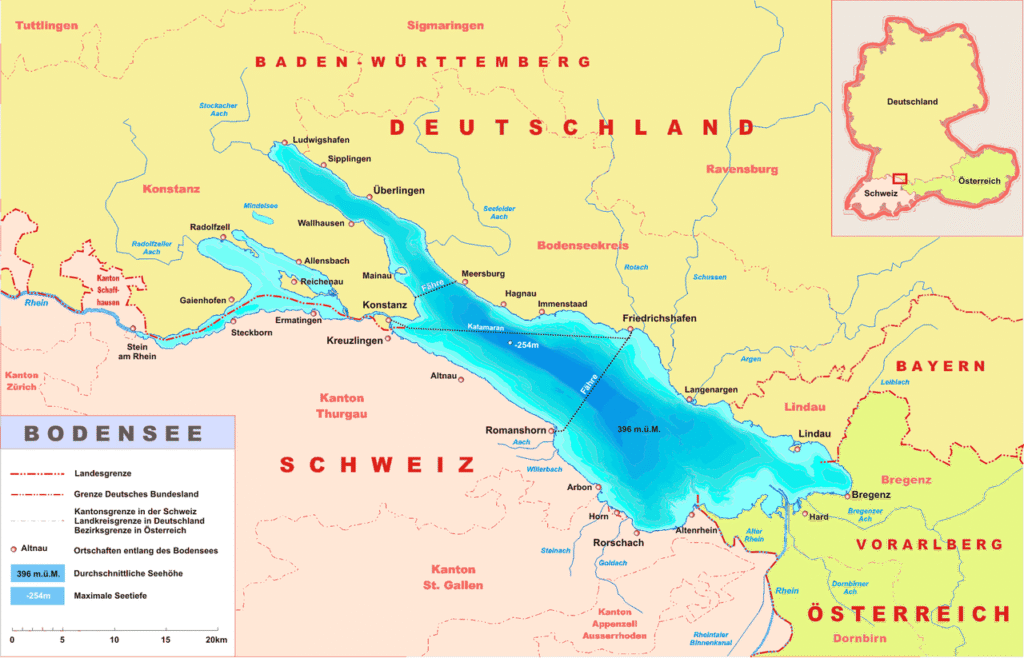
St. Gallen feels more dynamic than Thurgau, even at times bustling.
It has the energy of a place where history and progress are always at odds, trying to forge their own paths in an ever-changing world.
The mountains loom with a sense of awe, while the valley floors, where cities like St. Gallen itself lie, pulse with youthful vitality.
There is a vibrancy to the air that hints at ambition, creativity, and sometimes a certain tension — whether that’s historical or contemporary.
Canton St. Gallen seems to carry the weight of its past with both pride and a willingness to adapt, unlike Canton Thurgau, where tradition is more of a steady anchor.
Canton St. Gallen is diverse in character, at once historical, ambitious, and vibrant.
It carries a sense of both preservation and progress, with the grandeur of its mountains and the industrious nature of its people weaving together a sense of complexity and modernity.
While Thurgau whispers the language of tranquility, St. Gallen speaks in both the echoes of history and the rush of forward movement, each canton offering its own unique interpretation of Swiss identity.
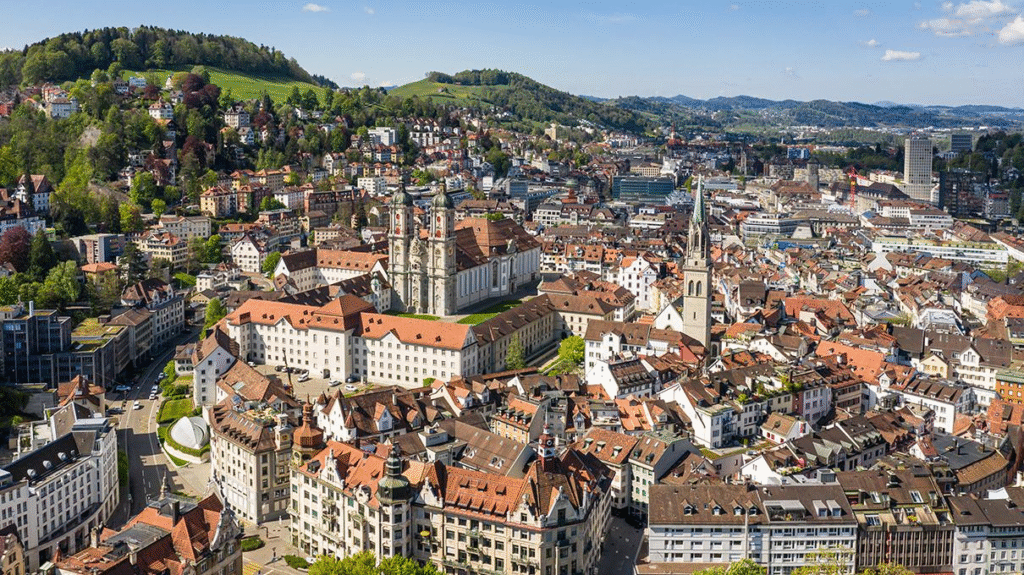
Above: St. Gallen
“Nächster Halt auf Verlangen: Horn“
(“Next stop upon request: Horn“)
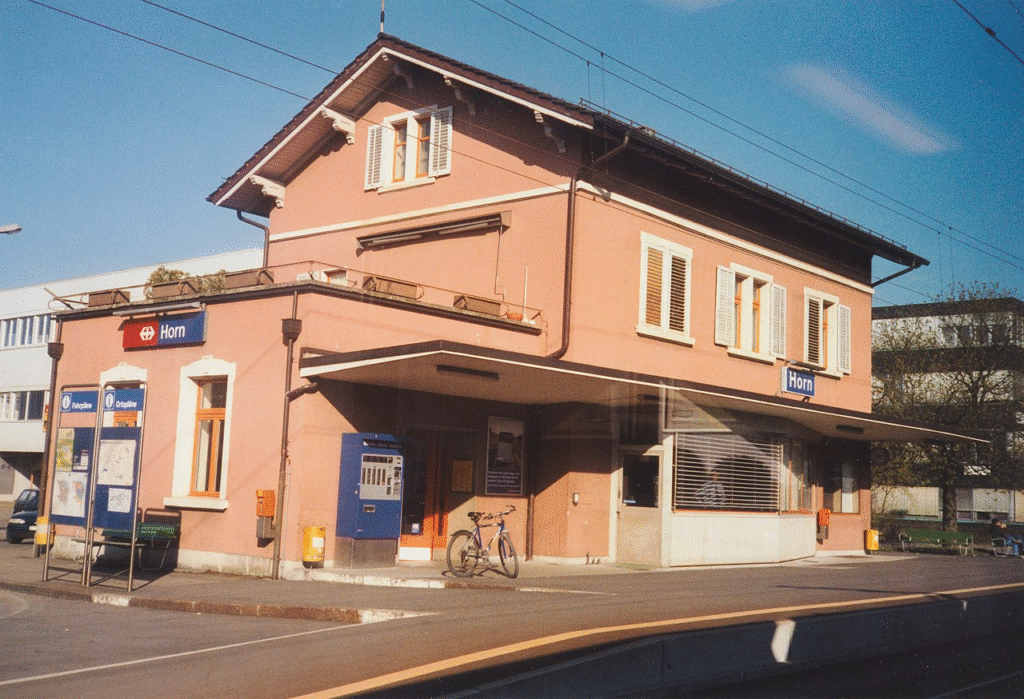
She readies herself to step off in Horn — that oddly placed piece of Thurgau surrounded by another world.
A cantonal exclave.
A kind of administrative orphan.
Perhaps that was fitting.
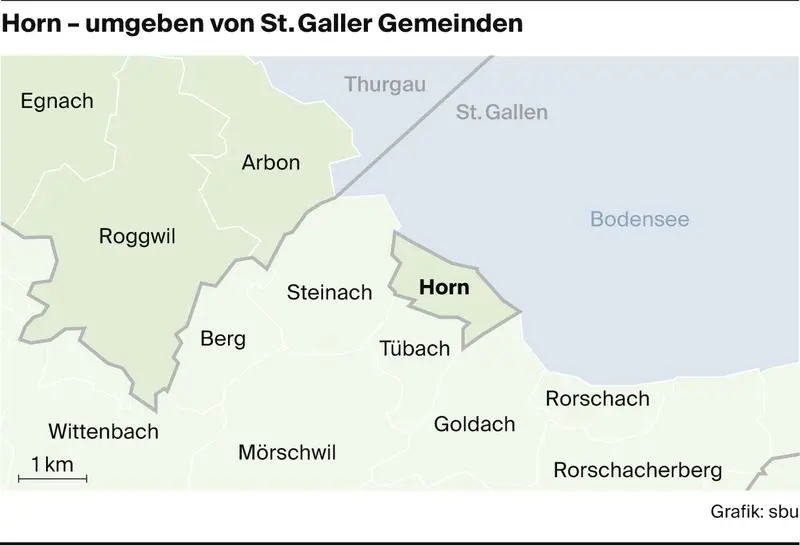
Above: Horn (Thurgau) surrounded by Canton St. Gallen
Switzerland is a rich tapestry of local identities and administrative complexities.
Its intricate geography includes several notable exclaves and enclaves, both at the national and cantonal levels.
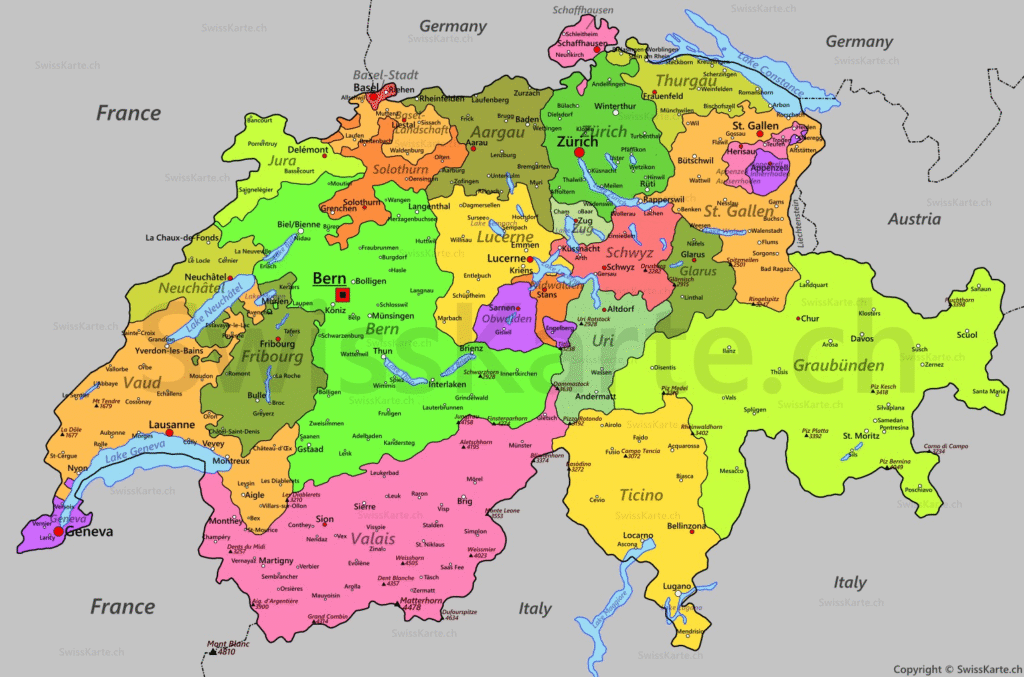
Büsingen am Hochrhein is a German town entirely surrounded by Swiss territory, specifically by the canton of Schaffhausen, with borders touching Zürich and Thurgau as well.

Although politically part of Germany, Büsingen is integrated into the Swiss customs area.
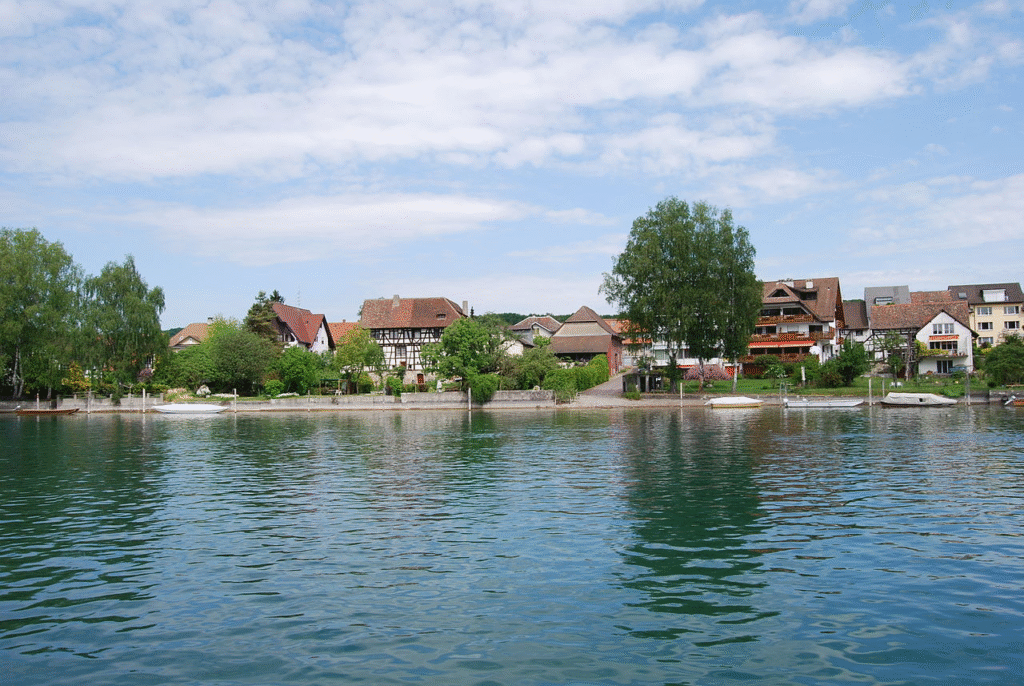
Above: Büsingen am Hochrhein, Baden-Württemberg, Deutschland (Germany)
The Swiss franc is commonly used there.

Campione d’Italia, an Italian exclave nestled within the Swiss canton of Ticino, it lies on the shores of Lake Lugano.
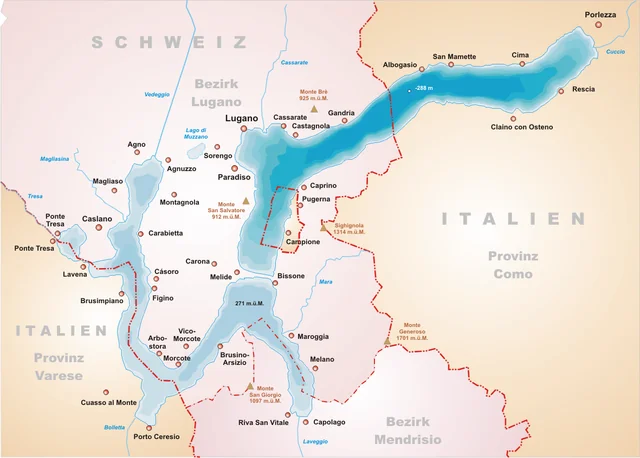
Above: Campione d’Italia, Italia (Italy)
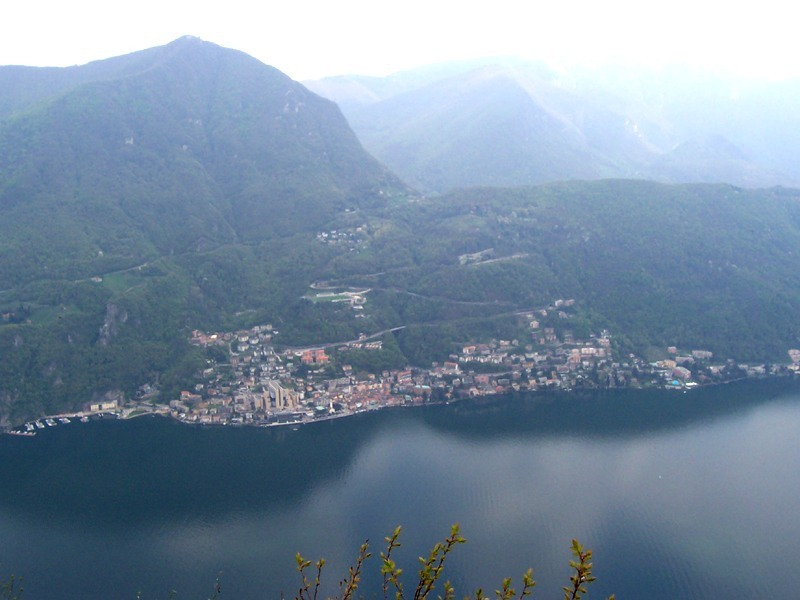
Above: Capione d’Italia, Como, Italia
While it uses the Euro and is part of the EU customs area, it maintains close economic and infrastructural ties with Switzerland.

Appenzell Innerrhoden and Appenzell Ausserrhoden,
these two half-cantons form an enclave entirely within the canton of St. Gallen.
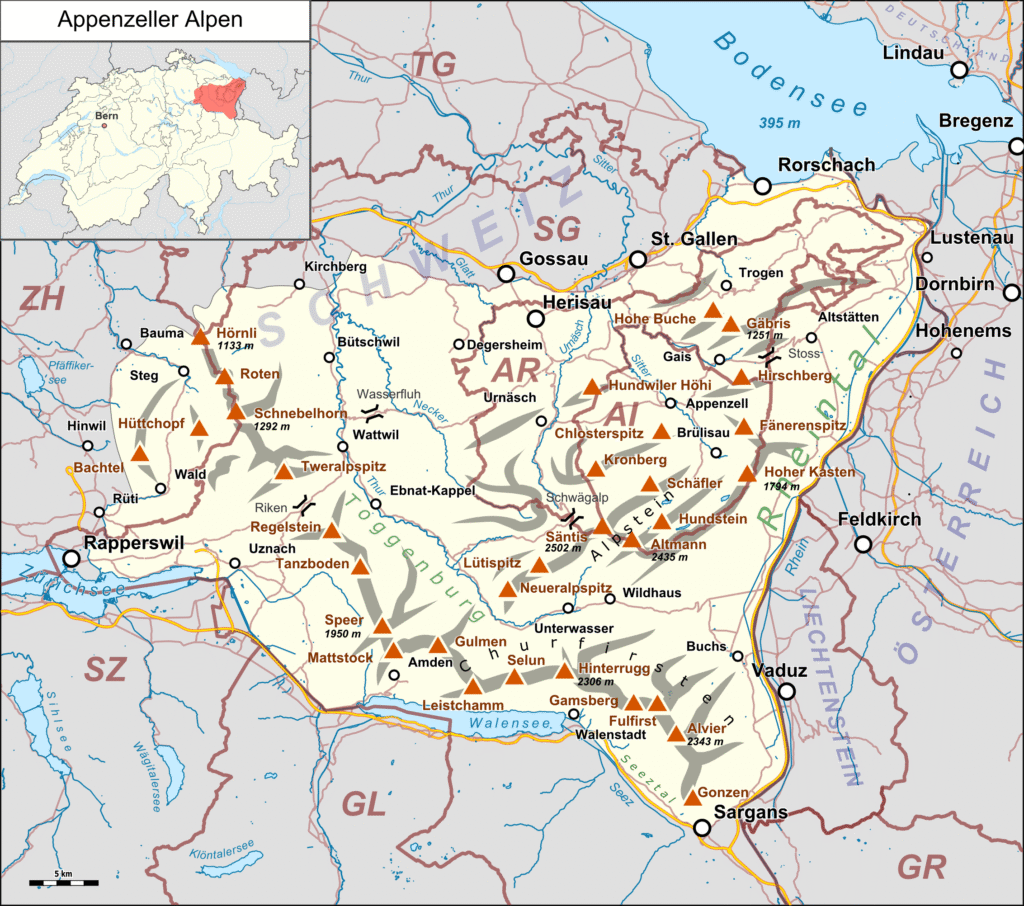
Above: Cantons Appenzell Innerrhoden (AI) / Appenzell Ausserrhoden (AR)
Historically one canton, they split in 1597 along religious lines.

Above: Flag of Appenzell (1403 – 1597)
While not an exclave in the traditional sense, the municipality of Engelberg is an exclave of the canton of Obwalden, surrounded by the cantons of Nidwalden, Uri, and Bern.

Above: Engelberg, Canton Obwalden, Schweiz
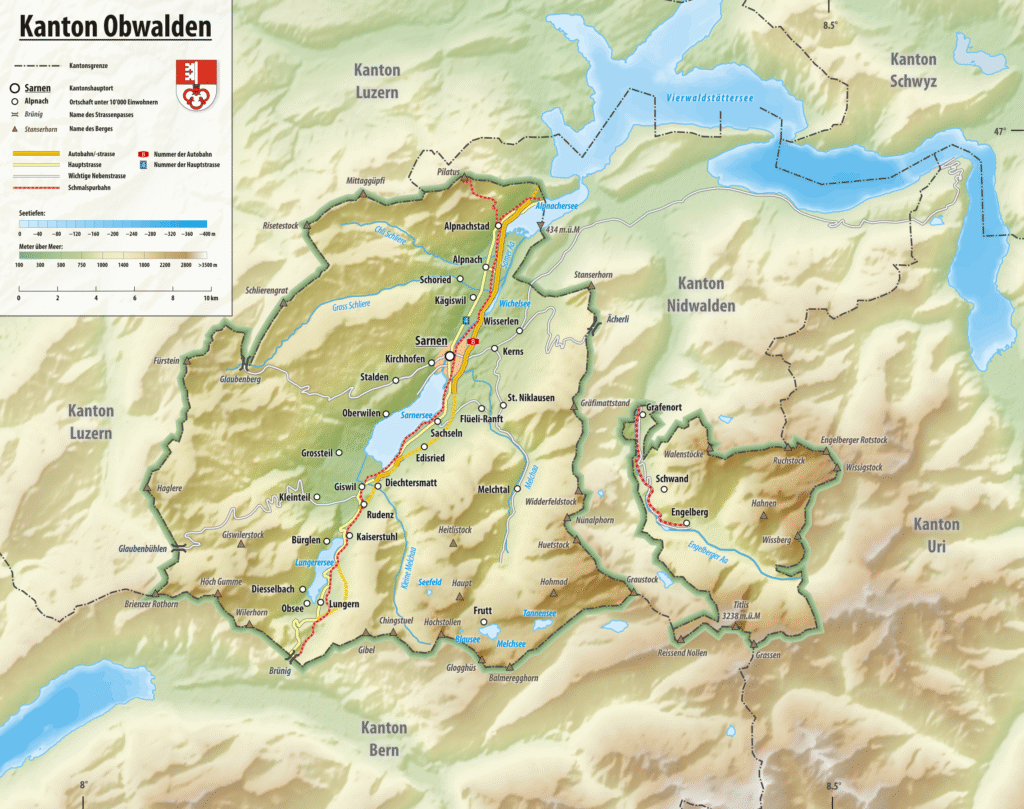
Beyond Egnach, eastward bound for Rorschach, the train leaves Canton Thurgau at Steinach and enters Canton St. Gallen where it will remain until Rorschach.
But between Steinach and Arbon lies Horn, a Thurgau municipality surrounded by the Canton of St. Gallen, making it a cantonal exclave.
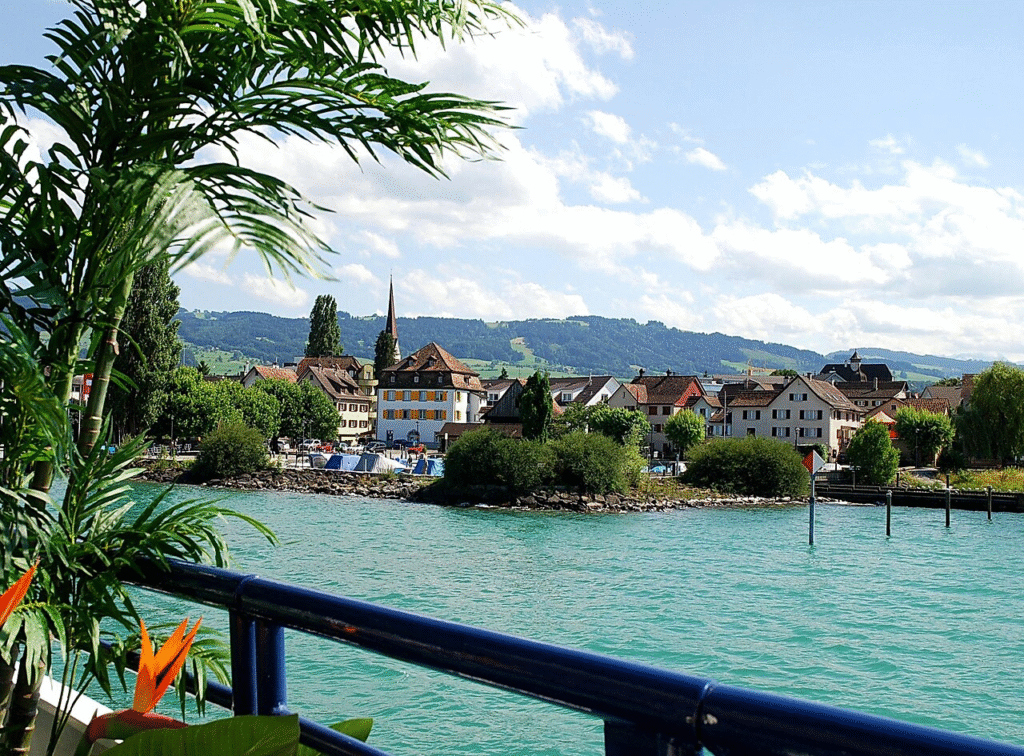
Above: Horn, Canton Thurgau, Schweiz
There are those who might suggest that Horn is a bit of a hybrid — a crossroads between the quiet, rooted character of Thurgau and the more driven, forward-thinking spirit of St. Gallen.
While the Thurgau character of peaceful reflection and tradition might remain dominant, it isn’t really purely Thurgau.
There are those who suggest that over time, Horn has developed a unique identity that incorporates elements from both sides:
A place where the calm of Thurgau’s landscape meets the ambition of St. Gallen’s broader horizon.
That perhaps people in Horn interact more cosmopolitan than a typical Thurgau town, but still retaining a more intimate, community-driven spirit than you would find in the heart of St. Gallen.
They say the pace is slower, but with an undercurrent of change, a quiet striving towards something new.
Horn might remain Thurgau in essence, but the surrounding St. Gallen influence has colored its interactions, outlook and its self-perception.
But train passengers cannot see the Lake between Steinach and Horn, but instead sees an urban sprawl of apartment blocks and industrial zone.
Only until the train crosses the invisible line that territorially divides Thurgauer Horn from St. Galler Rorschach can the Lake become visible again.

Above: Horn
The train arrives at Horn.
She stands up and smooths away the imaginary creases sitting may have left on her skirt.
She catches his eye, almost smiles, then looks away, a brief hesitation that he will replay a hundred times.

She has gone.
She has gone.
Gone, and still, she is here.

“Nächster Halt auf Verlangen: Rorschach Hafen“
(“Next stop upon request: Rorschach Harbor“)
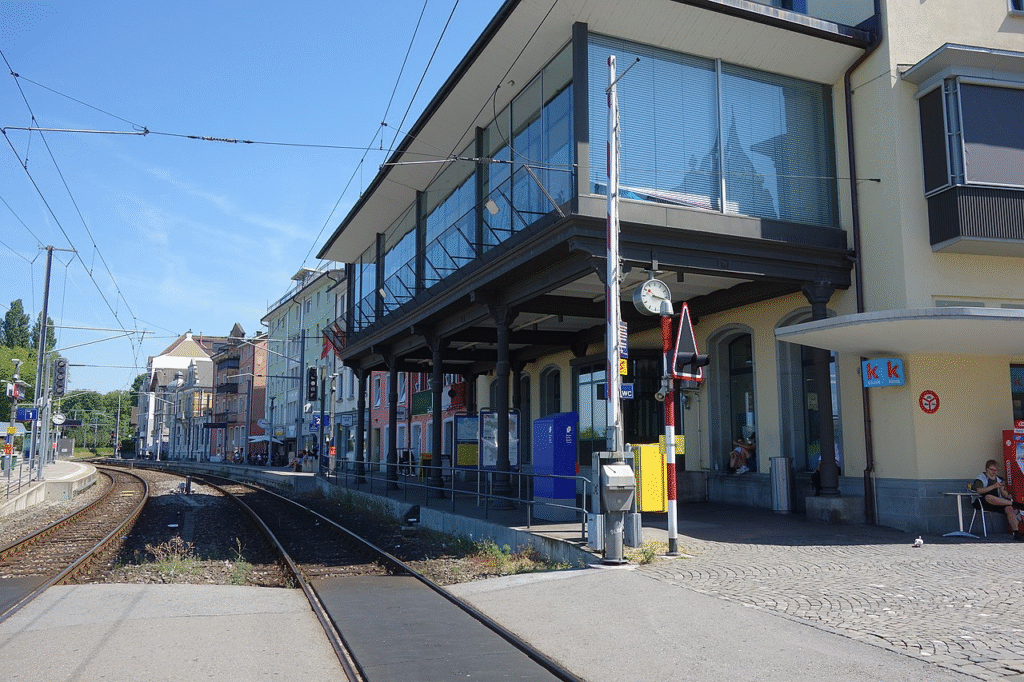
Above: Rorschach Hafen Bahnhof
As the train rattles on, Lukas’ mind churns with a quiet intensity, a web of tangled thoughts catching him in their grip.
The woman, with her quiet poise, is no longer in the seat beside him, her departure leaving an odd emptiness in the air.
It is as though she had been both too close and too distant all at once, a paradox that hangs in the space where she had sat.
And yet, despite this strange sense of loss, a certain relief blooms within him.
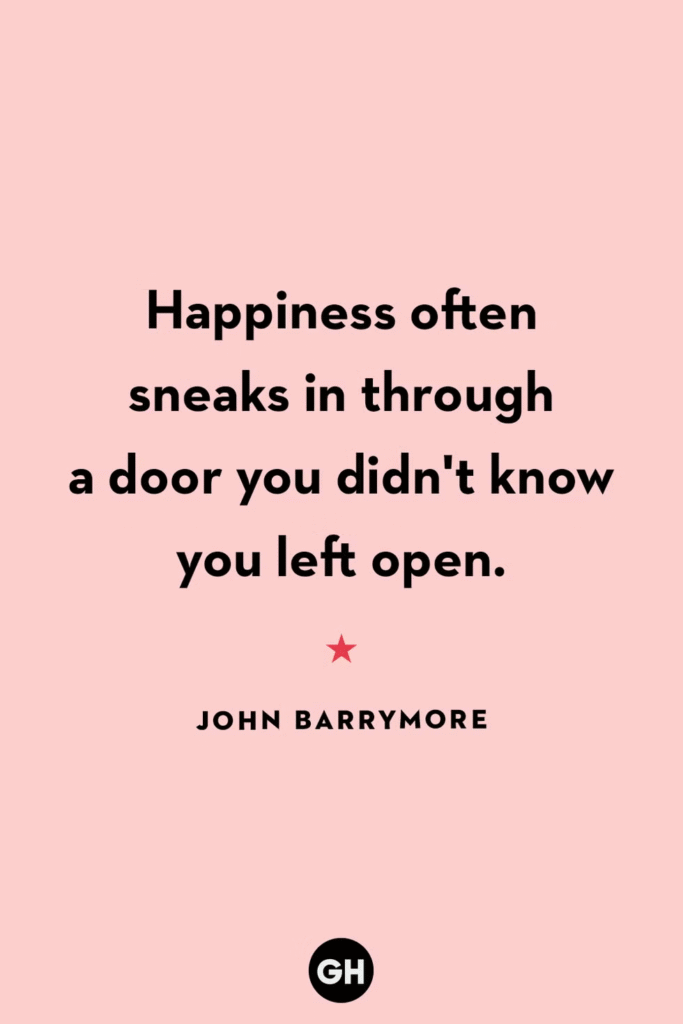
The rational part of him, the part honed by academic and military training, tries to reason with the mix of emotions that flood his chest.
Approaching a woman in public is no small matter.
The very dynamics of the interaction feels fraught with peril for the man, especially in this age where everything seems to be scrutinized through the lens of judgment — an ever-present gaze on the horizon of social norms and expectations.

“How often,” Lukas muses, “does the simple act of approaching someone become a tightrope walk over a pit of potential misunderstanding?
A misstep, and I might be branded a creep, an intruder.
A compliment turned sour in the wrong context, and suddenly I’m a predator, not a participant in the shared human experience.”
It is exhausting, this constant balancing act of intention versus perception.
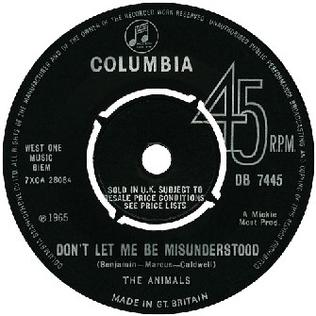
Baby, do you understand me now?
Sometimes, I feel a little mad
Well, don’t you know that
No one alive can always be an angel
When things go wrong, I seem to be bad
I’m just a soul whose intentions are good
Oh Lord, please, don’t let me be misunderstood
Baby, sometimes I’m so carefree
With a joy that’s hard to hide
And sometimes it seems that
All I have to do is worry
And then you’re bound to see my other side
I’m just a soul whose intentions are good
Oh Lord, please, don’t let me be misunderstood
If I seem edgy, I want you to know
That I never meant to take it out on you
Life has it’s problems and I get my share
And that’s one thing I never meant to do
‘Cause I love you
Oh, oh, oh, baby, don’t you know I’m human?
Have thoughts like any other one
Sometimes I find myself alone and regretting
Some foolish thing, some little simple thing I’ve done
I’m just a soul whose intentions are good
Oh Lord, please, don’t let me be misunderstood
Yes, I’m just a soul whose intentions are good
Oh Lord, please, don’t let me be misunderstood
In his academic reading, he had encountered the discussions of MGTOW — Men Going Their Own Way — a growing movement among men disillusioned with the complex dynamics of modern dating.
They reject traditional courtship in favor of solitude, self-sufficiency, a retreat into personal growth, free from the pressures of social expectations.
He can understand their disillusionment — how can one ever meet a genuine person in a sea of superficiality, where apps like Tinder and Bumble have reduced the intricate dance of dating to little more than swiping left or right based on an image and a few words?
It seems like a race to the bottom, where appearance and status eclipsed character and depth.
And yet, as he thinks about her — her quiet grace, the subtle way she shifted in her seat, how her presence filled the empty space between them — he can’t deny the chemical rush, the primal excitement that surges within him in the presence of a woman.
Is this the same feeling that men like those in MGTOW have rejected?
This tension between the instinctual attraction, the very visceral draw, and the desire for something deeper, more meaningful, is overwhelming.

“What am I, then?
A dog chasing cars?”
Lukas thinks with a quiet chuckle.
“What should a dog do if it ever catches one?
What would I have done if she had responded to me, if I had taken that leap?
Would it have been as fleeting as her departure now, or would it have been something worth pursuing?
I am torn, pulled between relief that she is gone — back to the safe distance of analysis, back to detachment — and this ache, this longing for something that may have been lost.“
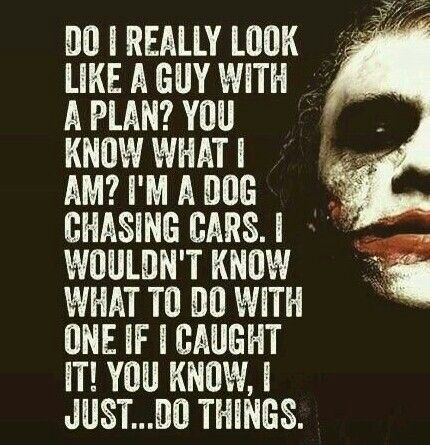
Above: Joker (Heath Ledger), The Dark Knight (2008)
He wonders, with a certain bitterness, whether he is simply an observer, doomed to forever stand at the sidelines, watching life play out but never truly participating in it.
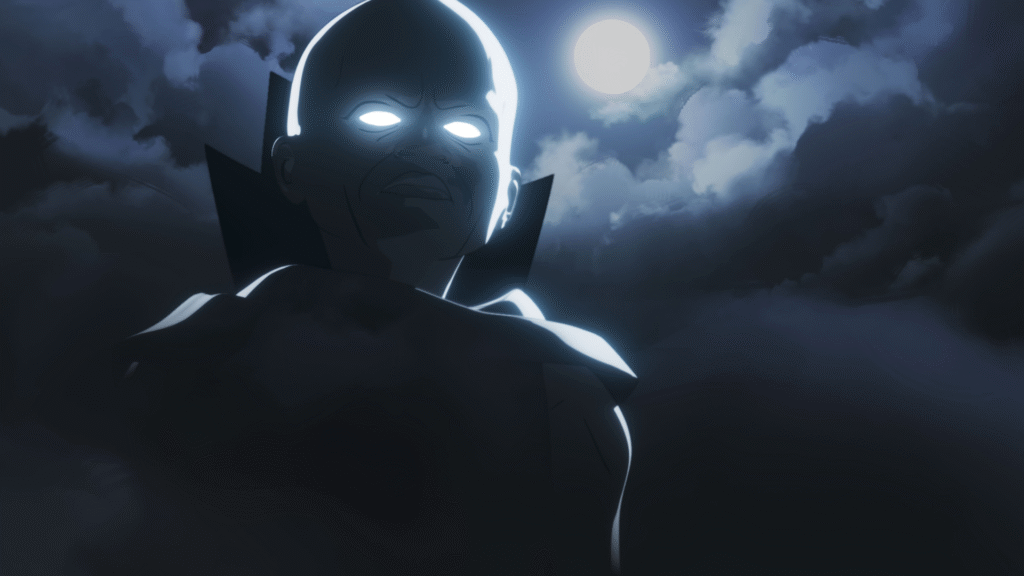
Above: The Watcher (Jeffrey Wright), Marvel’s What If?
His mind fills with conflicting images:
The yearning to act on impulse, to reach out and bridge the distance between himself, and the conditioning of years of learning, of intellectualizing every move, every glance.
There are theories, after all, to explain every action, every feeling.
Theories about attraction, social exchange, the gaze.
But do these theories truly explain the ache he feels now?
Or is it simply something that can’t be rationalized — an experience to be lived, not understood?

For a moment, it isn’t about theory.
It is just a breath caught in his throat.
A hollow pressure behind the eyes.
A sudden urge to cry — not for her, not even for himself, but for something lost.
Something he can’t name.

I’ll never let you see
The way my broken heart is hurting me
I’ve got my pride and I know how to hide
All my sorrow and pain
I’ll do my crying in the rain
If I wait for cloudy skies
You won’t know the rain from the tears in my eyes
You’ll never know that I still love you so
Though the heartaches remain
I’ll do my crying in the rain
Raindrop falling from heaven
Could never wash away my misery
But since we’re not together
I look for stormy weather
To hide these tears I hope you’ll never see
Someday when my crying’s done
I’m gonna wear a smile and walk in the sun
I may be a fool but till then darling
You’ll never see me complain
I’ll do my crying in the rain
I’ll do my crying in the rain
I’ll do my crying in the rain
Lukas shifts uneasily in his seat, the conflict deepening.
Is he running from the risk of real connection in favor of the safety of his thoughts?
The woman’s departure reminds him of something simple and visceral:
That life cannot be reduced to concepts or theories, that some moments are meant to be felt, not analyzed.
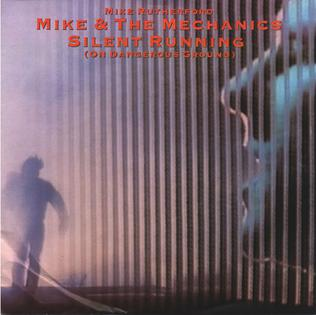
Take the children and yourself
And hide out in the cellar
By now the fighting will be close at hand
Don’t believe the church and state
And everything they tell you
Believe in me, I’m with the high command
Can you hear me, can you hear me running?
Can you hear me running, can you hear me calling you?
Can you hear me, can you hear me running?
Can you hear me running, can you hear me calling you?
There’s a gun and ammunition
Just inside the doorway
Use it only in emergency
Better you should pray to God
The Father and the Spirit
Will guide you and protect you from up here
Can you hear me, can you hear me running?
Can you hear me running, can you hear me calling you?
Can you hear me, can you hear me running?
Can you hear me running, can you hear me calling you?
Swear allegiance to the flag
Whatever flag they offer
Never hint at what you really feel
Teach the children quietly
For some day sons and daughters
Will rise up and fight while we stood still
Can you hear me, can you hear me running?
Can you hear me running, can you hear me calling you?
Can you hear me, can you hear me running?
Can you hear me running, can you hear me calling you?
Can you hear me, can you hear me running?
Can you hear me running, can you hear me calling you?
Can you hear me running
(can you hear me calling you?)
hear me calling you?
(Can you hear me running) hear me running babe?
(Can you hear me running) hear me running?
Calling you, calling you
He glances out the window, the landscape blurring by, the familiar backdrop of German rolling hills across the lake and the glimmer of the water below.
The train carries him on toward his destination, but he remains suspended in that one moment, caught between the intellectualized world he was building and the raw, messy unpredictability of human connection.
And so, as the ache of what might have been tugged at him, Lukas can’t help but wonder:
Would he ever stop analyzing long enough to truly act?
Or would his studies, his uniform, his carefully cultivated distance, always keep him from reaching out and grabbing life by the horns?

As the train hurtles onward, as life speeds past, Lukas sits with the weight of his thoughts, acutely aware of his own position — not just on the train, but in the world at large.
He feels like an exclave, a small patch of land within a vast territory, surrounded by the world’s hunger, its endless desire for connection, for meaning, for something beyond itself.
People around him move through life with a certain ease, a fluidity he envies.
They speak to each other, laughed, exchanged glances, their lives unfolding in the shared space of existence.
Yet Lukas feels disconnected from that shared rhythm, as though he is enclosed in a bubble — an exclave surrounded by the hungry masses, but never fully part of them.
They reach for each other, pulled by the gravity of instinct, need, and fleeting moments of joy, while he remains distant, observing from a quiet remove.
It is as if he exists on the periphery, not quite in their world, yet not entirely apart from it.
A man who knows too much and feels too little, a student of life rather than a participant.
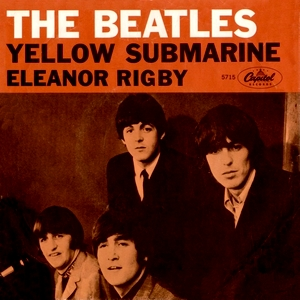
Ah, look at all the lonely people
Ah, look at all the lonely people
Eleanor Rigby picks up the rice
In the church where a wedding has been
Lives in a dream
Waits at the window, wearing the face
That she keeps in a jar by the door
Who is it for?
All the lonely people
Where do they all come from?
All the lonely people
Where do they all belong?
Father McKenzie writing the words
Of a sermon that no one will hear
No one comes near
Look at him working, darning his socks
In the night when there’s nobody there
What does he care?
All the lonely people
Where do they all come from?
All the lonely people
Where do they all belong?
Ah, look at all the lonely people
Ah, look at all the lonely people
Eleanor Rigby died in the church
And was buried along with her name
Nobody came
Father McKenzie wiping the dirt
From his hands as he walks from the grave
No one was saved
All the lonely people
Where do they all come from?
All the lonely people
Where do they all belong?

Above: Eleanor Rigby Statue, Stanley Street, Liverpool, England
His mind wanders back again to the woman who had occupied the seat beside him.
She had slipped into his life like a fragment of something larger, a figure out of reach, her presence both inviting and inaccessible.
The brief interaction — if one could even call it that — has left him with the sense that he is surrounded by life, but he doesn’t know how to join in.
His existence is an intellectual exclave, walled off by the very things that meant to bring him closer to the world:
His studies, his theories, his observations.
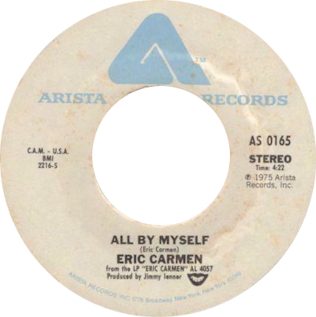
When I was young
I never needed anyone
And making love was just for fun
Those days are gone
Livin’ alone
I think of all the friends I’ve known
But when I dial the telephone
Nobody’s home
All by myself
Don’t wanna be
All by myself
Anymore
Hard to be sure
Sometimes, I feel so insecure
And love so distant and obscure
Remains the cure
All by myself
Don’t wanna be
All by myself
Anymore
All by myself
Don’t wanna live
All by myself
Anymore
When I was young
I never needed anyone
And making love was just for fun
Those days are gone
All by myself
Don’t wanna be
All by myself
Anymore
All by myself
Don’t wanna live
Oh, oh, no
Don’t wanna live by myself, by myself anymore
By myself anymore
Oh, oh, oh
All by myself
Don’t wanna live
I never, never, never
Needed anyone
He thinks about the people around him, society at large, always in search of something.
Connection.
Recognition.
Affection.
But Lukas has never seemed to have found his place within this hunger.
He isn’t untouched by the yearning, not immune to the desire for belonging and understanding, but he is distanced from it —separated by an invisible border that he can’t cross.
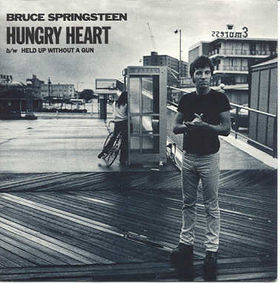
Got a wife and kids in Baltimore, Jack
I went out for a ride and I never went back
Like a river that don’t know where it’s flowing
I took a wrong turn and I just kept going
Everybody’s got a hungry heart
Everybody’s got a hungry heart
Lay down your money and you play your part
Everybody’s got a hungry heart
Oh
I met her in a Kingstown bar
We fell in love, I knew it had to end
We took what we had and we ripped it apart
Now here I am down in Kingstown again
Everybody’s got a hungry heart
Everybody’s got a hungry heart
Lay down your money and you play your part
Everybody’s got a hungry heart
La-la-la-la-la-la, oh yeah
La-la-la-la-la-la
Everybody needs a place to rest
Everybody wants to have a home
Don’t make no difference what nobody says
Ain’t nobody likes to be alone
Everybody’s got a hungry heart
Everybody’s got a hungry heart
Lay down your money and you play your part
Everybody’s got a hh-hungry heart
Oh yeah
(Everybody’s got a hungry heart)
(Lay down your money and you play your part)
Oh yeah
(Everybody’s got a hungry heart)
La-la-la-la-la-la
Ooh yeah
La-la-la-la-la-la
He sees people – mothers, fathers, lovers, strangers — getting on and off the train, in and out of his awareness – and yet he can’t touch them.
It is as if there is a silent contract, a social pact, that allows others to reach that line with their smiles, their words, their glances.
But for Lukas, the line remains fixed.
No matter how hard he tries to immerse himself in the crowd, he has felt like an outsider, watching but never truly participating.
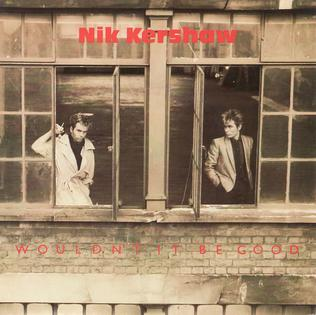
I got it bad
You don’t know how bad I got it
You got it easy
You don’t know when you’ve got it good
It’s getting harder
Just keeping life and soul together
I’m sick of fighting
Even though I know I should
The cold is biting
Through each and every nerve and fiber
My broken spirit is frozen to the core
I don’t wanna be here no more
Wouldn’t it be good to be in your shoes
Even if it was for just one day?
Wouldn’t it be good if we could wish ourselves away?
Wouldn’t it be good to be on your side?
The grass is always greener over there
Wouldn’t it be good if we could live without a care?
You must be joking
You don’t know a thing about it
You’ve got no problem
I’d stay right there if I were you
I got it harder
You couldn’t dream how hard I got it
Stay out of my shoes
If you know what’s good for you
The heat is stifling
Burning me up from the inside
The sweat is coming through each and every pore
I don’t wanna be here no more
I don’t wanna be here no more
I don’t wanna be here no more
Wouldn’t it be good to be in your shoes
Even if it was for just one day?
Wouldn’t it be good if we could wish ourselves away?
Ooh-ooh-ooh
Wouldn’t it be good to be on your side?
The grass is always greener over there
Wouldn’t it be good if we could live without a care?
I got it bad
You don’t know how bad I got it
You got it easy
You don’t know when you’ve got it good
It’s getting harder
Just keeping life and soul together
I’m sick of fighting
Even though I know I should
I don’t want to be here no more
I don’t want to be here no more
He thinks of the woman again.
Her departure, so quiet and unceremonious, has left him with a strange, hollow sense of being.
Was she a lost opportunity?
Was there the moment where he should have stepped across the line, let his impulse push him into a world he wasn’t ready for?
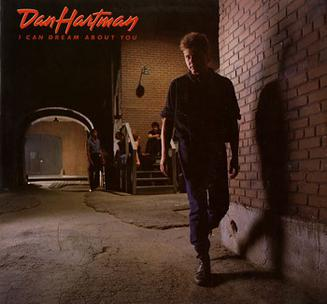
No more timing
Each tear that falls from my eyes
I`m not hiding
The remedy to cure this old heart of mine
I can dream about you
If I can’t hold you tonight
I can dream about you
You know how to hold me just right
I can dream about you
If I can’t hold you tonight
I can dream about you
You know how to hold me just right
Moving sidewalks
I don’t see under my feet
Climbing up from
Down here below where the street sees me lonely for you, oh
I can dream about you
If I can’t hold you tonight
I can dream about you
You know how to hold me just right
(I can dream about you) I’m gonna press my lips against you
And hold you to me
(I can dream about you) You know you got me spellbound
What else can it be?
Moving sidewalks
I don’t see under my feet
Climbing up from the pain in my heart
‘Cause it’s you that I need
I can dream
Whoa-oh, oh, oh
I can dream
Yes, I can dream
Whoa-oh, oh, oh
I don’t understand it
Can’t keep my mind off loving you (Not even for a minute)
Ooh, now baby
I’m caught up in the magic I see in you
There’s one thing to do
(I can dream about you) I’m gonna press my lips against you
And hold you to me
(I can dream about you) You know you got me spellbound
What else can it be?
Moving sidewalks
I don’t see under my feet
Climbing up from the pain in my heart
‘Cause it’s you that I need
I can dream
Whoa-oh, oh, oh
I can dream
Yes, I can dream
Whoa-oh, oh, oh
I don’t understand it
Can’t keep my mind off loving you (Not even for a minute)
Ooh, now baby
I’m caught up in the magic I see in you
There’s one thing to do
I can dream about you
If I can’t hold you tonight
I can dream about you
You know how to hold me just right
Whoa-oh, oh-oh, I can dream about you
If I can’t hold you tonight
Ooh, I can dream about you
Oh, I can dream, I can dream (Whoa-oh, oh-oh)
I can dream about you
Oh, I can dream about you
Whoa-oh, whoa-oh, I can dream about you
Oh-oh, you know how to hold me just right
He wondered if, in that moment, he could have shed the skin of the observer, the student, the soldier — could he have just been a man, acting from the heart and not the head?
But the question nags him:
Is this what he wants?
Is the hunger for connection, for human touch, truly something he is willing to pursue, or is it just another theory to analyze, another behavioral pattern to dissect?
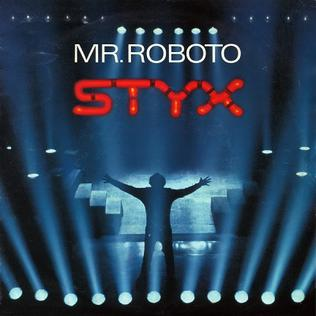
どうもありがと Mr. Roboto (Domo arigato)(Thank you very much)
どうもありがと Mr. Roboto (Domo arigato)(Thank you very much)
また会う日まで (mataaumide)(until we meet again)
どうもありがと Mr. Roboto (Domo arigato)(Thank you very much)
秘密を知りたい (himitsu o shiritai)(I want to know your secret)
You’re wondering who I am (secret, secret, I’ve got a secret)
Machine or mannequin? (Secret, secret, I’ve got a secret)
With parts made in Japan (secret, secret, I’ve got a secret)
I am the modern man
I’ve got a secret, I’ve been hiding under my skin
My heart is human, my blood is boiling, my brain IBM
So if you see me acting strangely, don’t be surprised
I’m just a man who needed someone and somewhere to hide to keep me alive
Just keep me alive, somewhere to hide, to keep me alive
I’m not a robot without emotions, I’m not what you see
I’ve come to help you with your problems so we can be free
I’m not a hero, I’m not the savior, forget what you know
I’m just a man whose circumstances went beyond his control
Beyond my control, we all need control
I need control, we all need control
I am the modern man (secret, secret, I’ve got a secret)
Who hides behind a mask (secret, secret, I’ve got a secret)
So no one else can see (secret, secret, I’ve got a secret)
My true identity
Mr. Roboto
(どうも)(Domo)(Thank you)
どうも (どうも) (Domo arigato)(Thank you very much)
どうもありがと Mr. Roboto (Domo arigato)
どうもありがと Mr. Roboto (Domo arigato)
どうもありがと Mr. Roboto (Domo arigato)
どうもありがと Mr. Roboto (Domo arigato)
Thank you very much, Mr. Roboto
For doing the jobs that nobody wants to
And thank you very much, Mr. Roboto
For helping me escape, when I needed to
Thank you, thank you, thank you
I want to thank you
Please, thank you, oh-oh-oh, yeah
The problem’s plain to see
Too much technology
Machines to save our lives
Machines dehumanize
The time has come at last (secret, secret, I’ve got a secret)
To throw away this mask (secret, secret, I’ve got a secret)
Now everyone can see (secret, secret, I’ve got a secret)
My true identity
I’m Kilroy, Kilroy, Kilroy, Kilroy
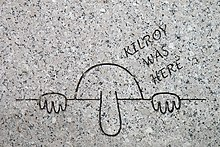
Perhaps this is the curse of the modern man — too connected to information, too isolated by it.
Lukas stands between the intellectualized world and the visceral, messy world of human connection, caught in the tension of knowing how to think about things but not knowing how to feel them.
It isn’t that he is disinterested in connection.
No.
The ache in his chest tells him that much.
He is simply too aware of the mechanics, too entrenched in his own mind to participate as others do, as they seem to do effortlessly.
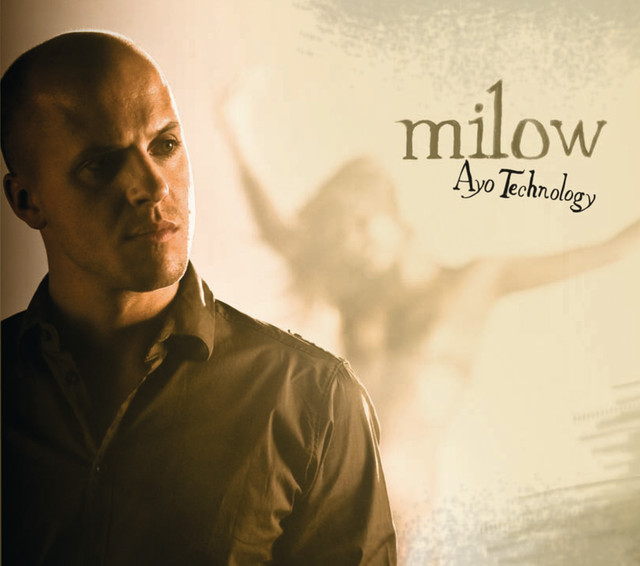
She work it, girl, she work the pole
She break it down, she take it low
She’s fine as hell, she’s about the dough
Doing her thing right on the floor
Her money money, she makin’
Look at the way she shakin’
Make you want to touch her, wanna taste her
Have you lustin’ for her, goin’ crazy, face it
She’s so much more than you’re used to
Knows just how to move to seduce you
She gon’ do the right thing and touch the right spot
Dance in your lap ’til you’re ready to pop
She’s always ready, when you want it, she wants it
Like a nympho, the info
Show you where to meet her
On the late night, ’til daylight
The club jumpin’ if you want a good time
She gon’ give you what you want
Baby, it’s a new age, you’re like my new craze
Let’s get together, maybe we can start a new phase
This smoke’s got the club all hazy
Spotlights don’t do you justice, baby
Why don’t you come over here?
You got me sayin’
Ayo, I’m tired of using technology
Why don’t you sit down on top of me?
Ayo, I’m tired of using technology
I need you right in front of me
In a fantasy, it’s plain to see just how we be, you and me
Back strokin’, sweat soakin’ all into my sex sheets
When she ready to ride, I’ll be ready to roll
I’ll be in this bitch ’til the club close
What should I do on all fours
Now that that shit should be against the law
Different style, different move, damn, I like the way you move
Girl, you got me thinkin’ ’bout all the things I’d do to you
Let’s get it poppin’, shorty, we can switch positions
From the couch to the counters of my kitchen
Baby, it’s a new age, you’re like my new craze
Let’s get together, maybe we can start a new phase
This smoke’s got the club all hazy
Spotlights don’t do you justice, baby
Why don’t you come over here?
You got me sayin’
Ayo, I’m tired of using technology
Why don’t you sit down on top of me?
Ayo, I’m tired of using technology
I need you right in front of me
Ooh, she wants it, ooh, she
wants it
Mmm, she wants it,
I gotta give it to her
Baby, it’s a new age, you’re like my new craze
Let’s get together, maybe we can start a new phase
This smoke’s got the club all hazy
Spotlights don’t do you justice, baby
Why don’t you come over here?
You got me sayin’
Ayo, I’m tired of using technology
Why don’t you sit down on top of me?
Ayo, I’m tired of using technology
I need you right in front of me
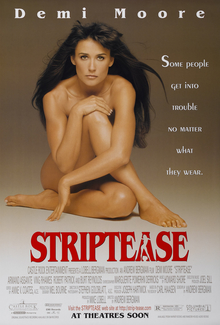
His reflection continues to twist inward, spiraling around the paradox of his own situation.
He is a small exclave, separated not by geography but by the architecture of his own mind — a man wrapped in layers of knowledge and experience, yet surrounded by the world’s hunger for more, for depth, for meaning.
He sees the hunger of others, the desire to be known, to be seen —but he cannot, for the life of him, find a way to satiate that same hunger in himself.
The woman is gone, but her presence, her brief existence beside him, has triggered something — an awareness of just how outside he has become, of how deeply he has submerged himself in observation rather than participation.
It is as if she had been a mirror, reflecting the distance between the life he had been trained to analyze and the life he had yet to learn to live.
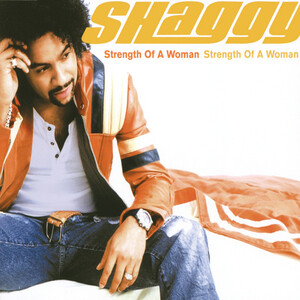
Uh, wow, uh, hm, ya, Shaggy!
Uh, yeah
This one goes out to all my women
My strong women
Uh…
So amazing how this world was made
I wonder if God is a woman
The gift of life astounds me to this day
Give it up for the woman
She’s the constant wind that fills my sails
Oh, that woman
With a smile and a style
She’ll protect you like a child
That’s a woman
Uh, uh… She’ll put a smile upon your face
And take you to that higher place
So don’t you underestimate
Strength of a woman
Strength of a woman
Woke up this morning
Got up with the scent of a woman
So picture if you would what life would be
Ain’t much good without a woman
She can nag and be a constant pain oh…
That woman
But those hips
She’s got me whipped
And it’s just too hard to resist
What a woman.
Uh, hey, she’ll put a smile upon your face
And take you to a higher place
So don’t you underestimate
Strength of a woman
Strength of a woman
Tender lips that’s so so sweet
Gentle words she softly speaks
Such an angel when we meet
God bless the ground beneath her feet
She can take you on a high
Be your comfort when you cry
But if you look into her eyes you’ll see
The strength of a woman
Strength of a woman
Uh, uh, she’ll put a smile upon your face
And take you to a higher place
So don’t you underestimate
Strength of a woman
He knows the theories.
Knows them well.
Knows them too well.
He uses analysis as a shield, as a pre-emptive strike against pain.
Perhaps if he could understand everything, he would never have to feel anything.
Perhaps that is the lie he tells himself.
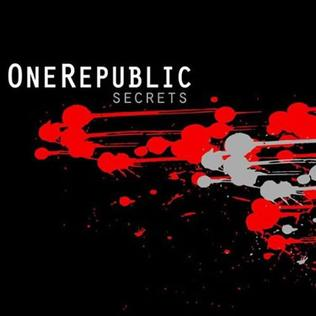
I need another story
Something to get off my chest
My life gets kinda boring
Need something that I can confess
‘Til all my sleeves are stained red
From all the truth that I’ve said
Come by it honestly I swear
Thought you saw me wink, no
I’ve been on the brink, so
Tell me what you want to hear
Something that will light those ears
I’m sick of all the insincere
So I’m gonna give all my secrets away
This time
Don’t need another perfect lie
Don’t care if critics ever jump in line
I’m gonna give all my secrets away
My God, amazing how we got this far
It’s like we’re chasing all those stars
Who’s driving shiny big black cars
And every day I see the news
All the problems that we could solve
And when a situation rises
Just write it into an album
Send it straight to gold
But I don’t really like my flow, no
So tell me what you want to hear
Something that will light those ears
I’m sick of all the insincere
So I’m gonna give all my secrets away
This time
Don’t need another perfect lie
Don’t care if critics ever jump in line
I’m gonna give all my secrets away
Ooh
Got no reason, got no shame
Got no family I can blame
Just don’t let me disappear
I’ma tell you everything
So tell me what you want to hear
Something that’ll light those ears
I’m sick of all the insincere
So I’m gonna give all my secrets away
This time
Don’t need another perfect lie
Don’t care if critics ever jump in line
I’m gonna give all my secrets away
So tell me what you want to hear
Something that’ll light those ears
I’m sick of all the insincere
So I’m gonna give all my secrets away
This time
Don’t need another perfect lie
Don’t care if critics ever jump in line
I’m gonna give all my secrets away
All my secrets away
All my secrets away
The train moves on, and Lukas, a mere exclave among the crowded landscape of humanity, can only wonder if he’d ever be able to cross that line — to reach beyond the safety of his theories and truly connect.
The train clatters on, but Lukas’ mind is still reeling from the brief encounter with the woman.
Her departure has triggered something deeper than mere regret, more profound than the passing ache of missed opportunity.
It is as though the briefest touch of something real had opened a door he hadn’t even known was there, a door into a room full of questions he had never dared to ask himself.
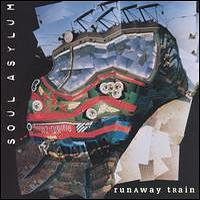
Call you up in the middle of the night
Like a firefly without a light
You were there like a blowtorch burning
I was a key that could use a little turning
So tired that I couldn’t even sleep
So many secrets I couldn’t keep
Promised myself I wouldn’t weep
One more promise I couldn’t keep
It seems no one can help me now
I’m in too deep
There’s no way out
This time I have really led myself astray
Runaway train never going back
Wrong way on a one-way track
Seems like I should be getting somewhere
Somehow I’m neither here nor there
Can you help me remember how to smile?
Make it somehow all seem worthwhile
How on Earth did I get so jaded?
Life’s mystery seems so faded
I can go where no one else can go
I know what no one else knows
Here I am, just drowning in the rain
With a ticket for a runaway train
And everything seems cut and dry
Day and night
Earth and sky
Somehow I just don’t believe it
Runaway train never going back
Wrong way on a one-way track
Seems like I should be getting somewhere
Somehow I’m neither here nor there
Bought a ticket for a runaway train
Like a madman laughing at the rain
A little out of touch, a little insane
It’s just easier than dealing with the pain
Runaway train never going back
Wrong way on a one-way track
Seems like I should be getting somewhere
Somehow I’m neither here nor there
Runaway train never coming back
Runaway train tearing up the track
Runaway train burning in my veins
Runaway but it always seems the same
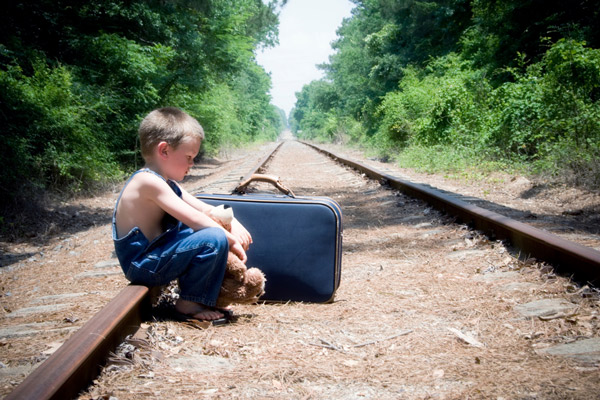
“Is my value inherent?“, Lukas asks himself.
“Or is it determined by others, by how they see me, how they interact with me?”
His mind wanders to the binary of the soldier-student hybrid he has been constructing for himself.
“Am I defined by what I do, or by how others see what I do?”
The weight of that realization presses on him — the idea that a man can only be truly worthy if others recognize that worth.
It is the paradox of human existence:
We are told we must seek validation, yet we are never quite sure if that validation is real or just a construct — something born from the minds of others, not our own.

His thoughts shift to something more personal, more primal.
The moment of silence, the space between him and the woman, has stirred something else, something larger than his own intellectual anxieties.
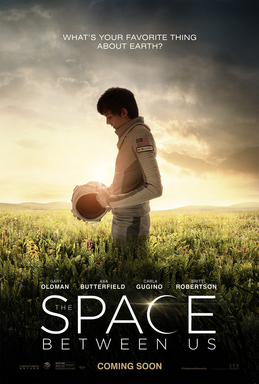
I am a dog chasing cars.
The thought comes unbidden, but it feels a gut-deep certainty.
The dog chases the car, but what happens when it catches one?
“What do I do with this hunger, this desire to connect, to prove myself, if I have nothing to pursue except an unexamined instinct?“
Lukas realizes he doesn’t want to chase cars.
Not anymore.
Not without purpose.
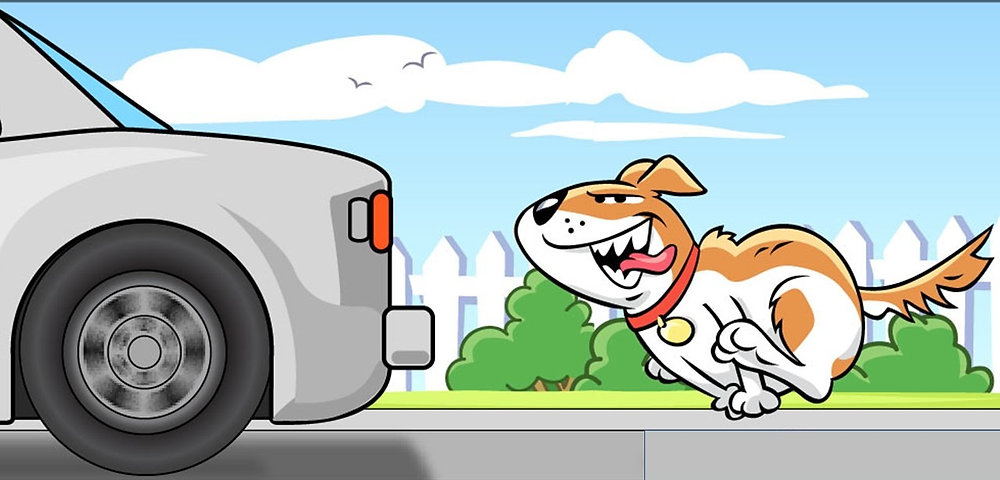
He wants to become worthy.
Not just of a woman, not merely of love, but worthy of life itself.
Worthy of the life he has the privilege to live.
The life he has the ability to shape.
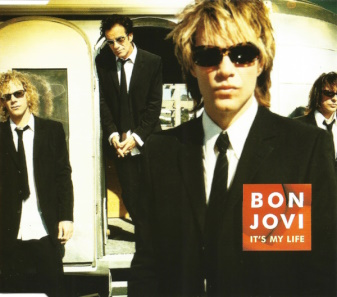
This ain’t a song for the broken-hearted
No silent prayer for the faith-departed
I ain’t gonna be just a face in the crowd
You’re gonna hear my voice
When I shout it out loud
It’s my life
It’s now or never
I ain’t gonna live forever
I just want to live while I’m alive
It’s my life
My heart is like the open highway
Like Frankie said, “I did it my way“
I just want to live while I’m alive
It’s my life
This is for the ones who stood their ground
It’s for Tommy and Gina who never backed down
Tomorrow’s getting harder, make no mistake
Luck ain’t enough, you’ve got to make your own breaks
It’s my life
It’s now or never
I ain’t gonna live forever
I just want to live while I’m alive
It’s my life
My heart is like the open highway
Like Frankie said, “I did it my way“
I just want to live while I’m alive
It’s my life
You better stand tall when they’re calling you out
Don’t bend, don’t break, baby, don’t back down
It’s my life
It’s now or never
I ain’t gonna live forever
I just want to live while I’m alive
It’s my life
My heart is like the open highway
Like Frankie said, “I did it my way“
I just want to live while I’m alive
It’s my life
He thinks of his uniform, how it confines him in a space of rules, protocols, rigid definitions, and yet, it is he who choose the man he is becoming within those confines.
That is where the power lies — in choosing what he could become.
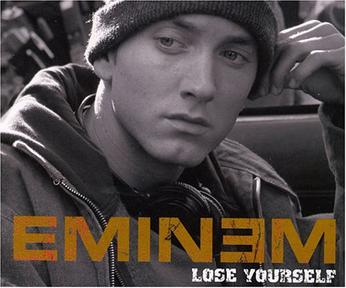
Look, if you had one shot or one opportunity
To seize everything you ever wanted in one moment
Would you capture it or just let it slip?
Yo
His palms are sweaty, knees weak, arms are heavy
There’s vomit on his sweater already, mom’s spaghetti
He’s nervous, but on the surface, he looks calm and ready
To drop bombs, but he keeps on forgetting
What he wrote down, the whole crowd goes so loud
He opens his mouth, but the words won’t come out
He’s chokin’, how? Everybody’s jokin’ now
The clock’s run out, time’s up, over, blaow
Snap back to reality, ope, there goes gravity
Ope, there goes Rabbit, he choked, he’s so mad
But he won’t give up that easy, no, he won’t have it
He knows his whole back’s to these ropes, it don’t matter
He’s dope, he knows that, but he’s broke, he’s so stagnant
He knows when he goes back to this mobile home, that’s when it’s
Back to the lab again, yo, this old rhapsody
Better go capture this moment and hope it don’t pass him
You better lose yourself in the music
The moment, you own it, you better never let it go (Go)
You only get one shot, do not miss your chance to blow
This opportunity comes once in a lifetime, yo
You better lose yourself in the music
The moment, you own it, you better never let it go (Go)
You only get one shot, do not miss your chance to blow
This opportunity comes once in a lifetime, yo
You better
His soul’s escaping through this hole that is gaping
This world is mine for the taking, make me king
As we move toward a new world order
A normal life is boring, but superstardom’s
Close to post-mortem, it only grows harder
Homie grows hotter, he blows, it’s all over
These hoes is all on him, coast-to-coast shows
He’s known as the Globetrotter, lonely roads
God only knows he’s grown farther from home, he’s no father
He goes home and barely knows his own daughter
But hold your nose ’cause here goes the cold water
These hoes don’t want him no mo’, he’s cold product
They moved on to the next schmoe who flows
He nose-dove and sold nada, and so the soap opera
Is told, it unfolds, I suppose it’s old, partner
But the beat goes on, da-da-dom, da-dom, dah-dah-dah-dah
You better lose yourself in the music
The moment, you own it, you better never let it go (Go)
You only get one shot, do not miss your chance to blow
This opportunity comes once in a lifetime, yo
You better lose yourself in the music
The moment, you own it, you better never let it go (Go)
You only get one shot, do not miss your chance to blow
This opportunity comes once in a lifetime, yo
You better
No more games, I’ma change what you call rage
Tear this motherfuckin’ roof off like two dogs caged
I was playin’ in the beginning, the mood all changed
I’ve been chewed up and spit out and booed off stage
But I kept rhymin’ and stepped right in the next cypher
Best believe somebody’s payin’ the Pied Piper
All the pain inside amplified by the
Fact that I can’t get by with my nine-to-
Five and I can’t provide the right type of life for my family
‘Cause, man, these goddamn food stamps don’t buy diapers
And there’s no movie, there’s no Mekhi Phifer, this is my life
And these times are so hard, and it’s gettin’ even harder
Tryna feed and water my seed,plus teeter-totter
Caught up between bein’ a father and a prima donna
Baby-mama drama, screamin’ on her, too much for me to wanna
Stay in one spot, another day of monotony’s gotten me
To the point I’m like a snail, I’ve got
To formulate a plot or end up in jail or shot
Success is my only motherfuckin’ option, failure’s not
Mom, I love you, but this trailer’s got
To go, I cannot grow old in Salem’s Lot
So here I go, it’s my shot; feet, fail me not
This may be the only opportunity that I got
You better lose yourself in the music
The moment, you own it, you better never let it go (Go)
You only get one shot, do not miss your chance to blow
This opportunity comes once in a lifetime, yo
You better lose yourself in the music
The moment, you own it, you better never let it go (Go)
You only get one shot, do not miss your chance to blow
This opportunity comes once in a lifetime, yo
You better
You can do anything you set your mind to, man
His mind returns to his studies, to the psychological theories he has absorbed over the past year.
Is psychology truly his path?
Or is it just a mask?
He has learned so much about the mind, about how thoughts and behaviors intersect, how the brain creates stories, how emotions are both chemical and social in their origins.
But deep down, something else lingers — an awareness that psychology might not be his true calling.
Perhaps it was never meant to be.

There is something else in him.
Something poetic.
A longing for expression that stretches beyond the clinical, the rational, the measured.
He has grown up around facts, around data, but now he begins to wonder if his true nature isn’t better captured by something less definable, something more alive.
Perhaps that is the missing piece, the essence of what it means to live and love and experience.
Not to be a scholar of the human condition, but to be a creator of it.
He wonders if his longing for connection has always been wrapped up in the wrong things.
What if I don’t need to analyze love?
What if I simply need to experience it?
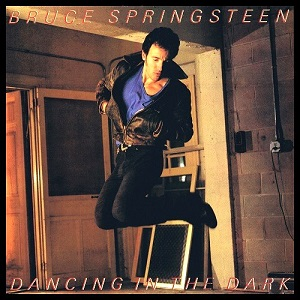
I get up in the evenin’
And I ain’t got nothin’ to say
I come home in the mornin’
I go to bed feelin’ the same way
I ain’t nothin’ but tired
Man, I’m just tired and bored with myself
Hey there, baby, I could use just a little help
You can’t start a fire
You can’t start a fire without a spark
This gun’s for hire
Even if we’re just dancin’ in the dark
Messages keeps gettin’ clearer
Radio’s on and I’m movin’ ’round my place
I check my look in the mirror
Wanna change my clothes, my hair, my face
Man, I ain’t gettin’ nowhere
I’m just livin’ in a dump like this
There’s somethin’ happenin’ somewhere
Baby, I just know that there is
You can’t start a fire
You can’t start a fire without a spark
This gun’s for hire
Even if we’re just dancin’ in the dark
You sit around gettin’ older
There’s a joke here somewhere and it’s on me
I’ll shake this world off my shoulders
Come on, baby, the laugh’s on me
Stay on the streets of this town
And they’ll be carvin’ you up alright
They say you gotta stay hungry
Hey baby, I’m just about starvin’ tonight
I’m dyin’ for some action
I’m sick of sittin’ ’round here tryin’ to write this book
I need a love reaction
Come on now, baby, gimme just one look
You can’t start a fire
Sittin’ ’round cryin’ over a broken heart
This gun’s for hire
Even if we’re just dancin’ in the dark
You can’t start a fire
Worryin’ about your little world fallin’ apart
This gun’s for hire
Even if we’re just dancin’ in the dark
Even if we’re just dancin’ in the dark
Even if we’re just dancin’ in the dark
Even if we’re just dancin’ in the dark
Hey baby
He thinks about his journals, the fragments of poetry, the snippets of narrative he has tucked away for years.
They never quite fit the psychology framework, but maybe that is because they weren’t meant to.
Maybe his life needs to be more than just the sum of its intellectual parts.
Lukas realizes that he is not just a product of his thoughts and observations.
He is something more:
A body, a mind, a soul, yearning for something that cannot be taught in a textbook or proven in a lab.
There is a space within him, a place untouched by data or statistics, a space where poetry lives.
It isn’t the uniform that defines him, nor the papers he writes.
It isn’t the studies he has immersed himself in.
It is the act of living itself — of embracing the uncertainty, the messiness, the beauty of life.

I know a spell
That would you make help
Write about love, it could be in any tense, but it must make sense
I know a trick
Forget that you are sick
Write about love, it could be in any form, hand it to me in the morning
I hate my job, I’m working way too much (every day I’m stuck in an office)
At one o’clock, I take my lunch up on the roof
The city’s spread below, I’ll write about a man
He’s intellectual and he’s hot, but he understands
The seconds move on (if you watch the clock)
And the sky grows dark (if you’re looking up)
But the girls move from thrill to thrill on the tightrope walk (on the tightrope walk)
I hate my job, I’m working way too much (every day I’m stuck in an office)
At one o’clock, I take my lunch up on the roof
The city’s spread below, I’ll write about a man
He’s intellectual and he’s hot, but he understands
I know a way (so you know the way)
Get on your skinny knees and pray (maybe not today)
You’ve got to see the dream through the windows and the trees of your living room (of your living room)
You’ve got to see the dream through the windows and the trees of your living room
Is he meant to be a psychologist?
Lukas considers the question.
Perhaps psychology is just a step, not the destination.
Maybe he is more than that.
Maybe there is poetry in his heart — a desire not just to understand people, but to be human with them, to share in their stories, their pain, their joy.
Lukas closes his eyes for a moment, feeling the pulse of life around him — the rhythm of the train, the hum of people, the whisper of the world as it passes him by.
And in that moment, he knows:
He is not yet the man he can be.
He still has work to do, not just on his intellect, but on his heart, his body, his spirit.
He needs to become worthy — not just of others’ approval, but of his own life.
This isn’t about chasing cars.
It is about finding a purpose worth chasing.

The train will arrive soon at Rorschach.
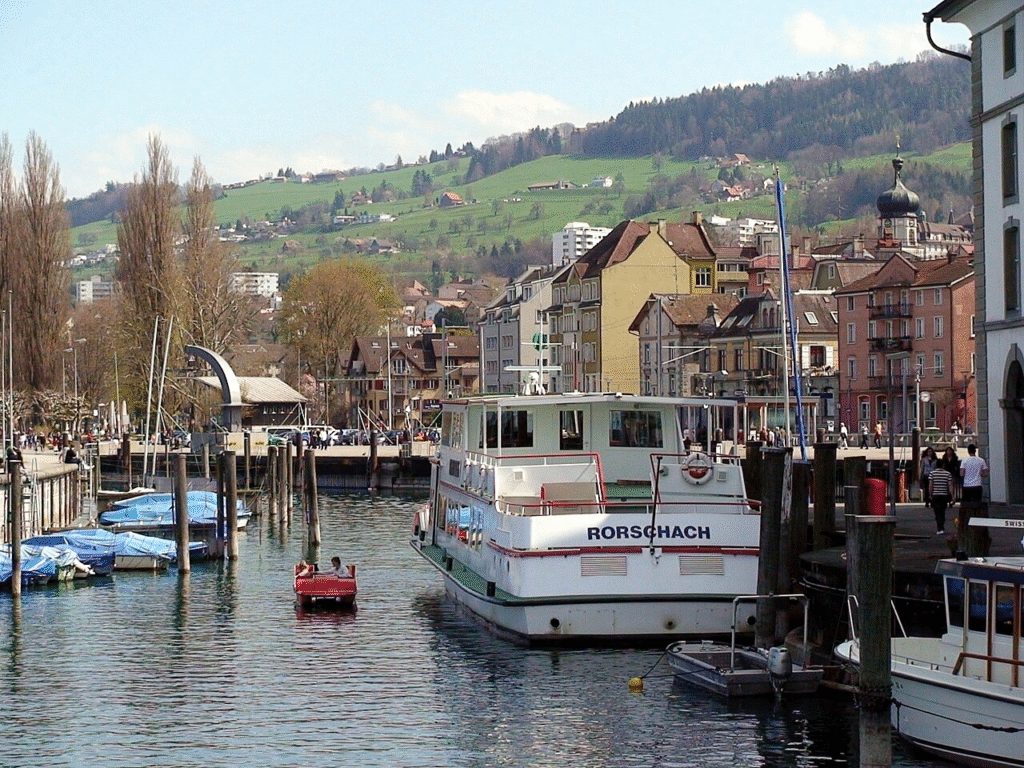
Above: Rorschach, Canton St. Gallen, Schweiz
He will change trains and carry on to St. Margrethen.
The base.
The uniform.
The role.
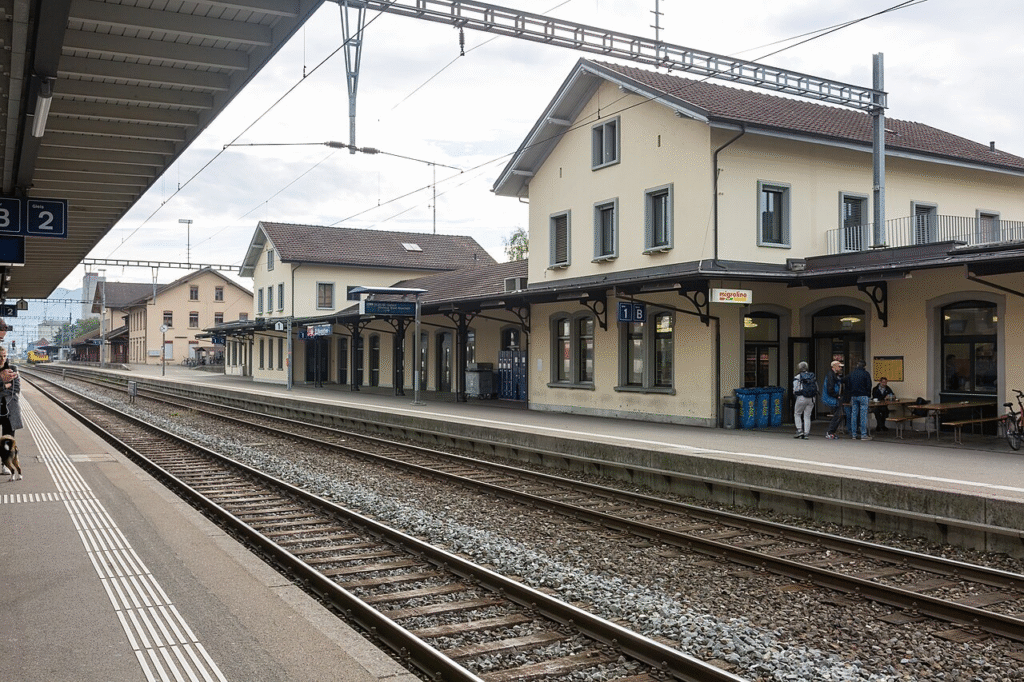
Above: St. Margrethen Bahnhof, Canton St. Gallen, Schweiz
But the real journey — the one with no timetable, no clear destination — has just begun.
He sits in an empty wagon, watching it everything rush past.
